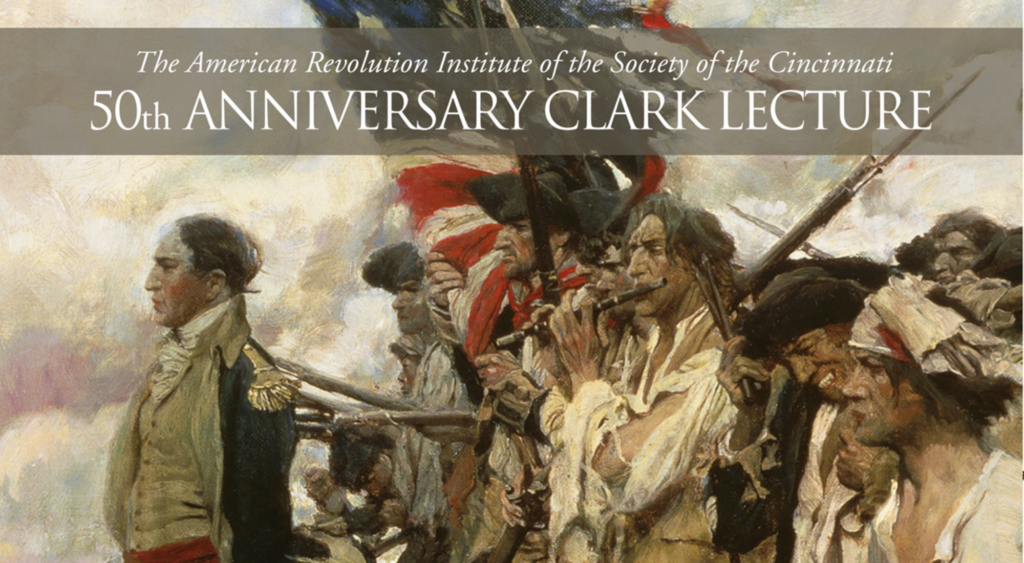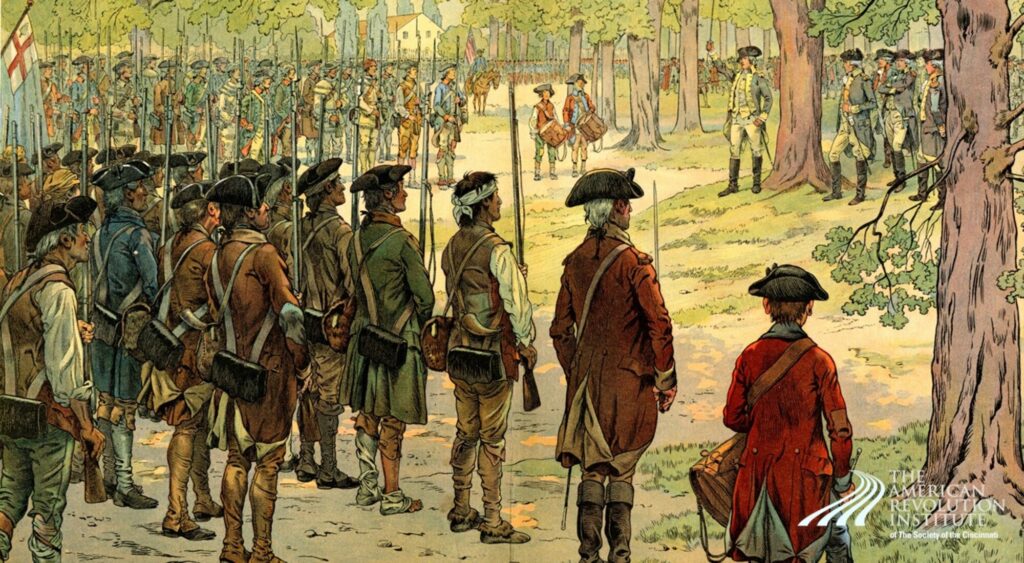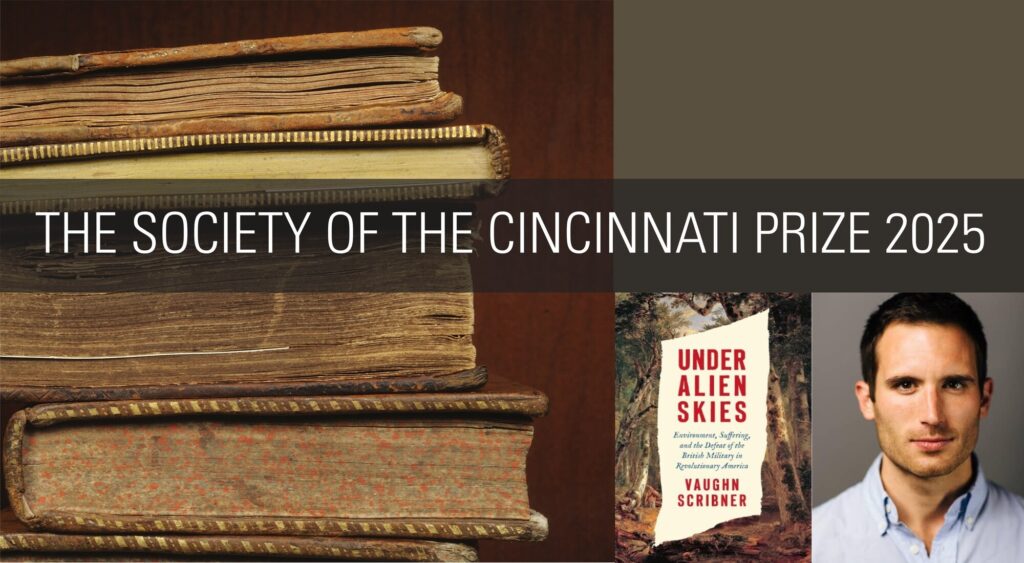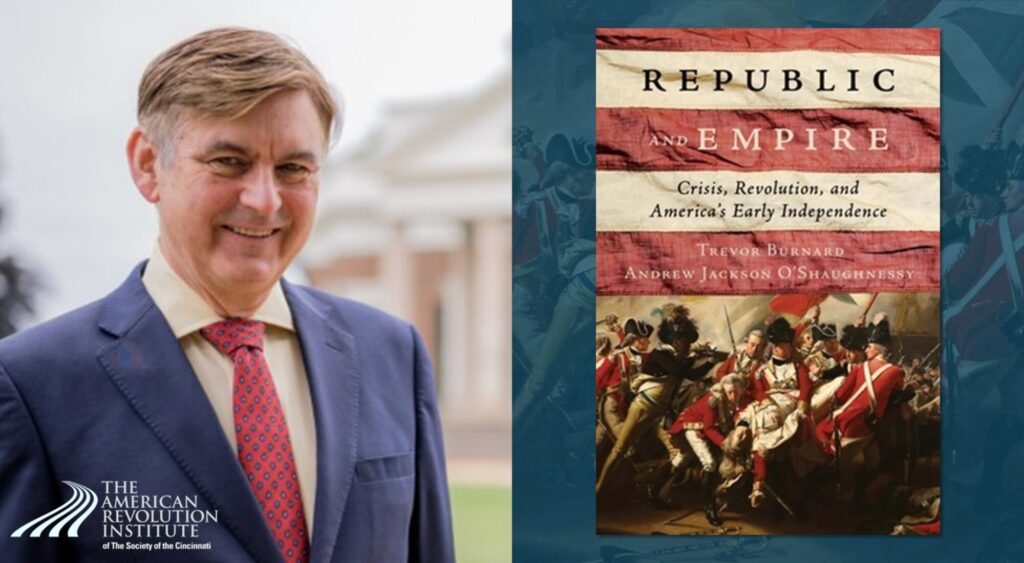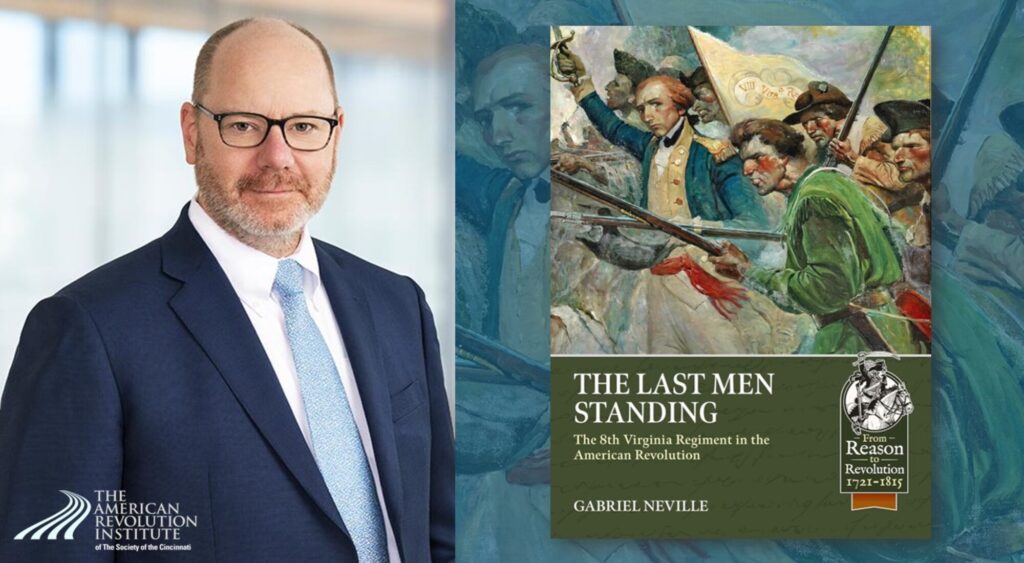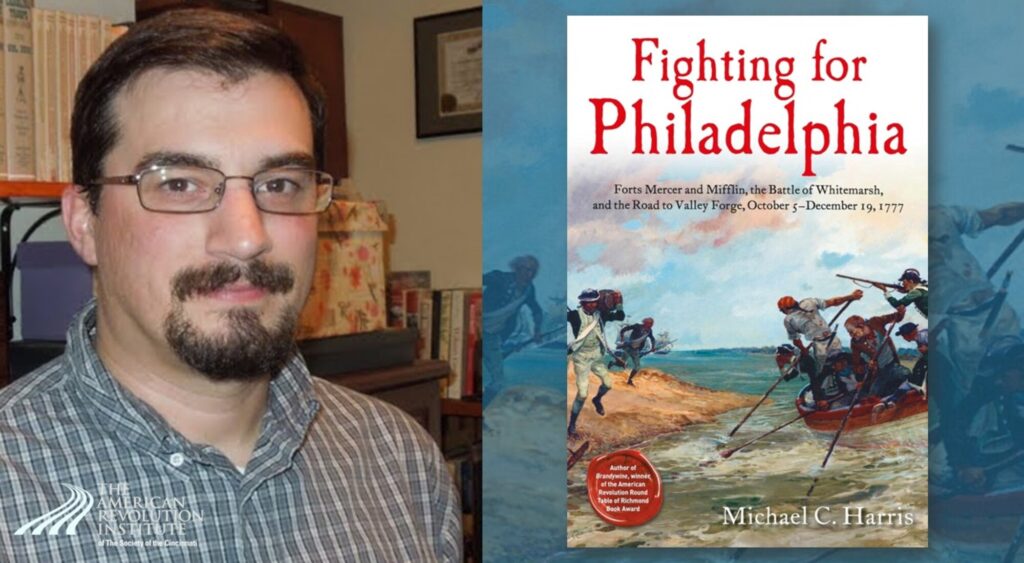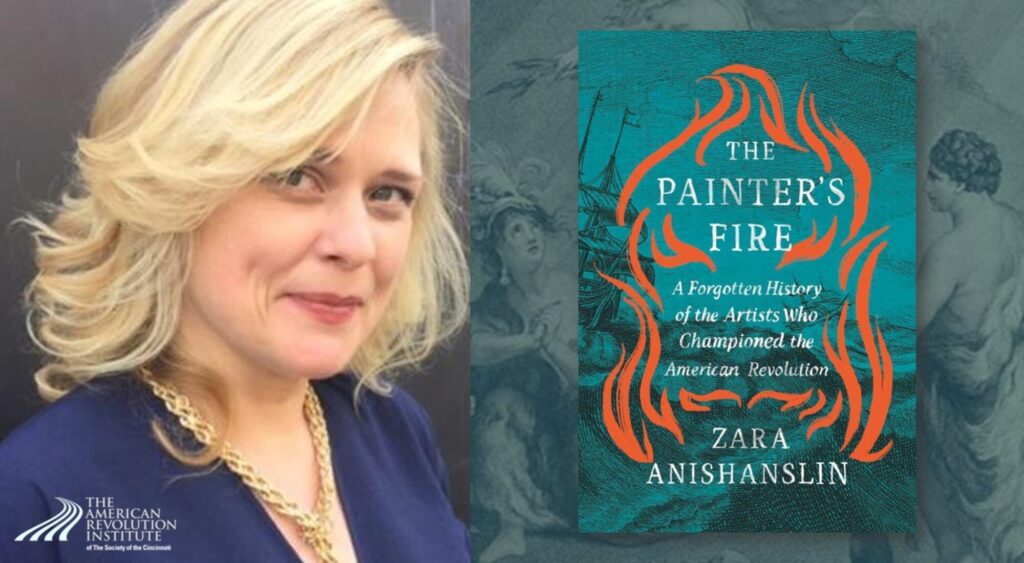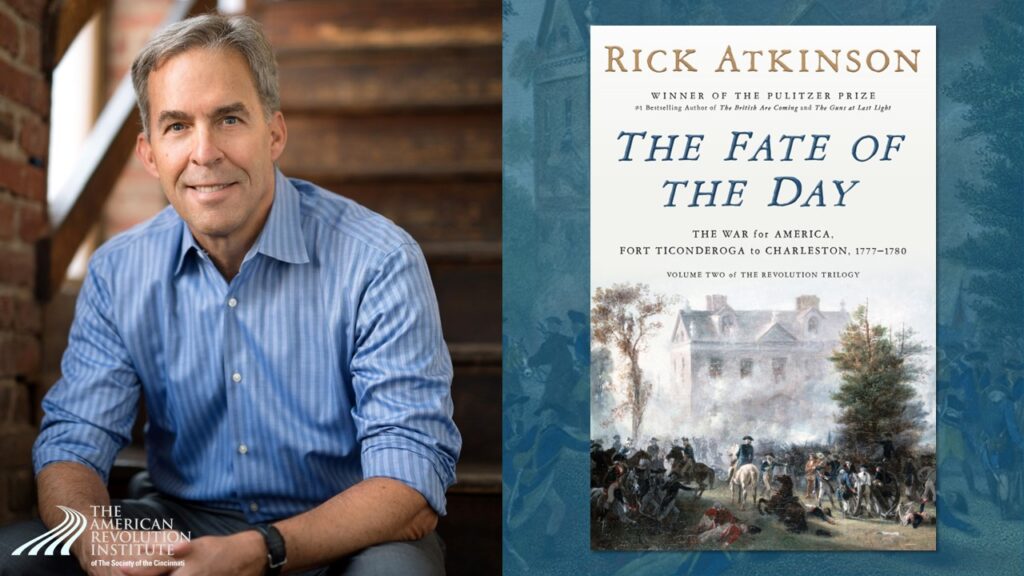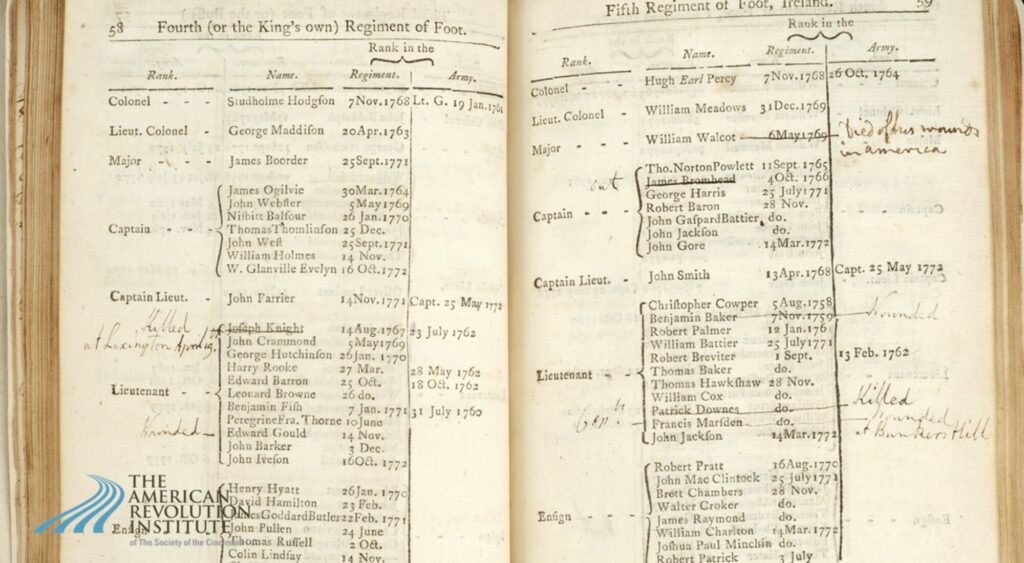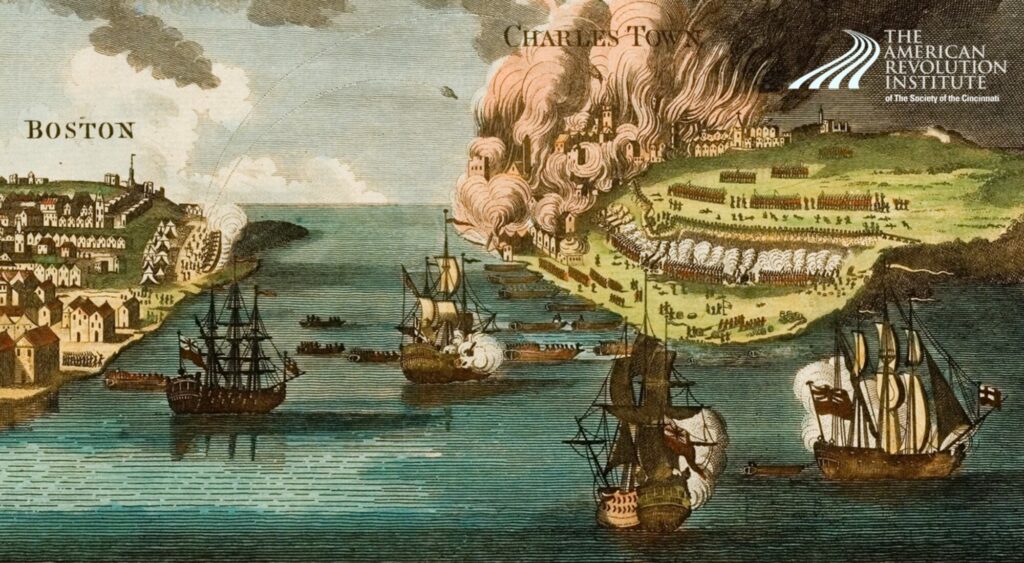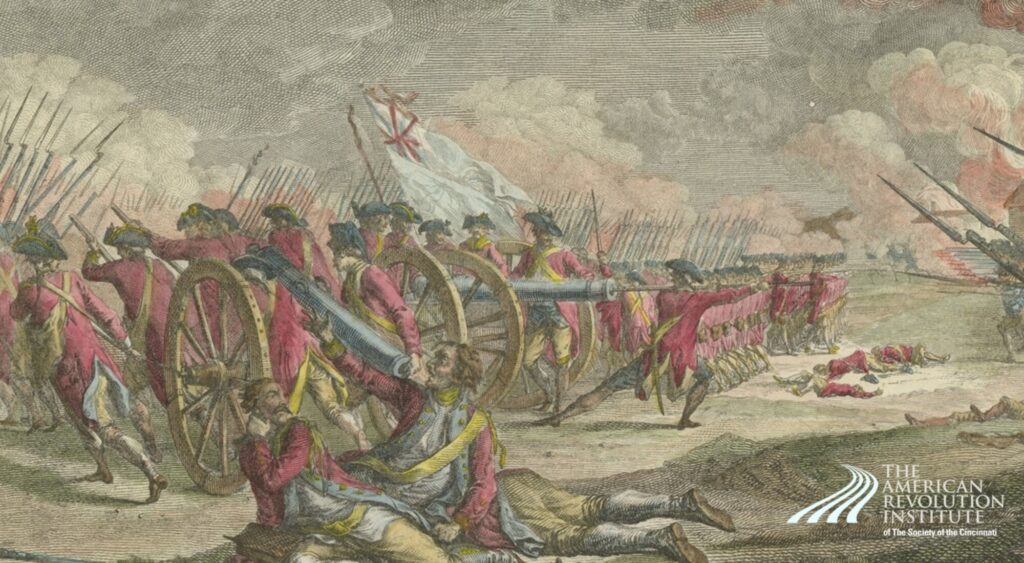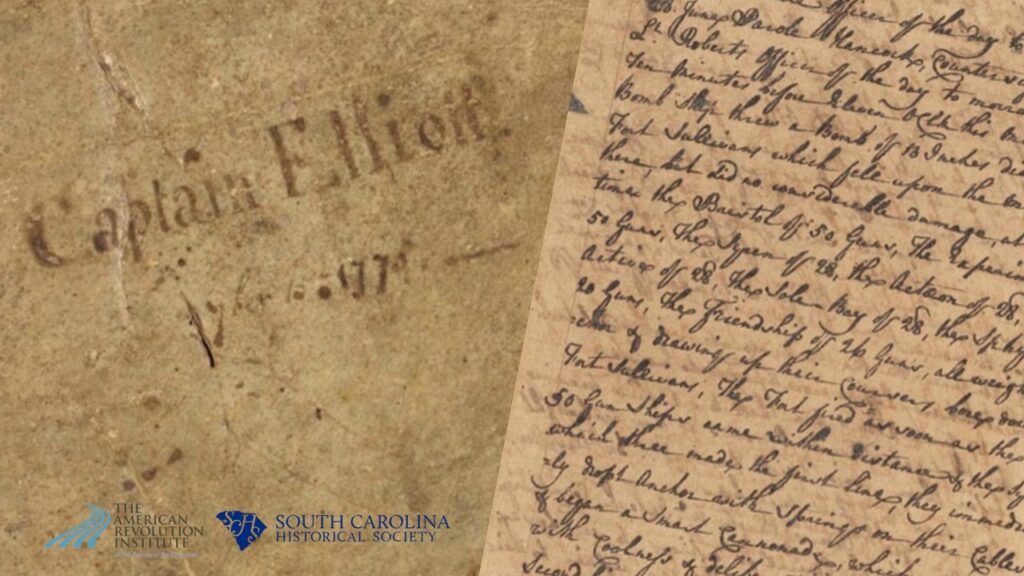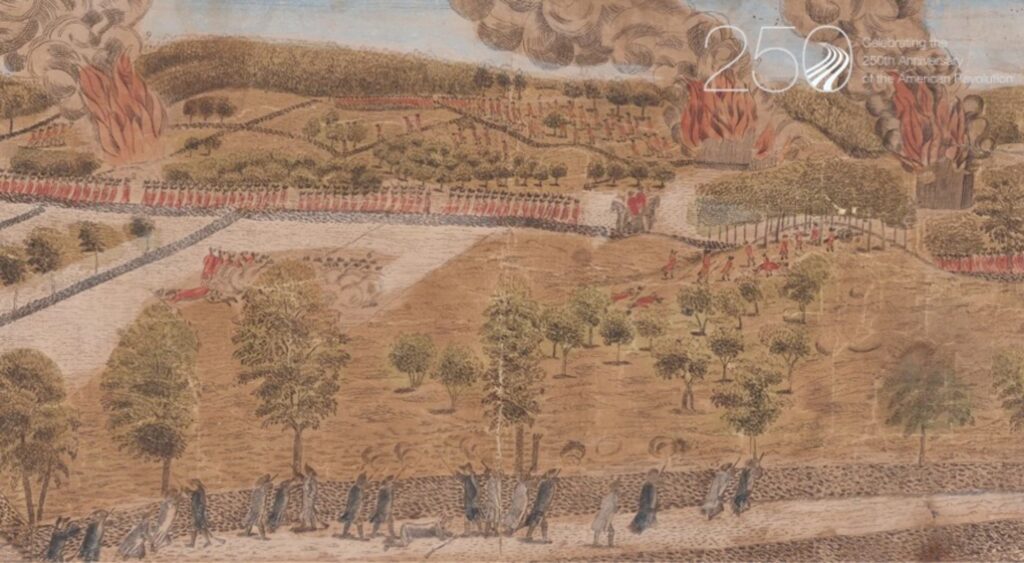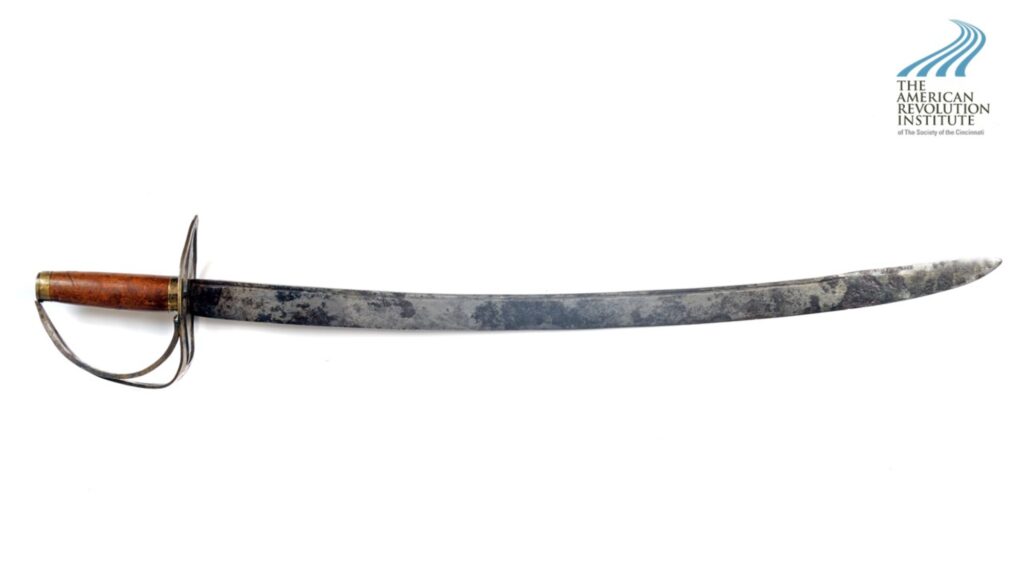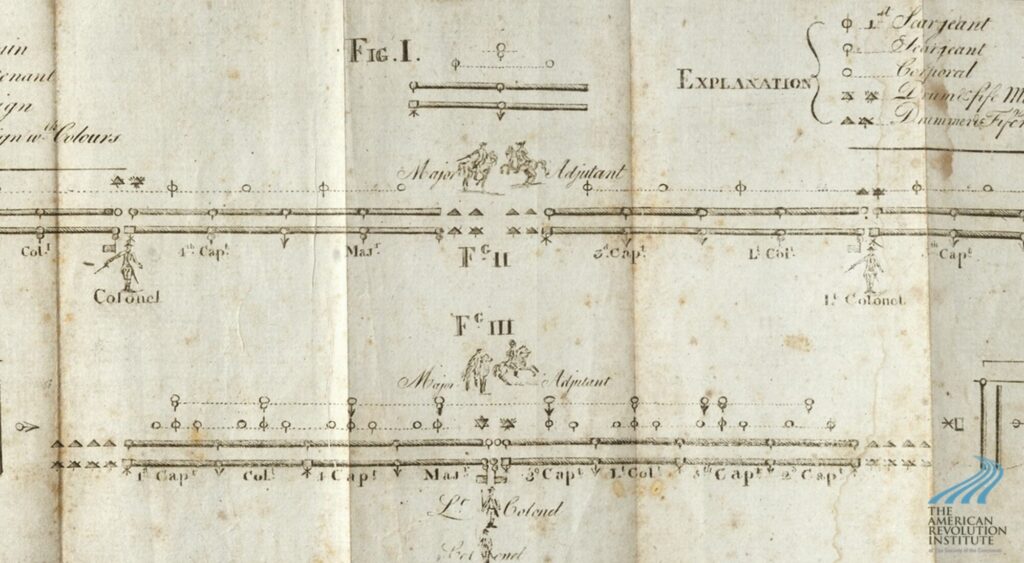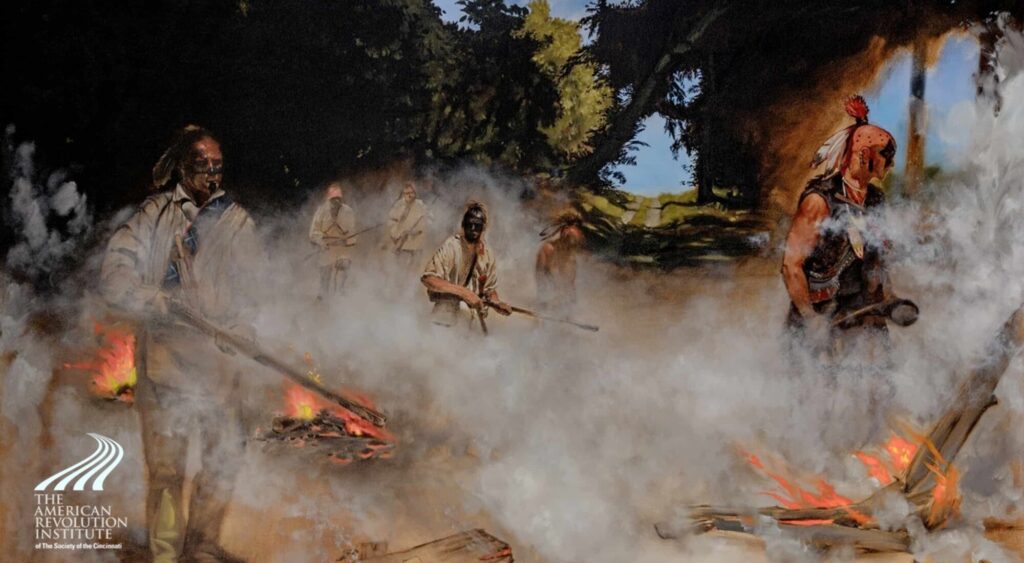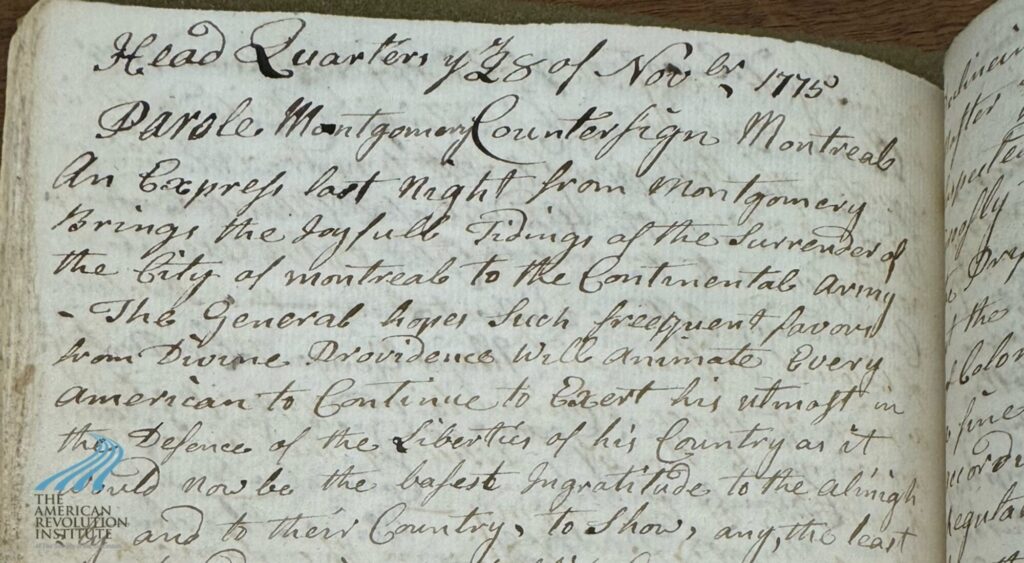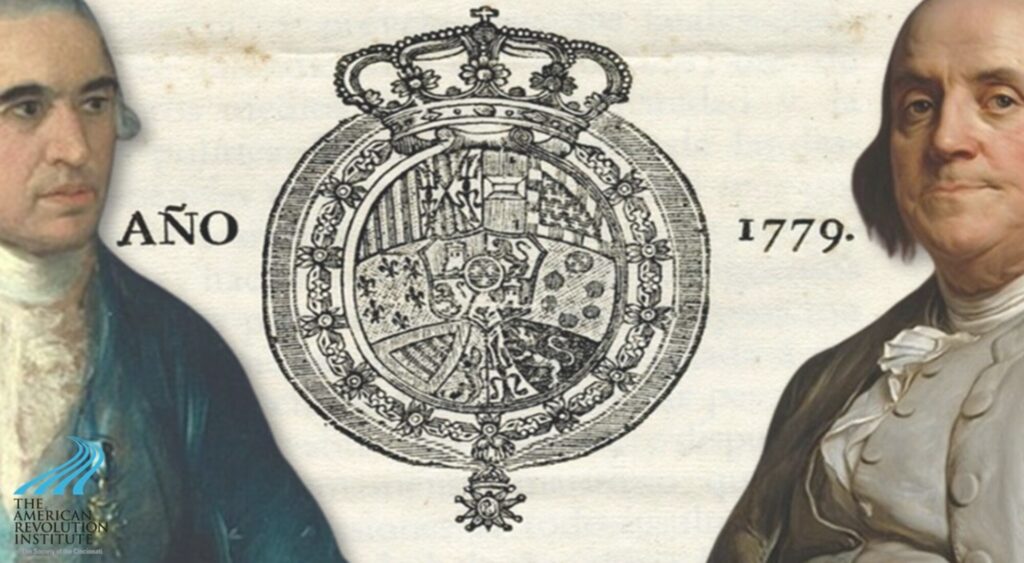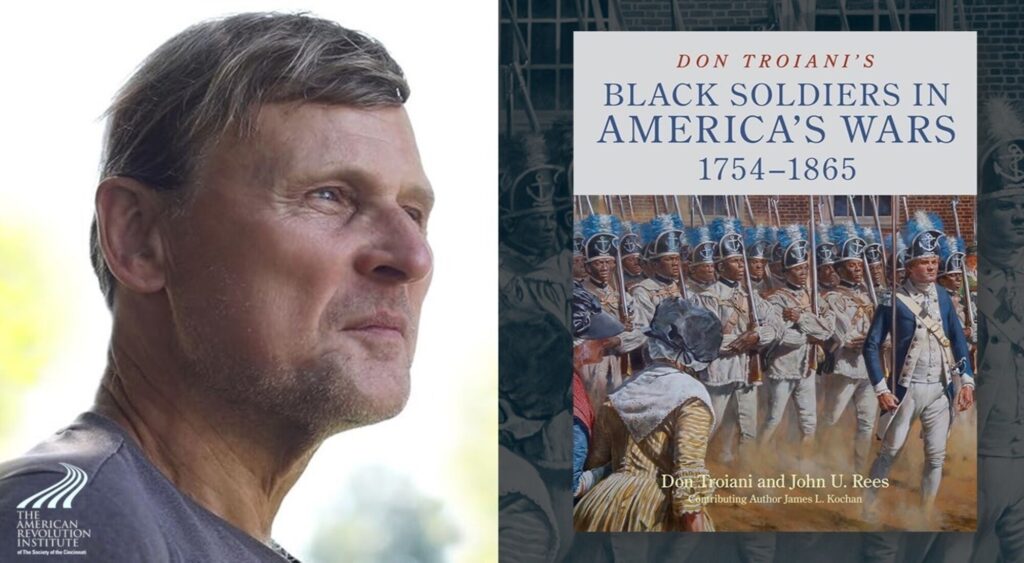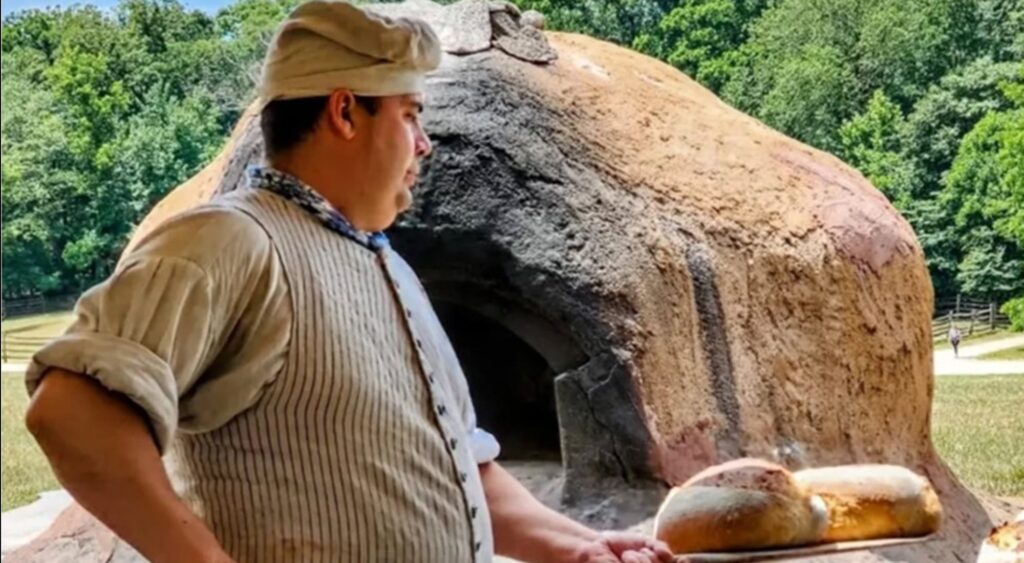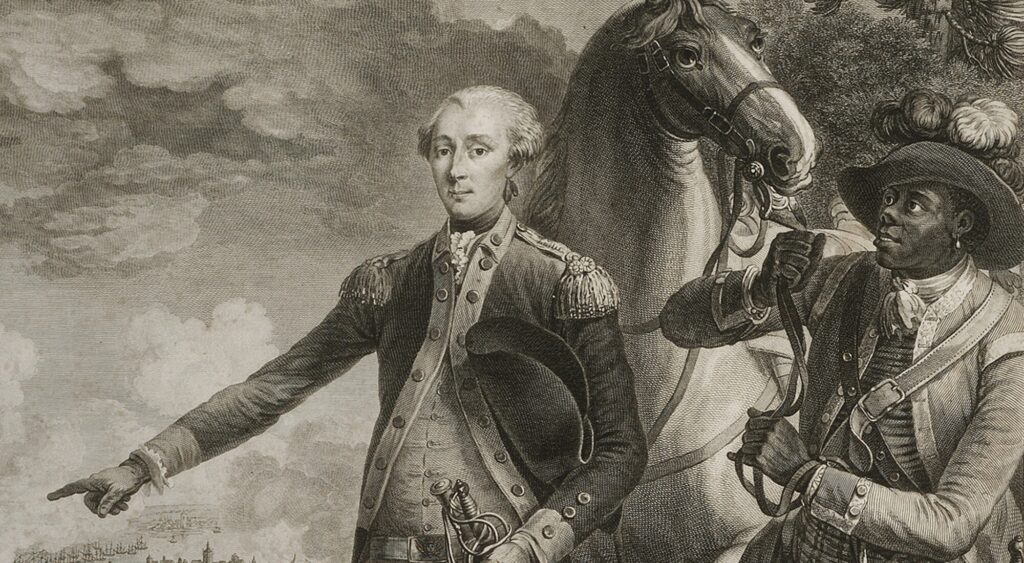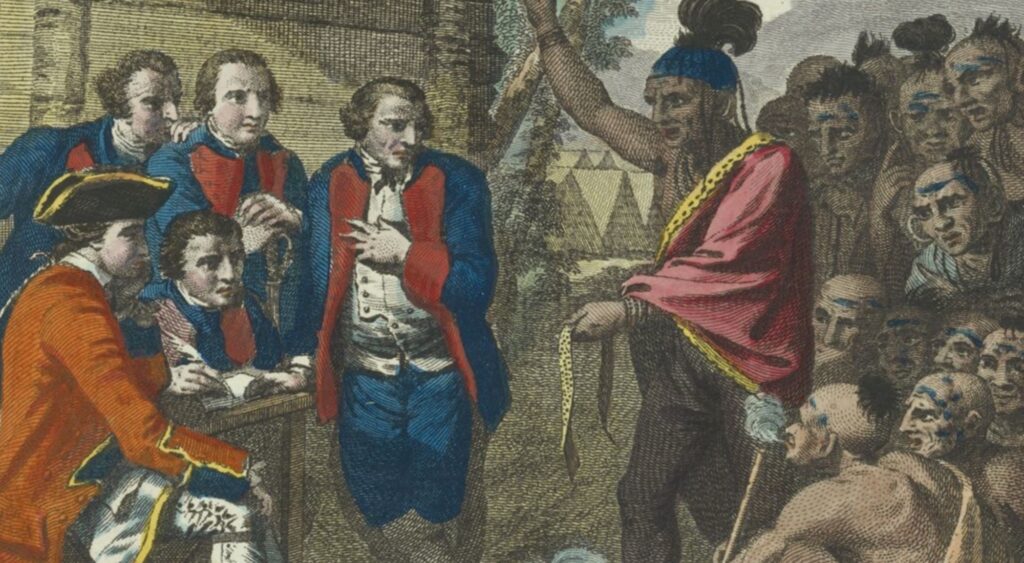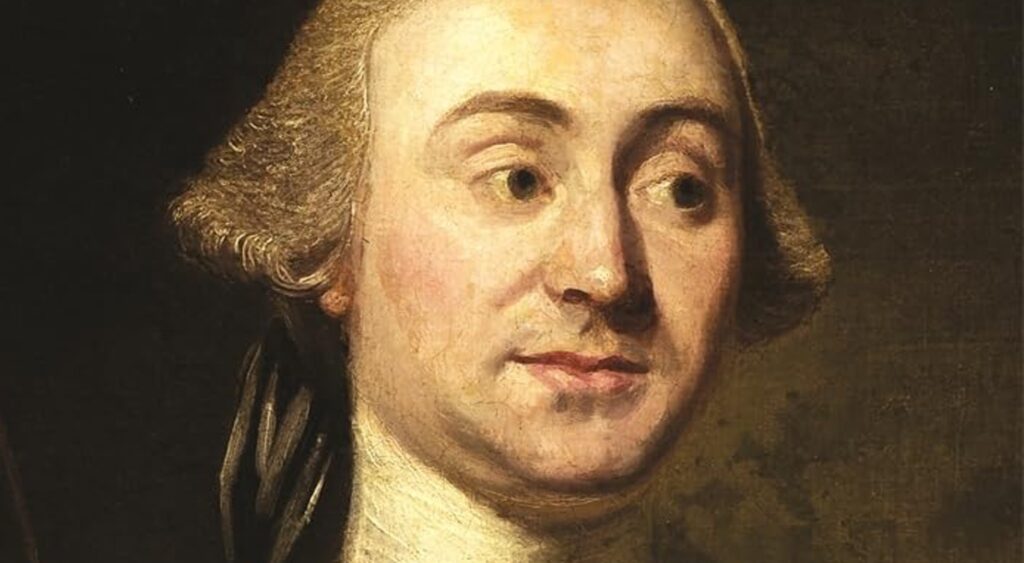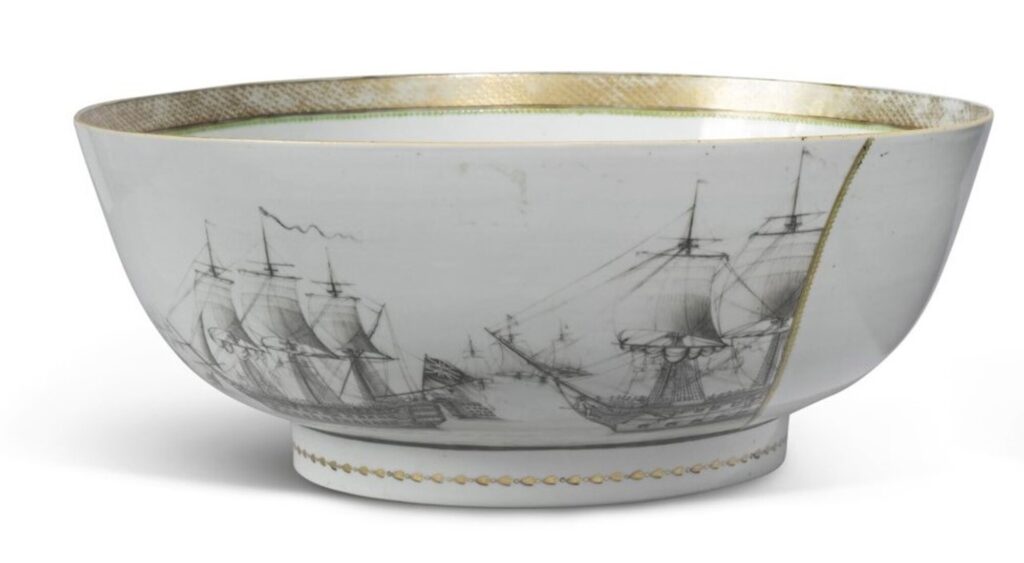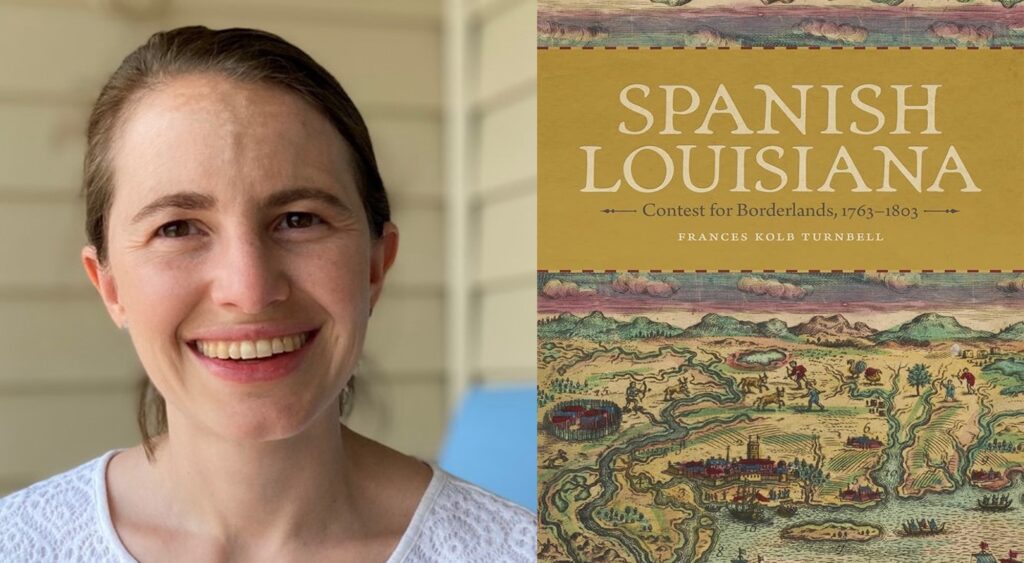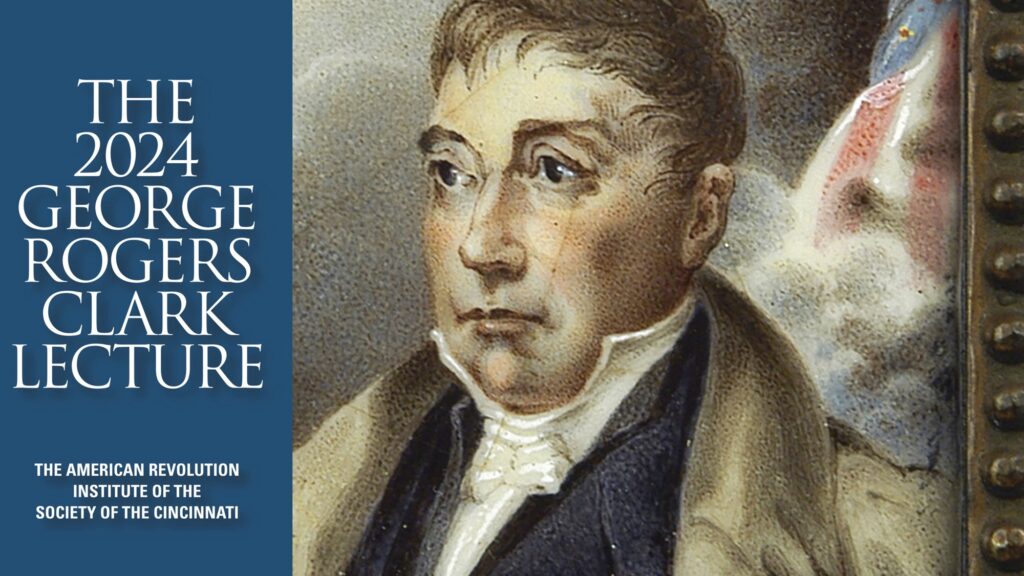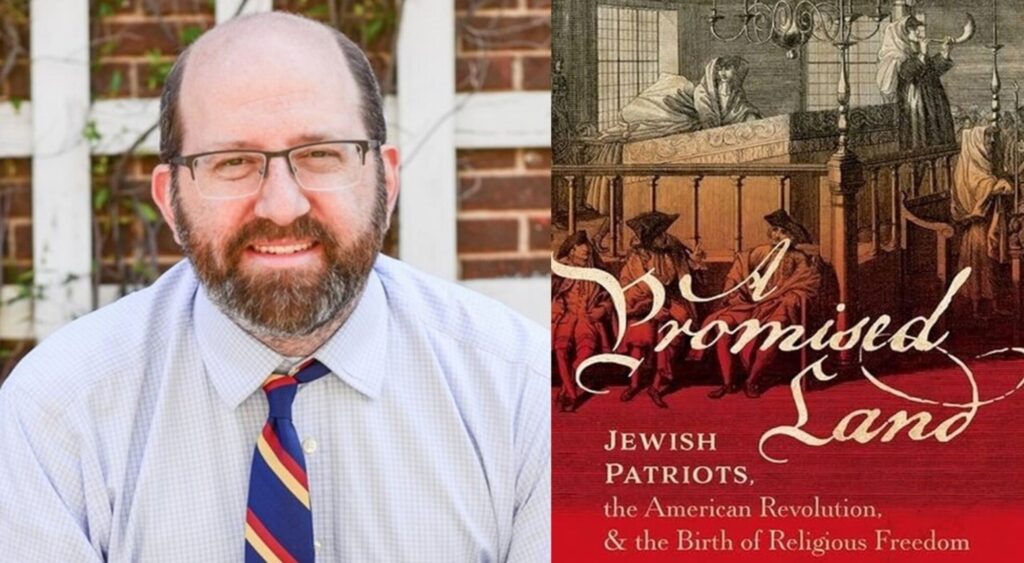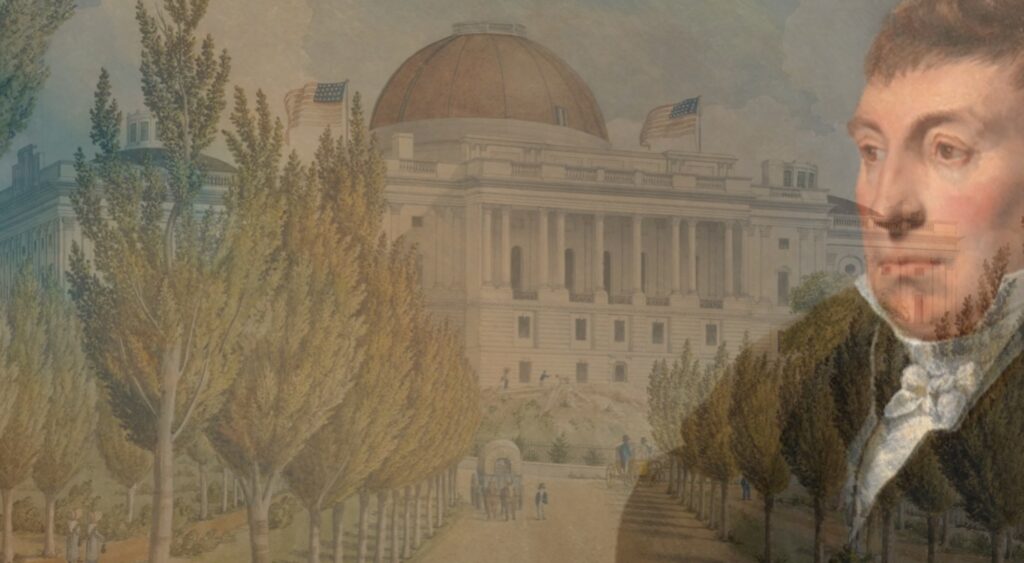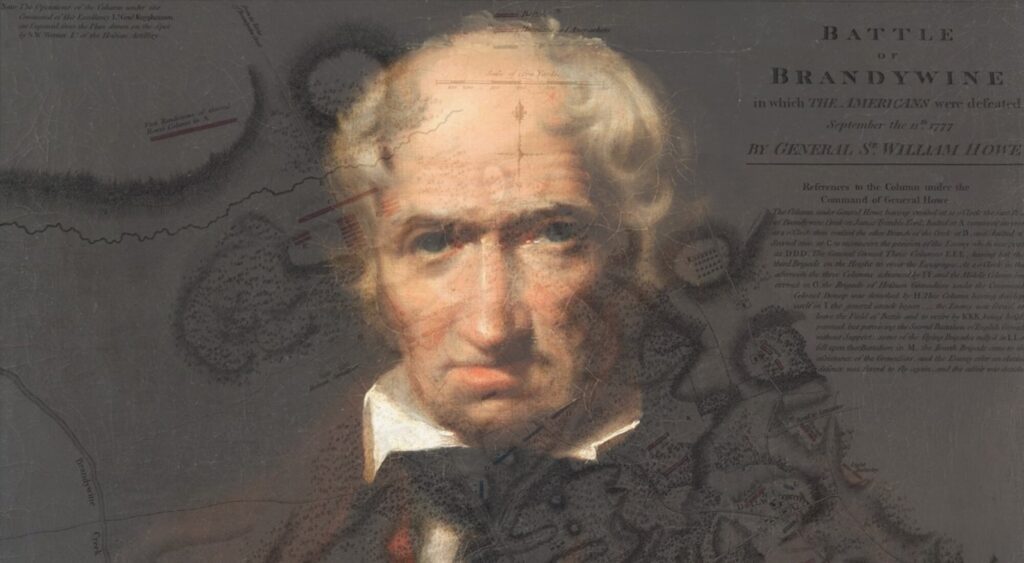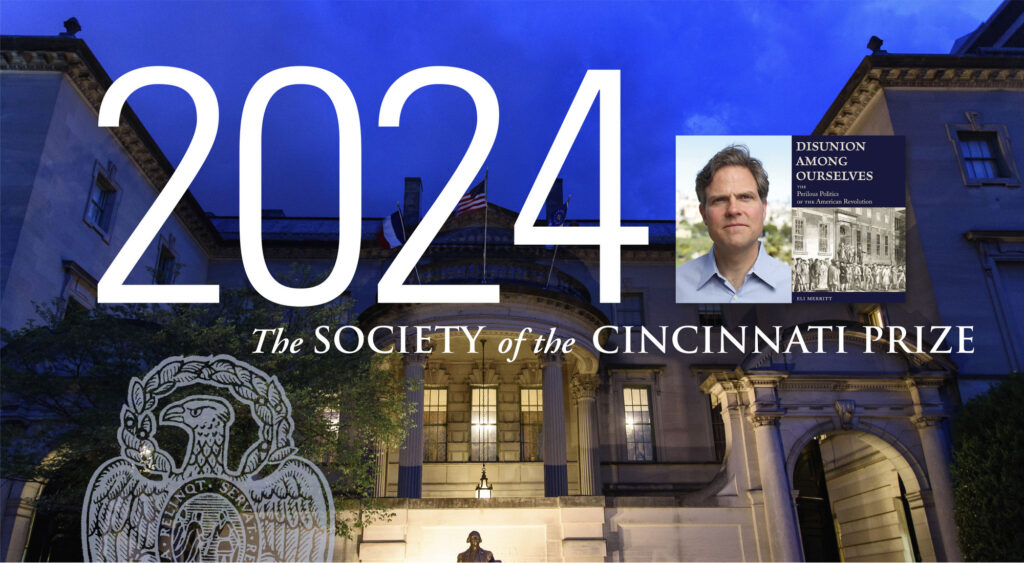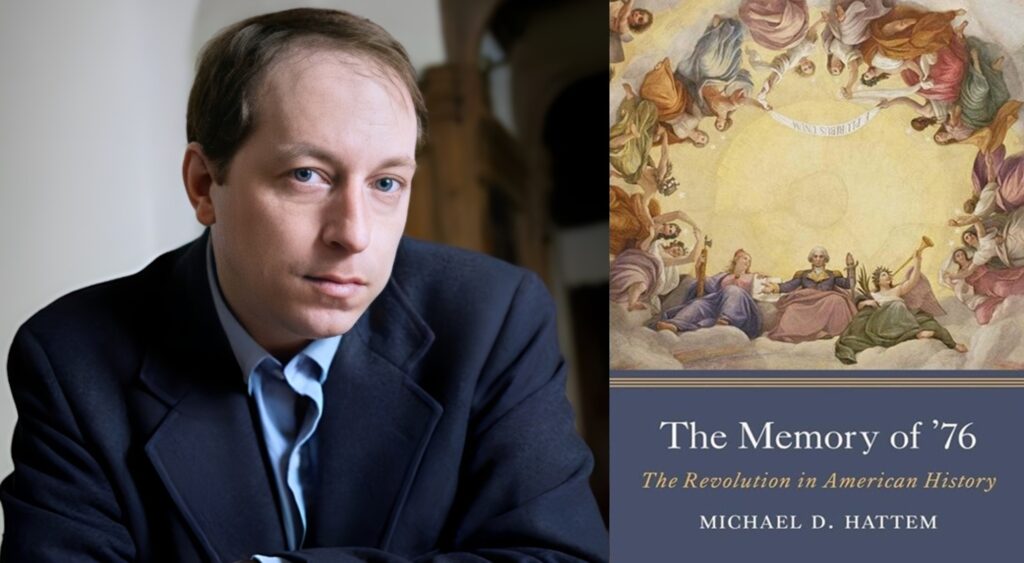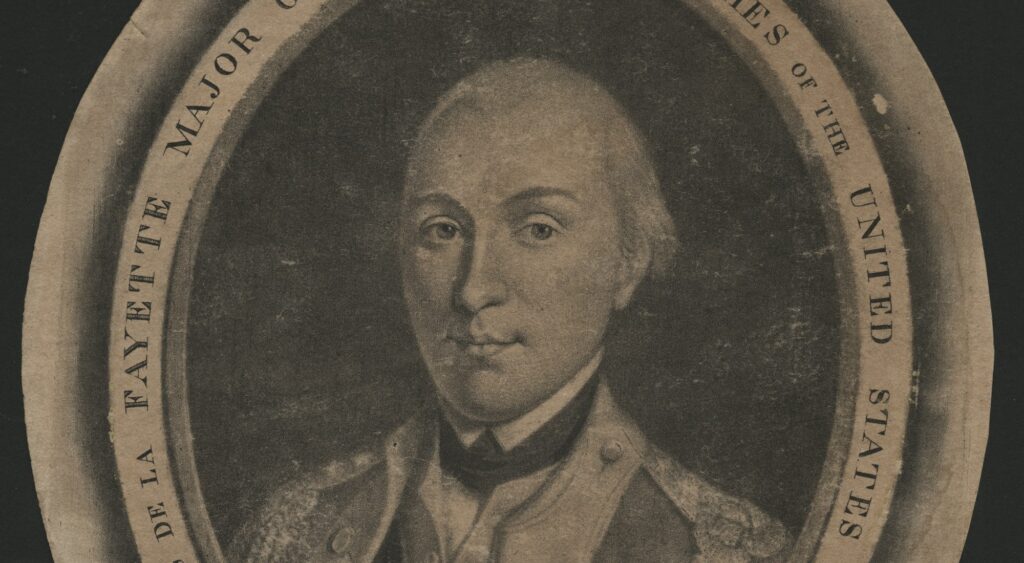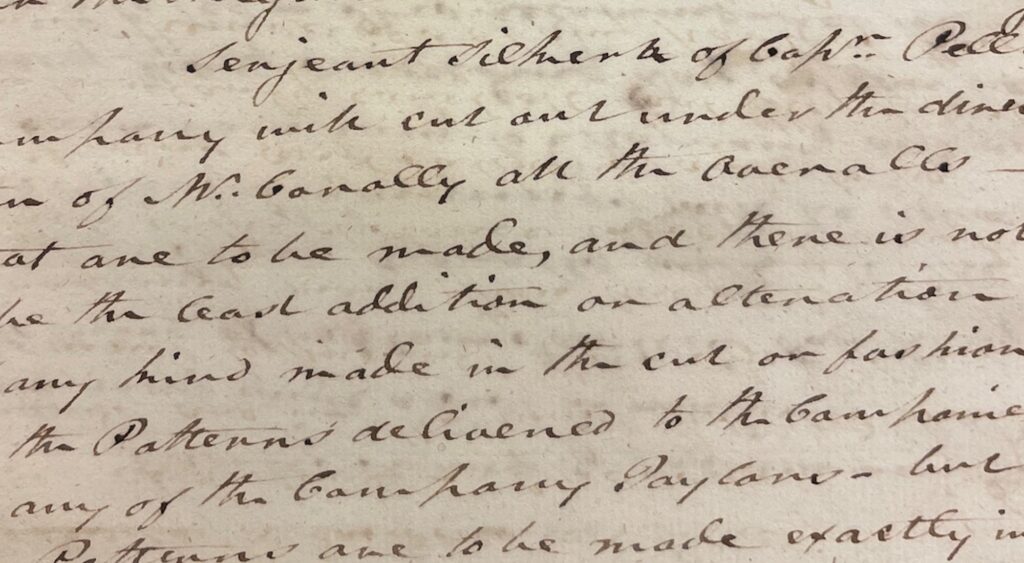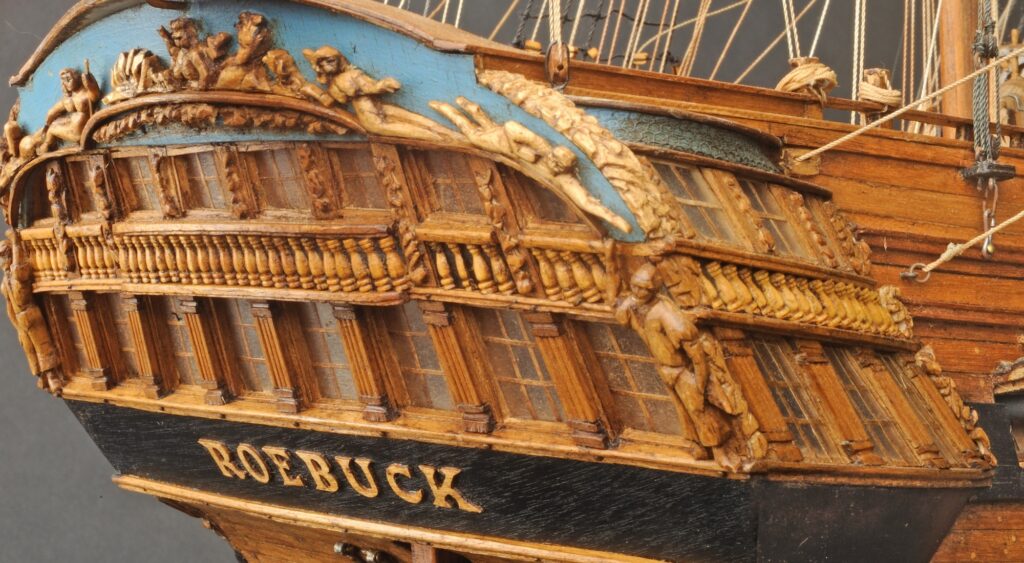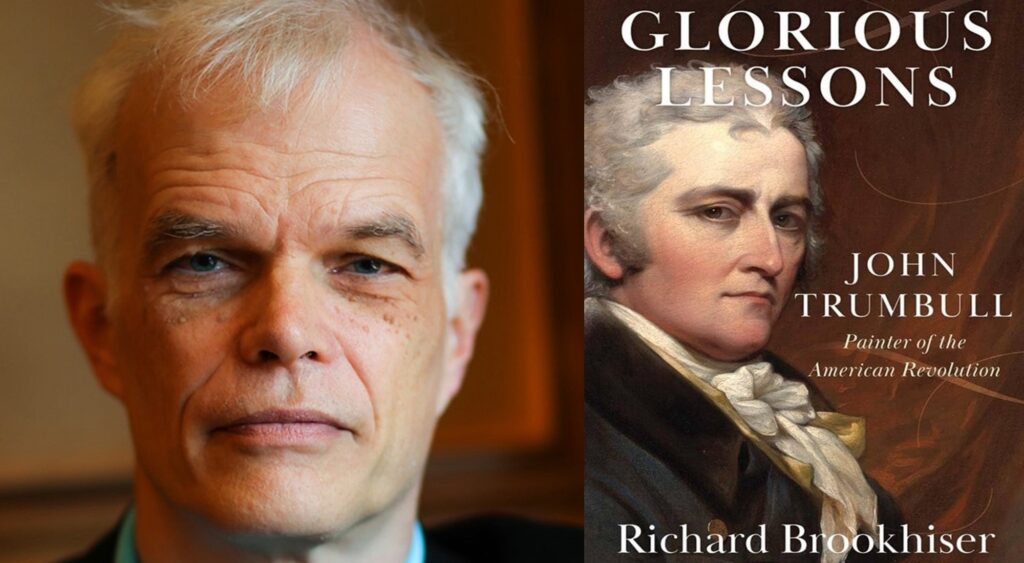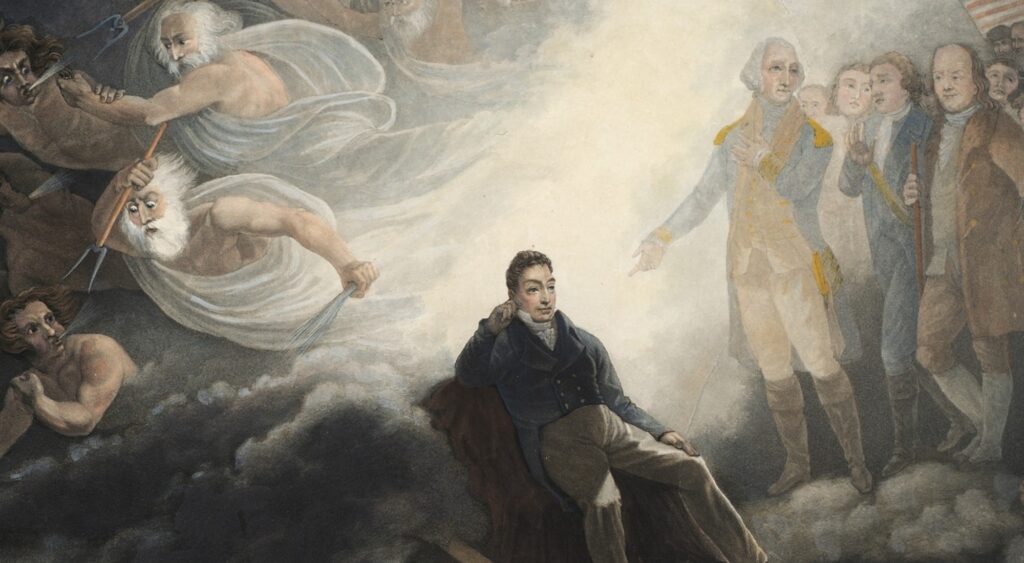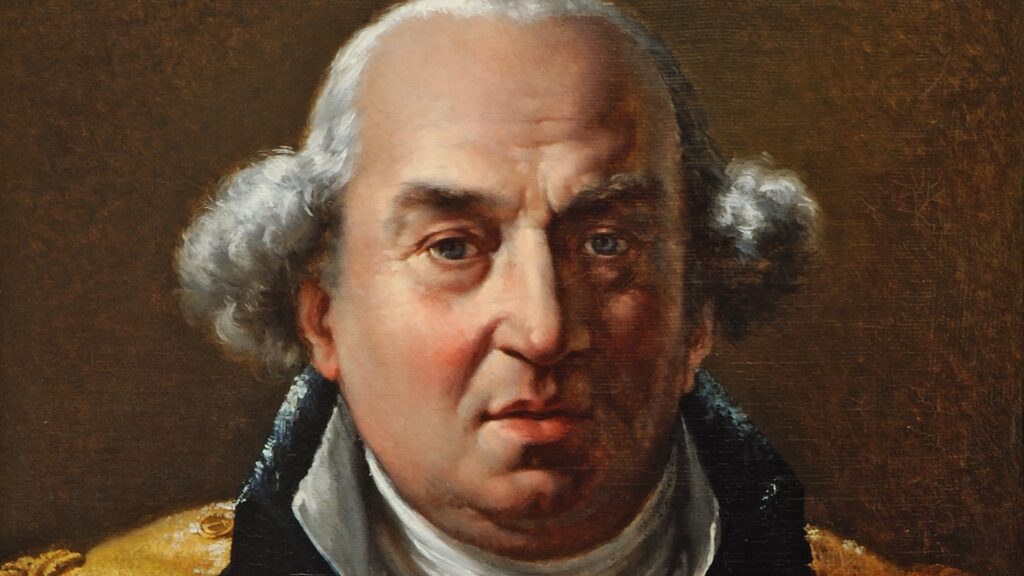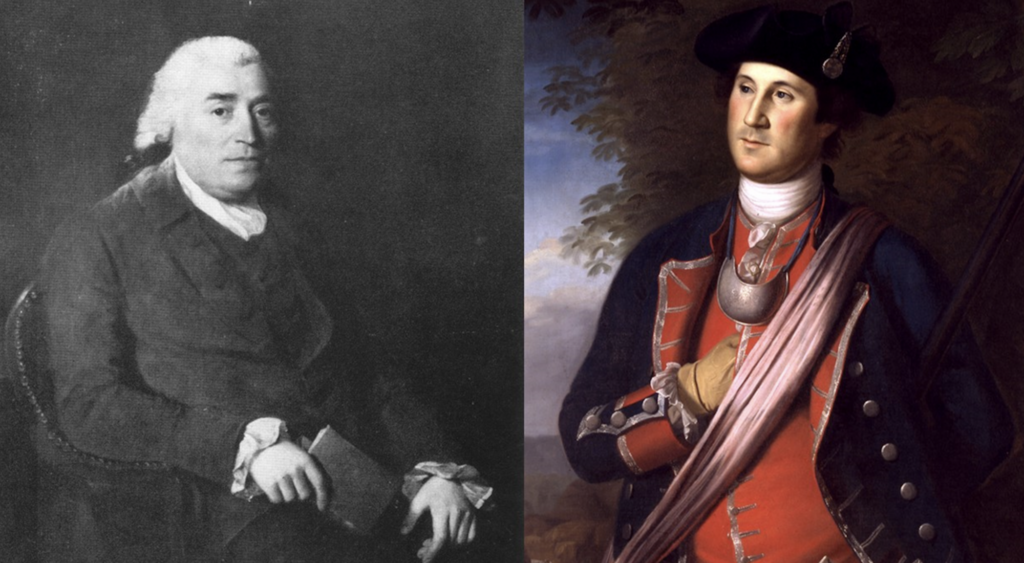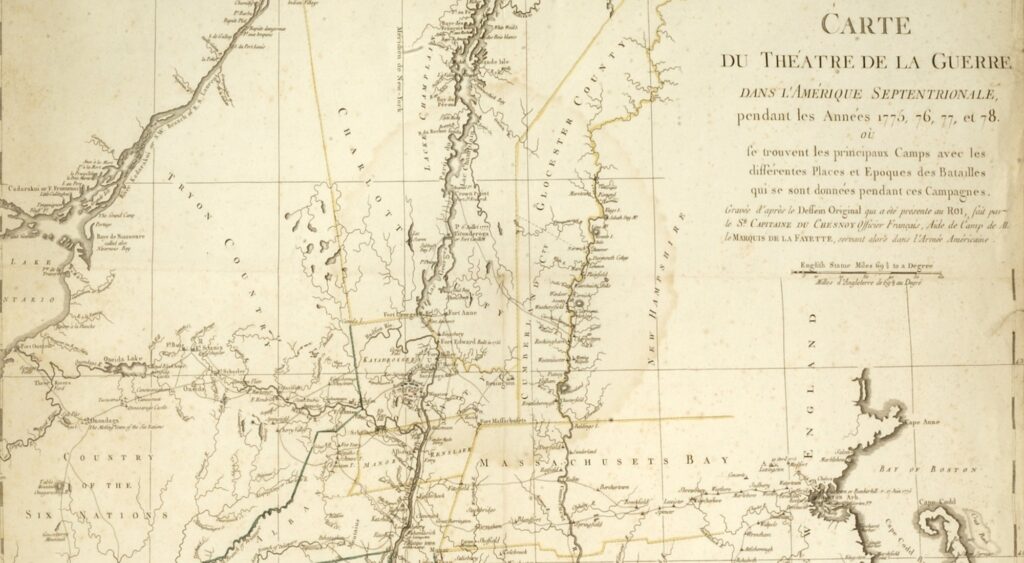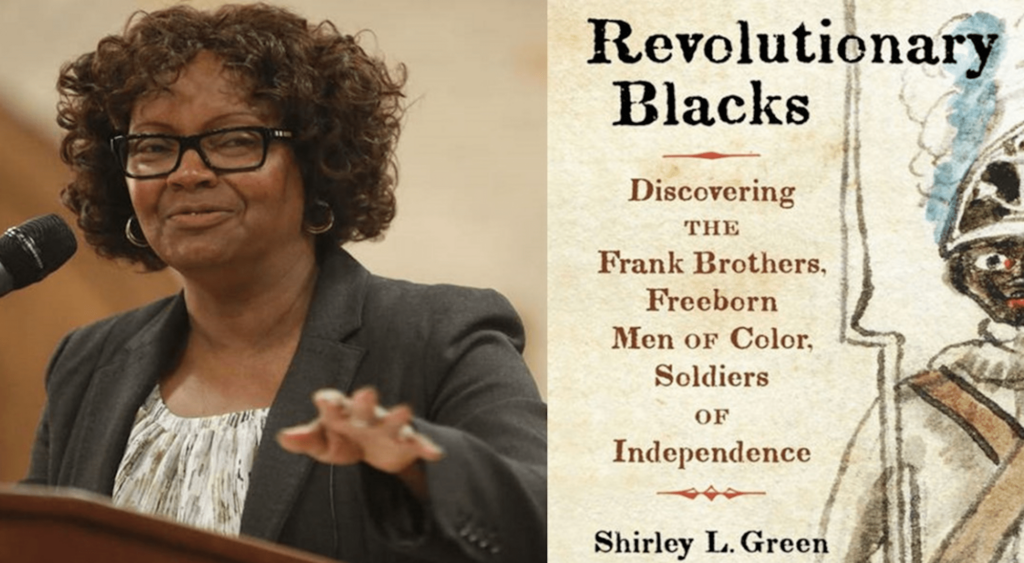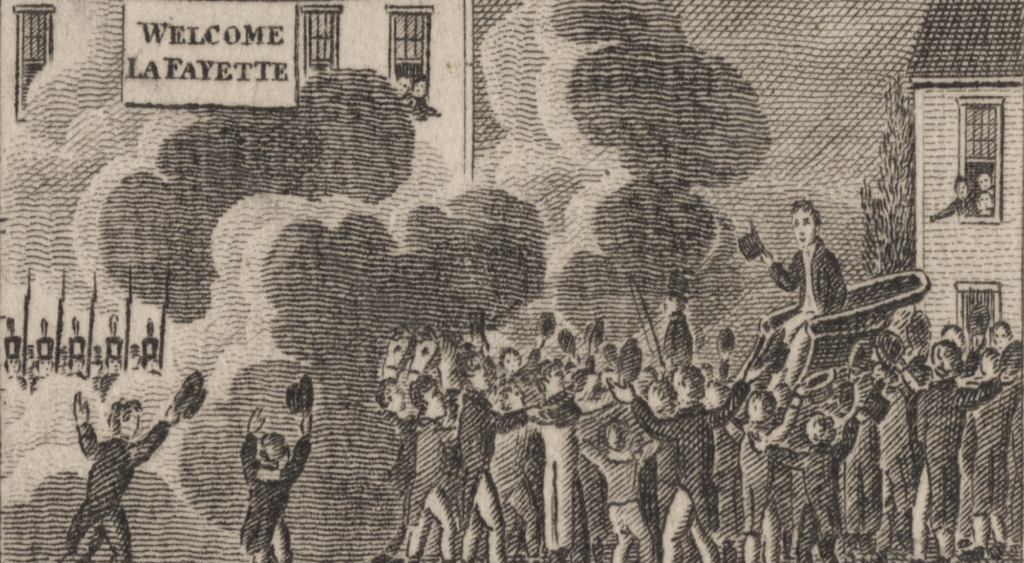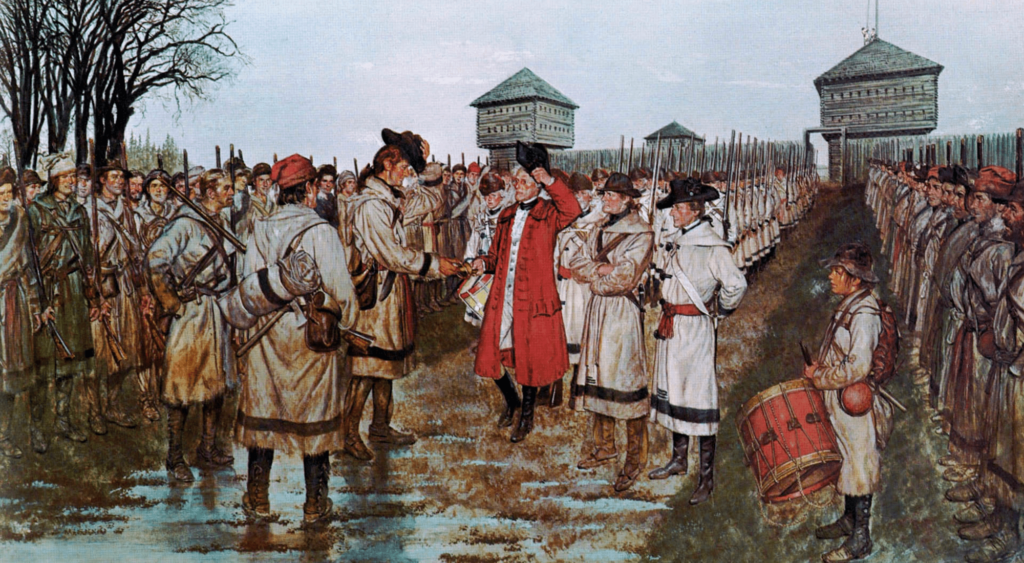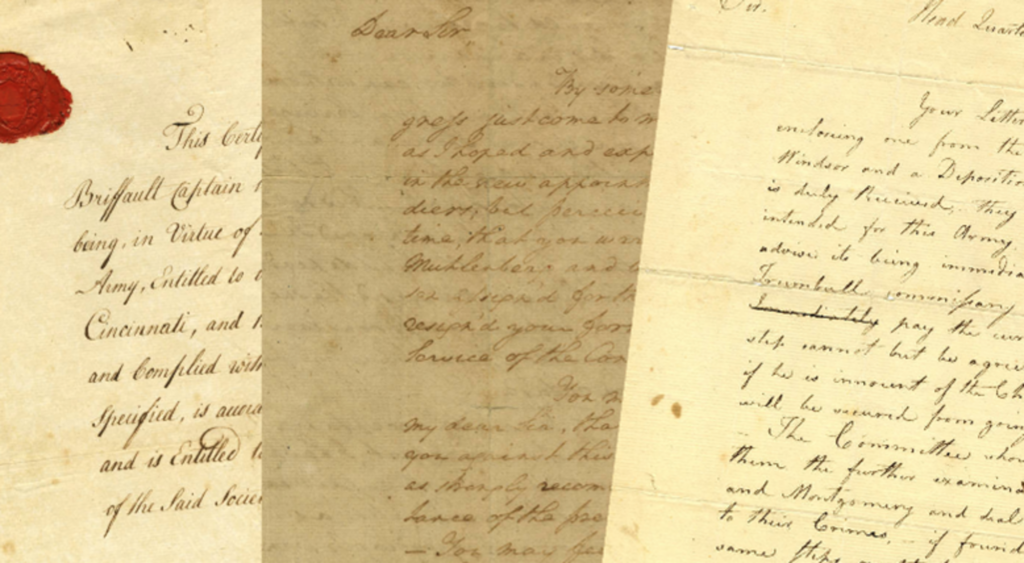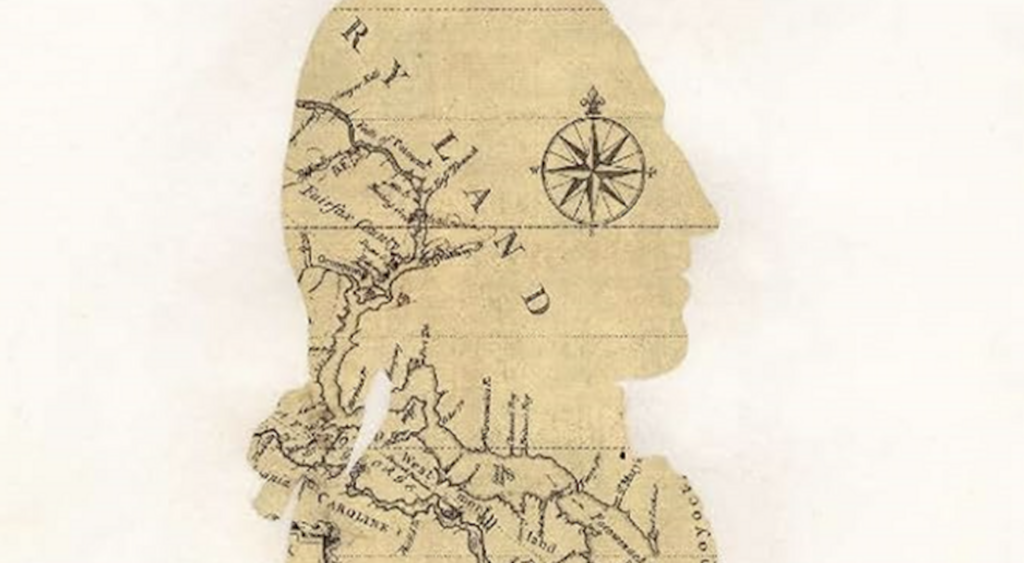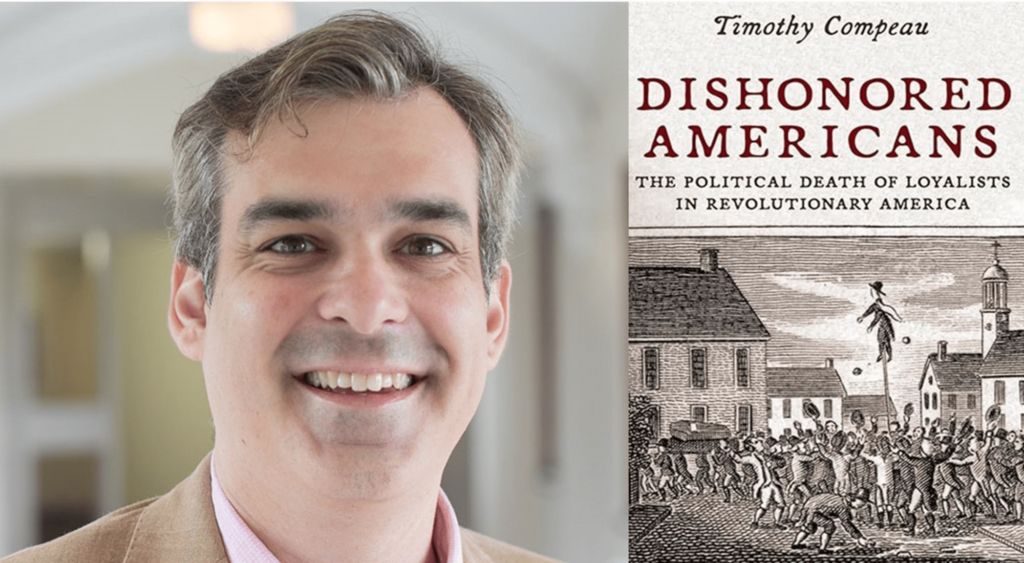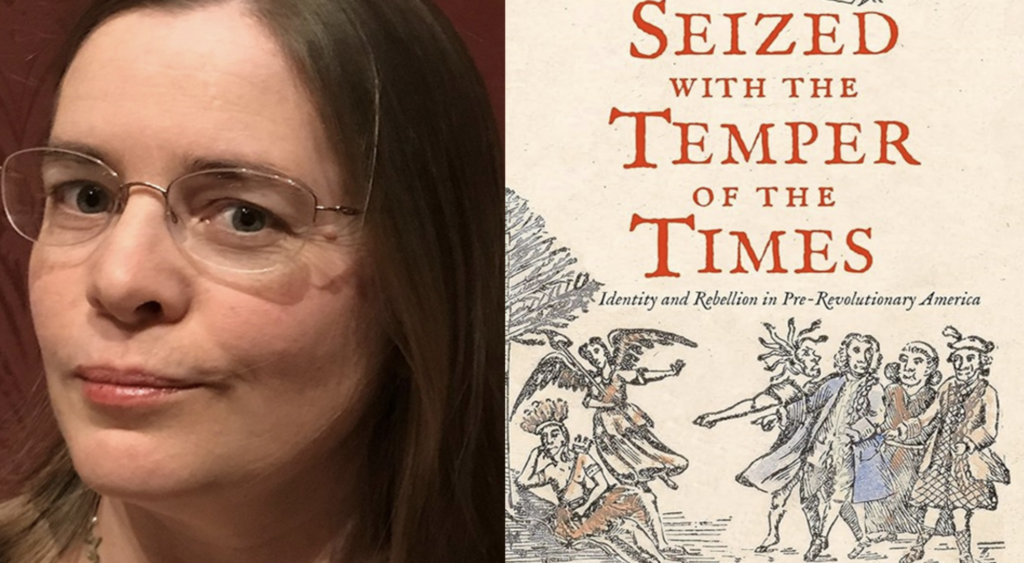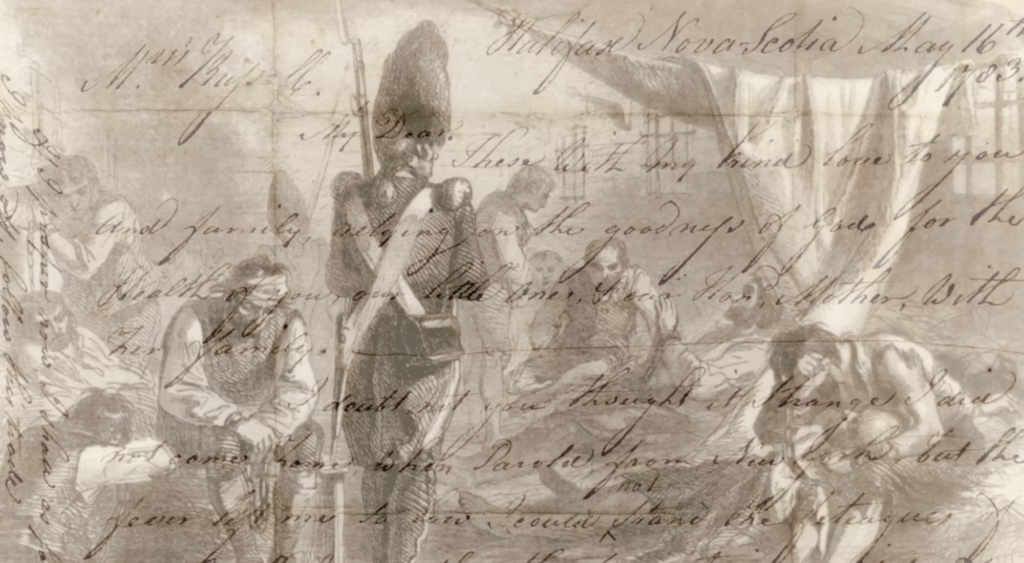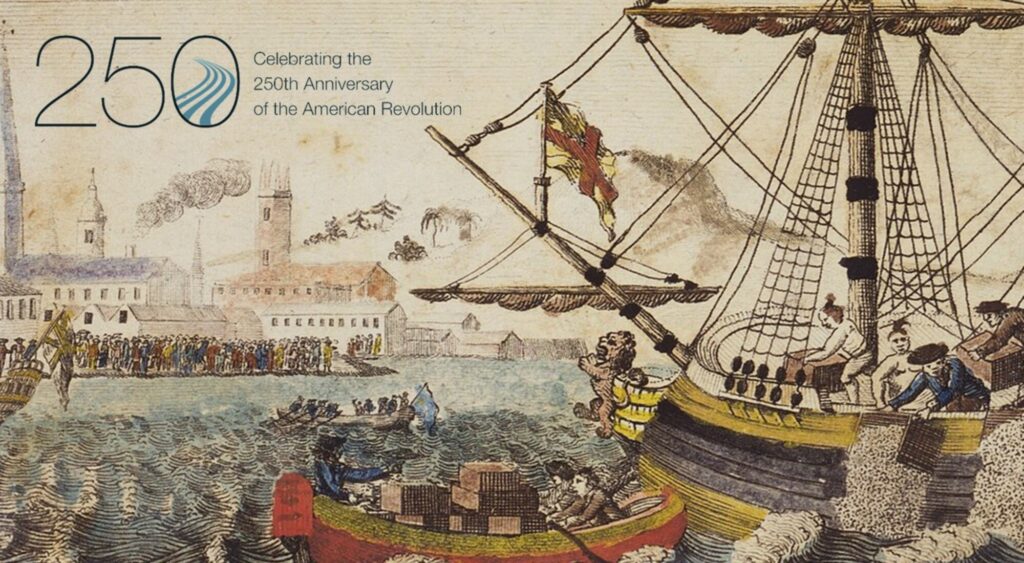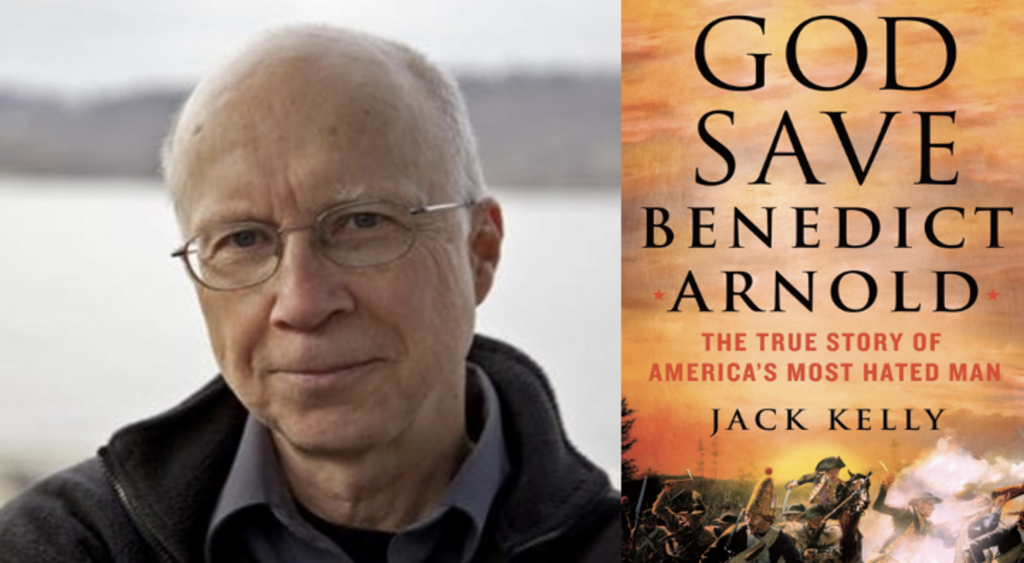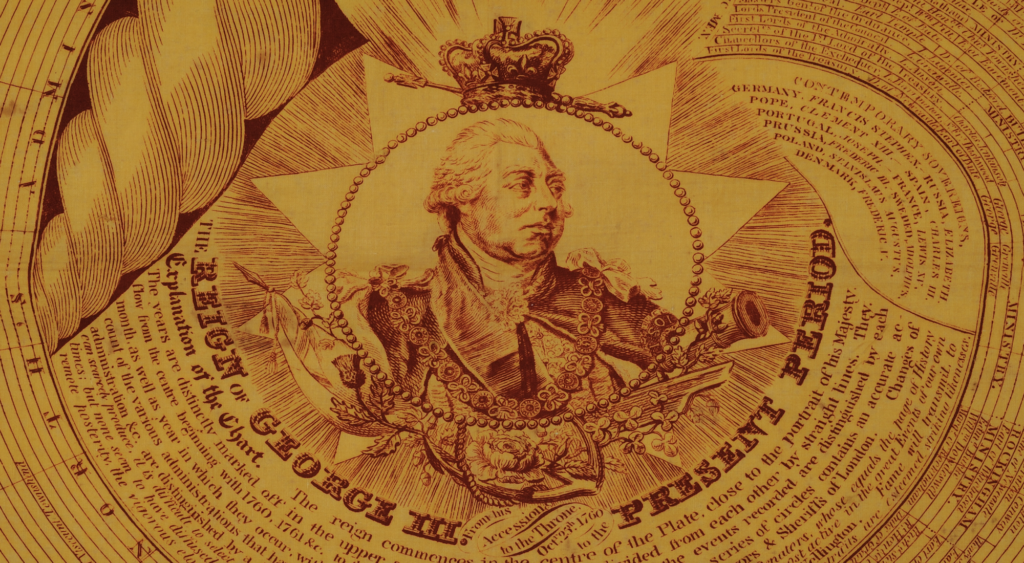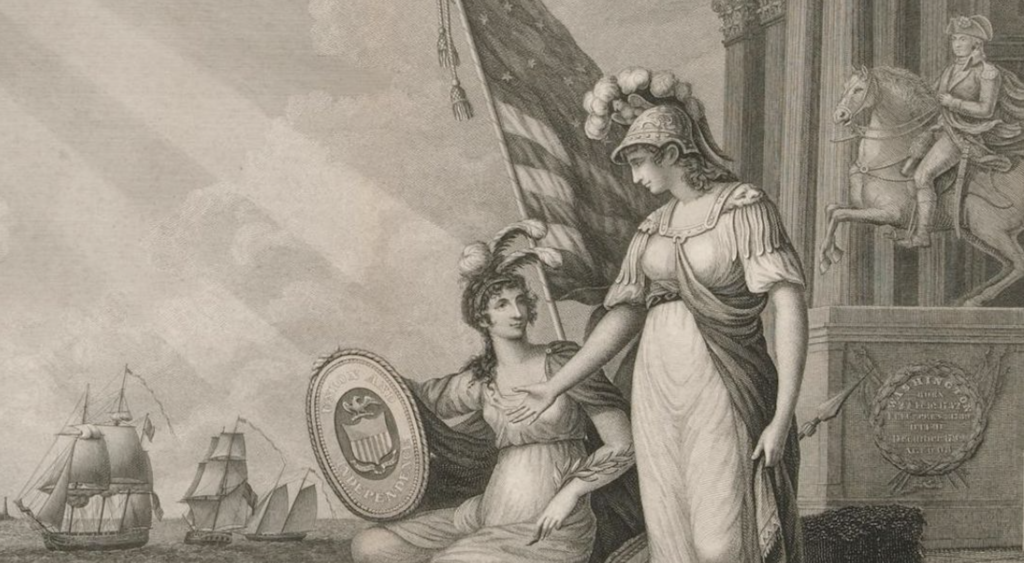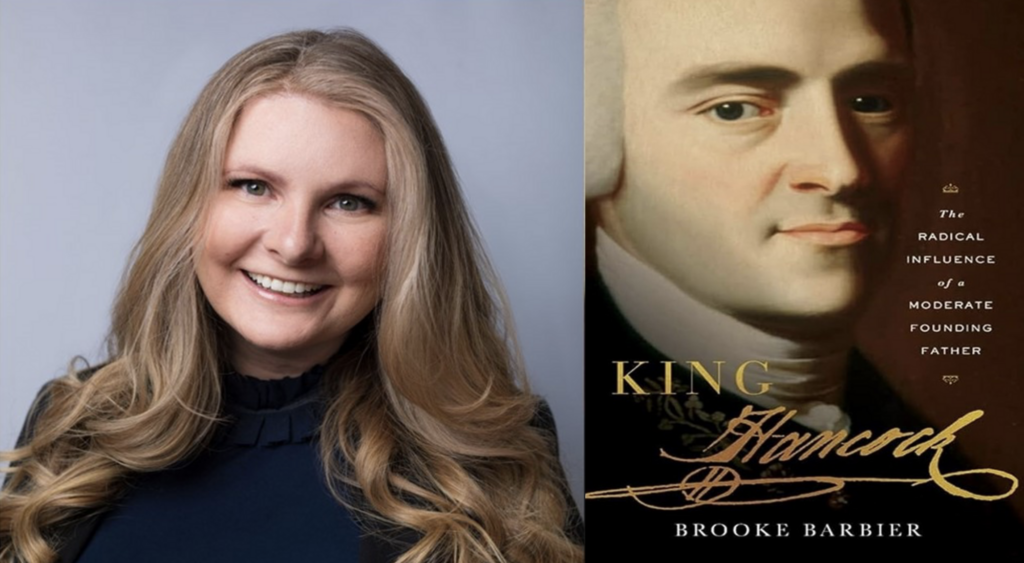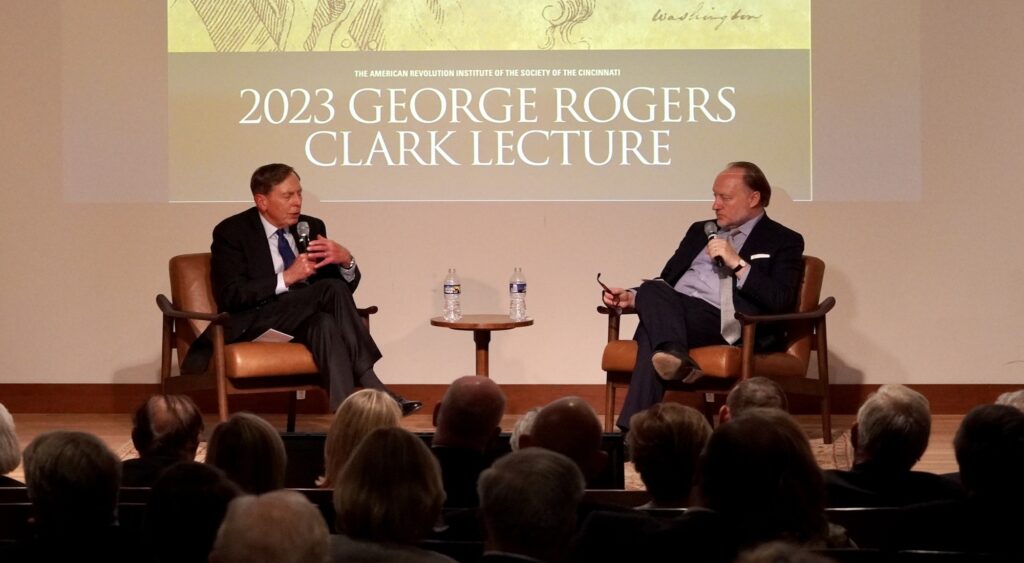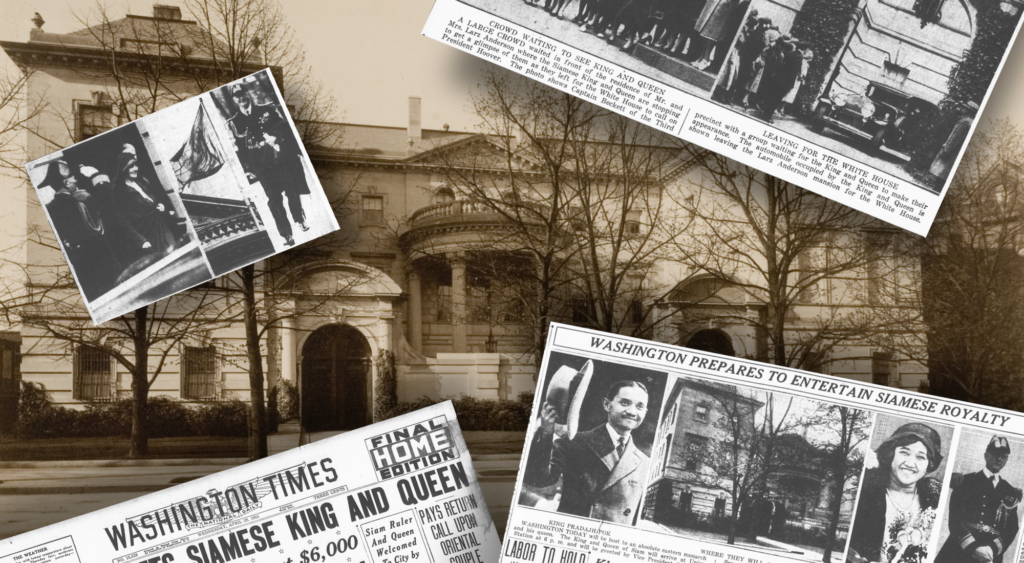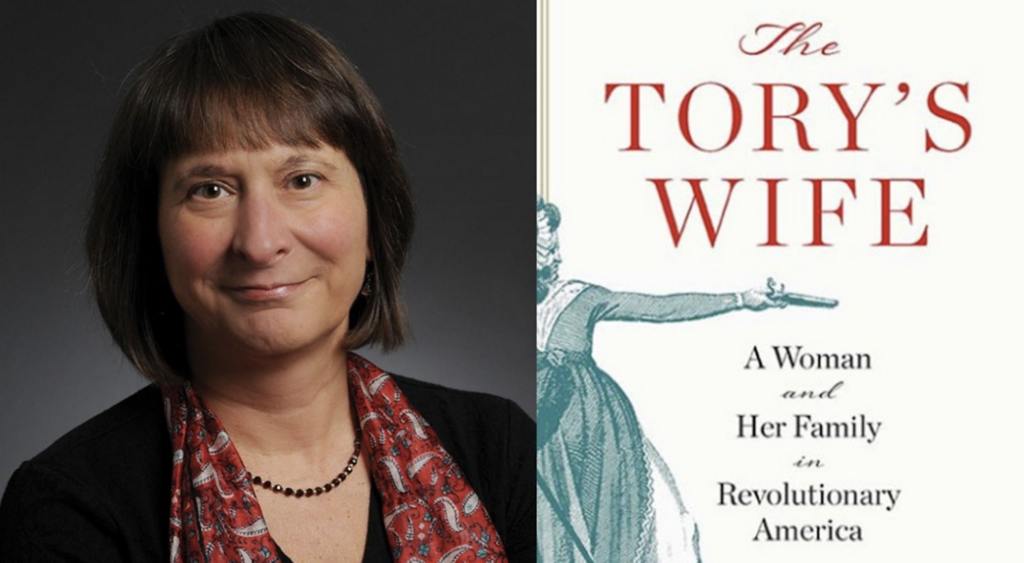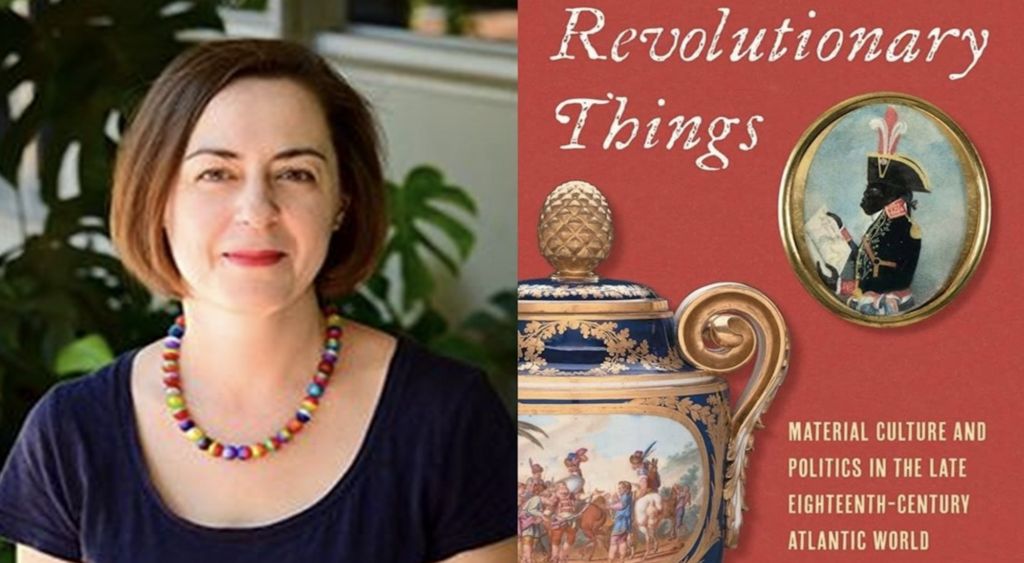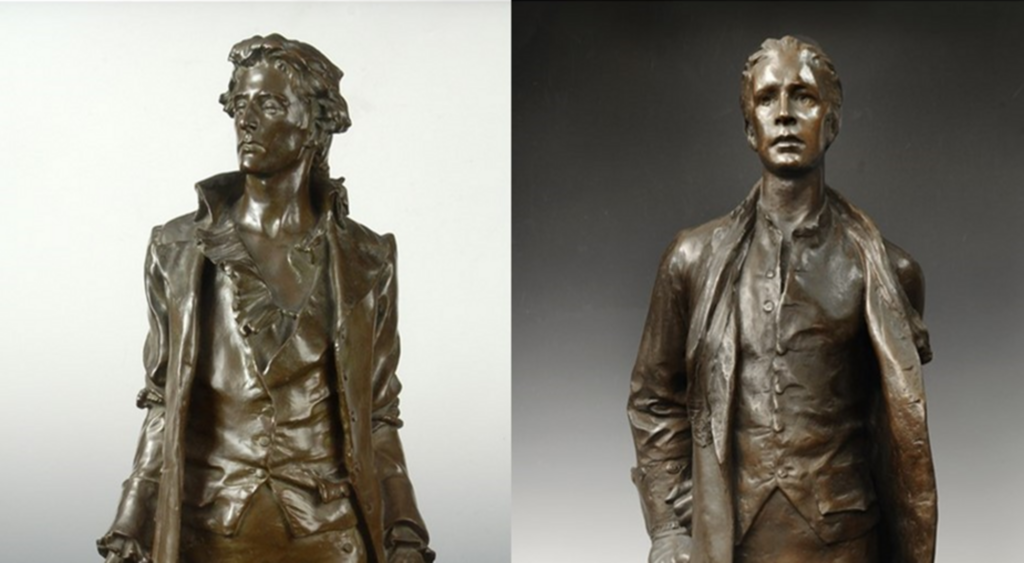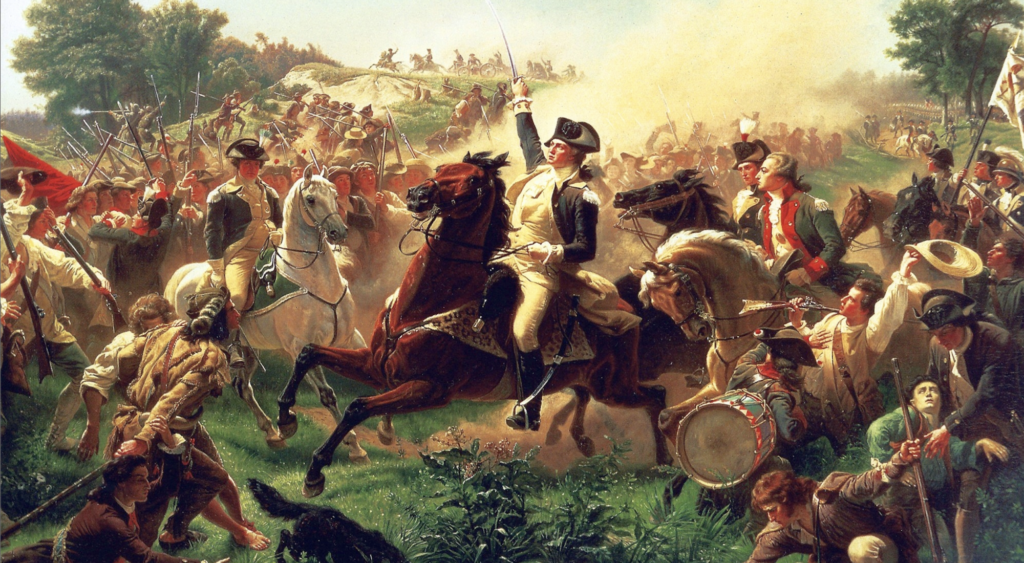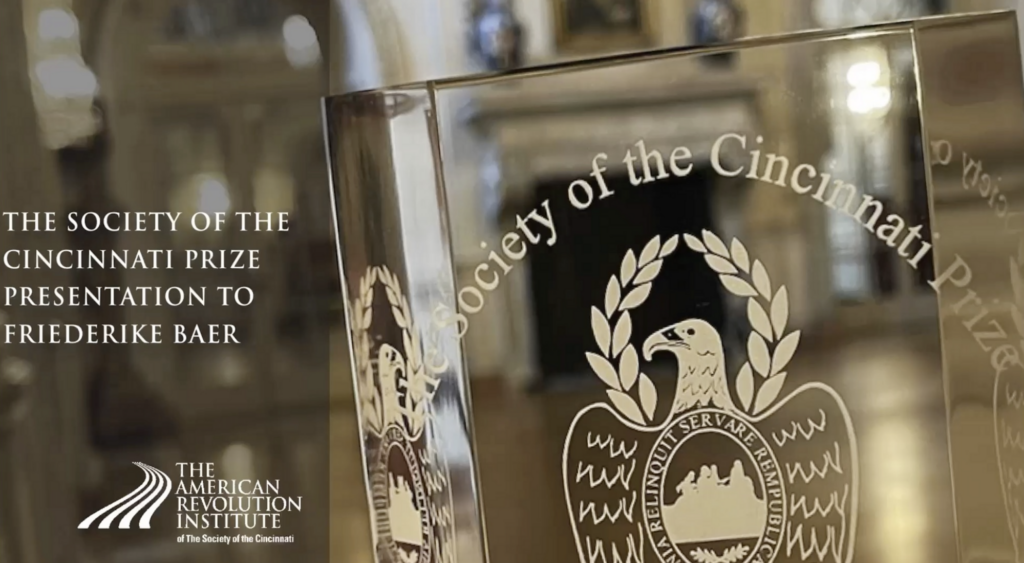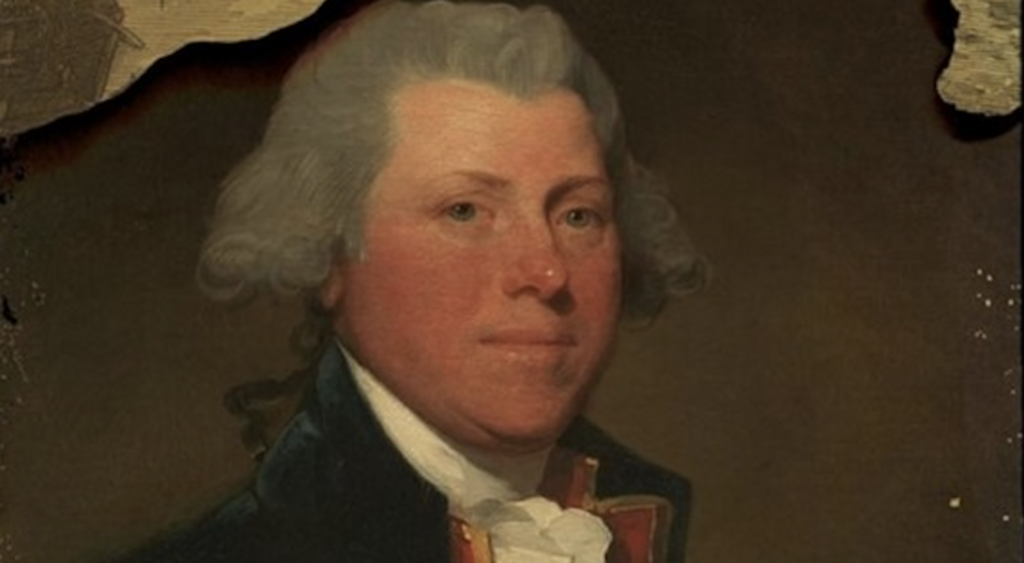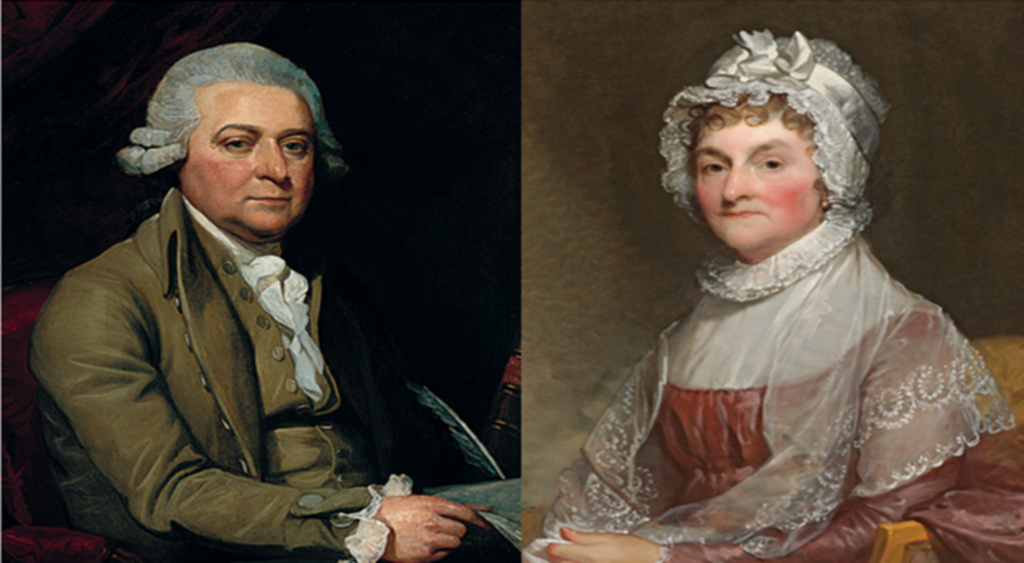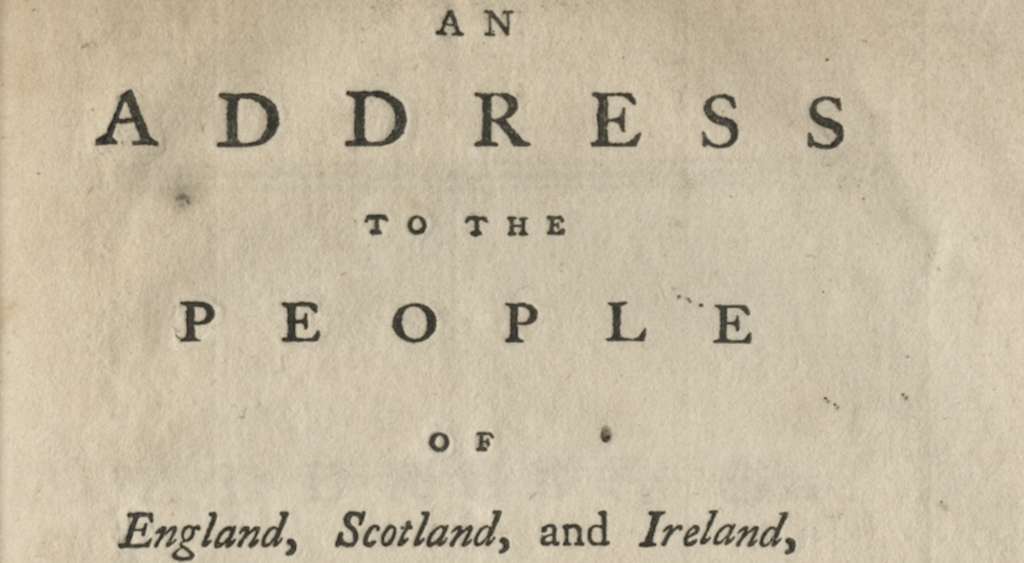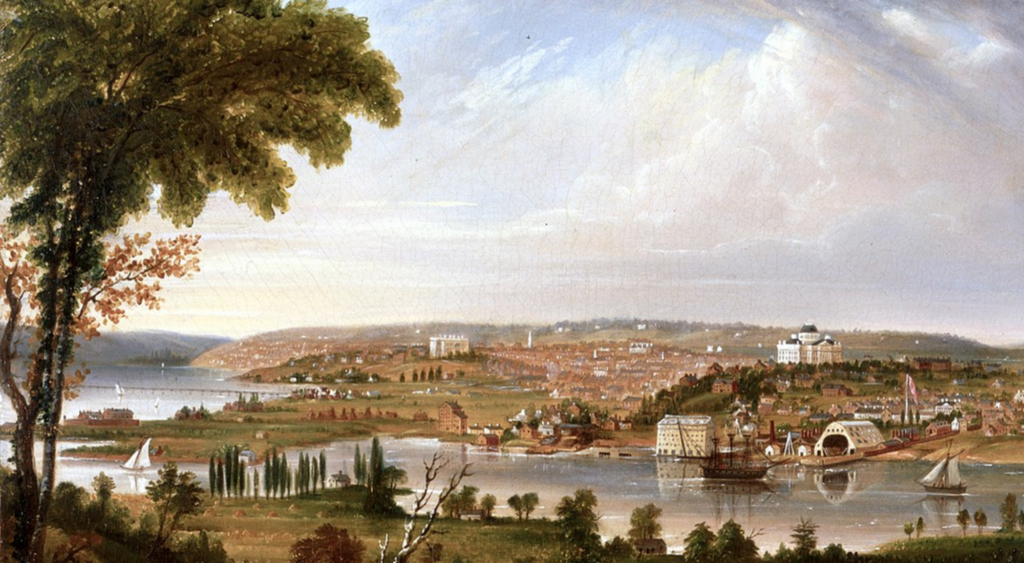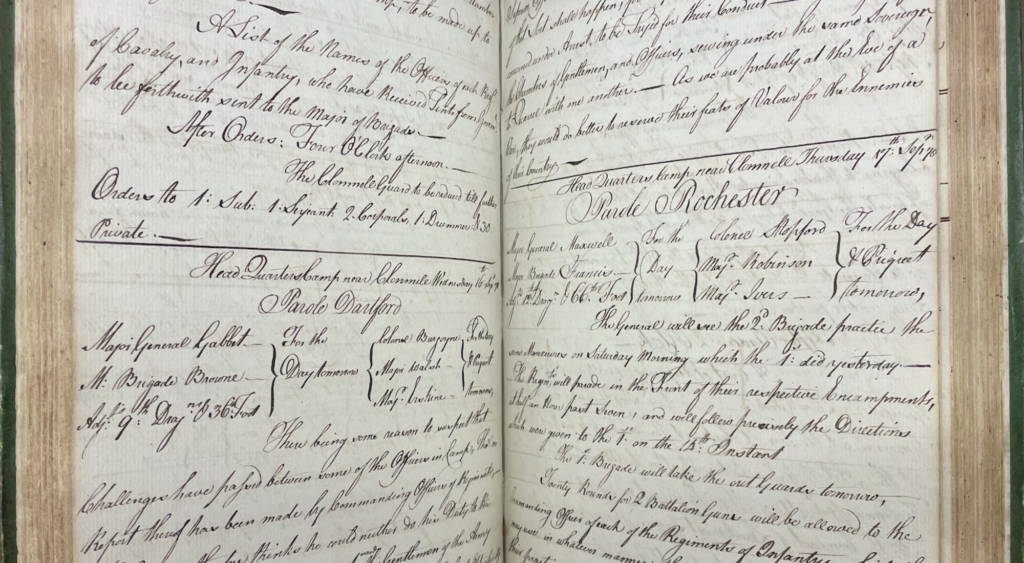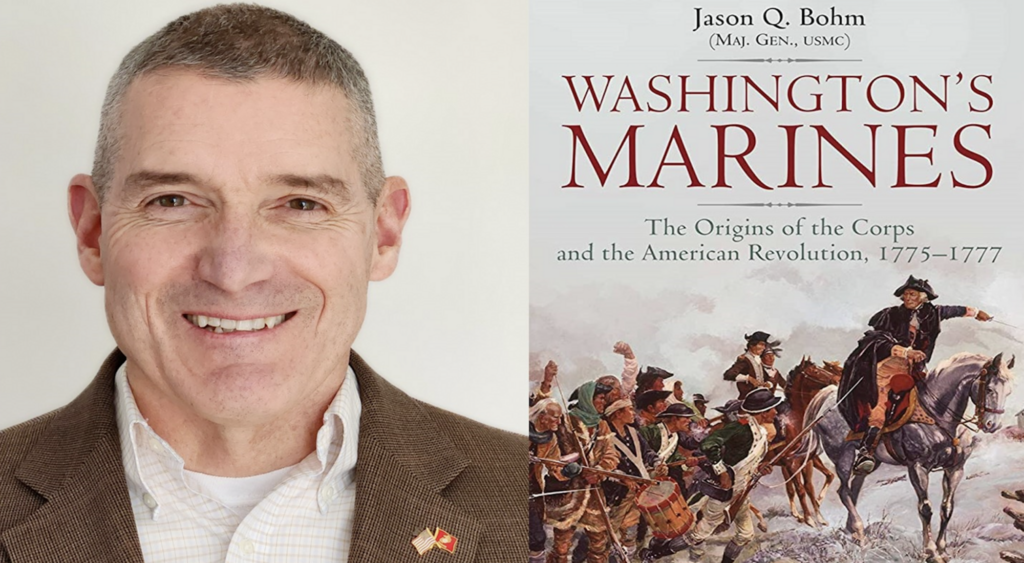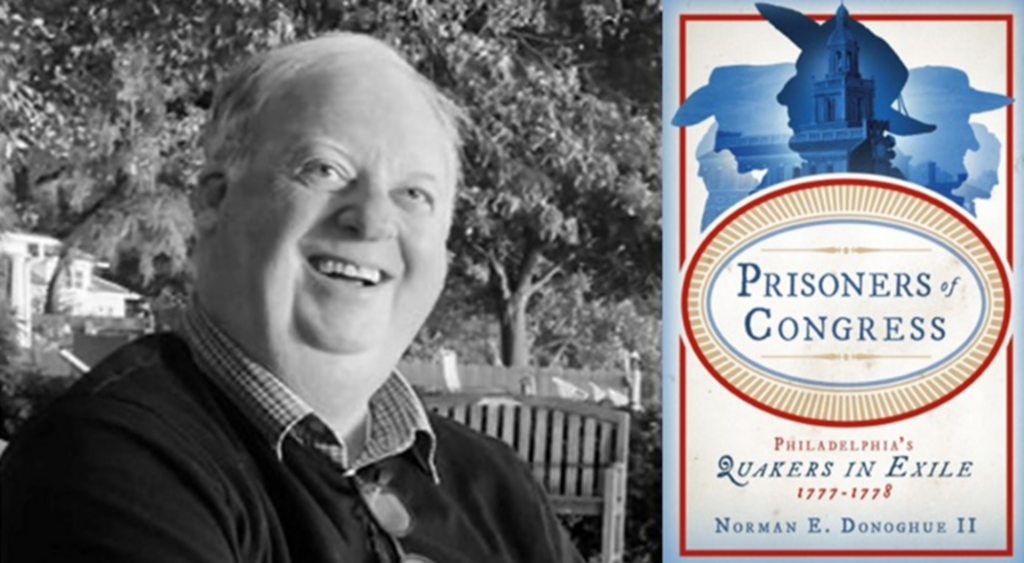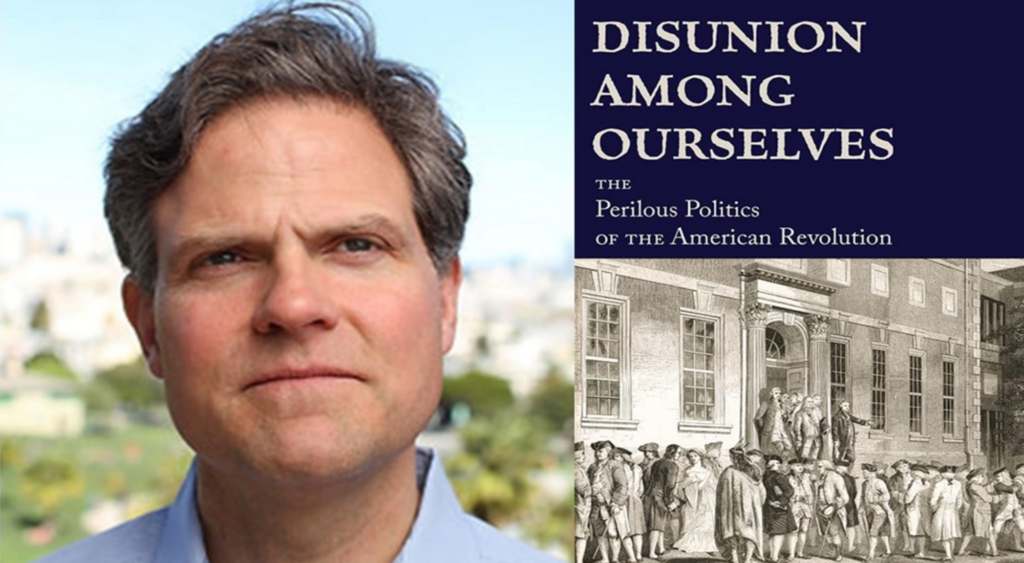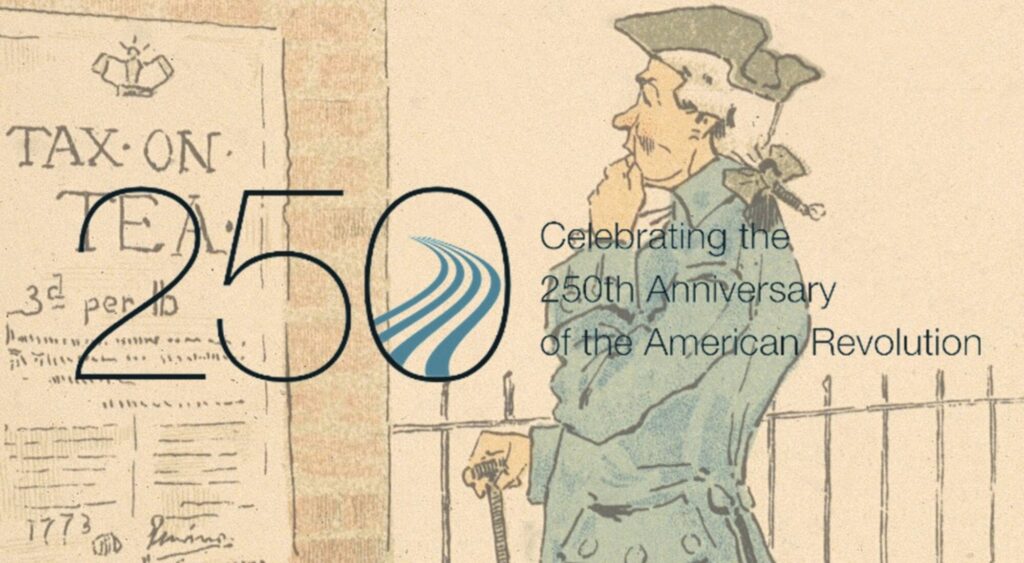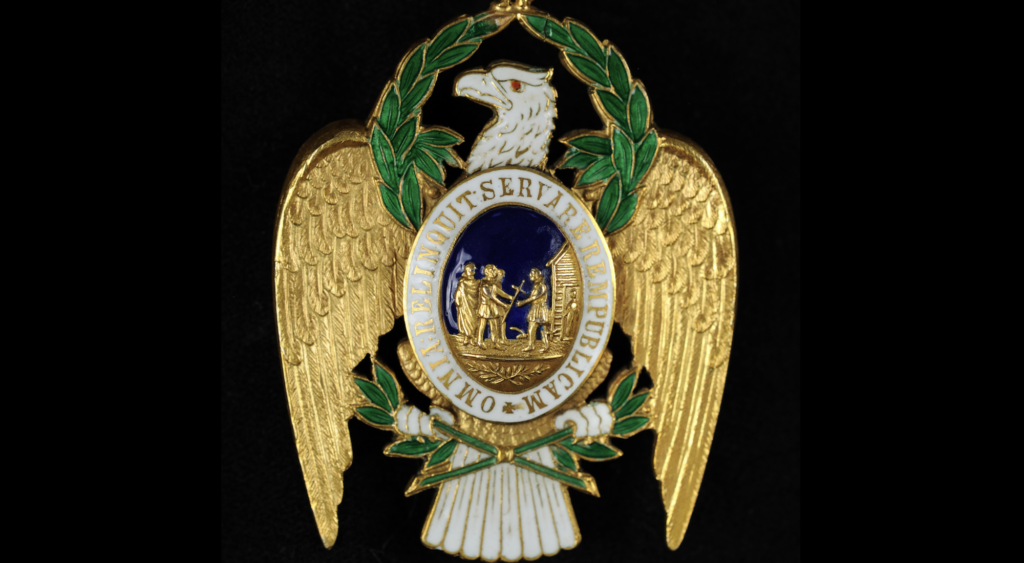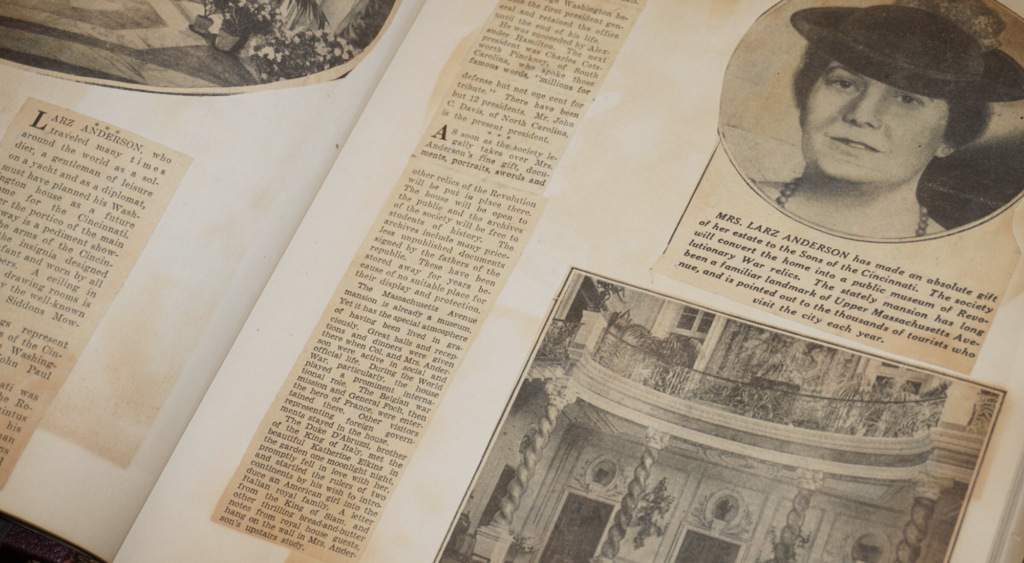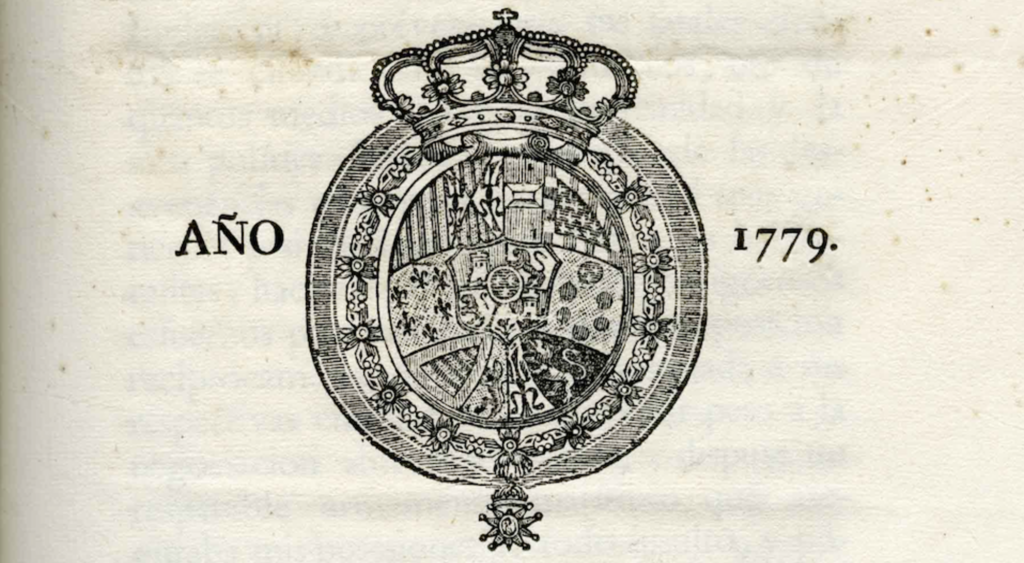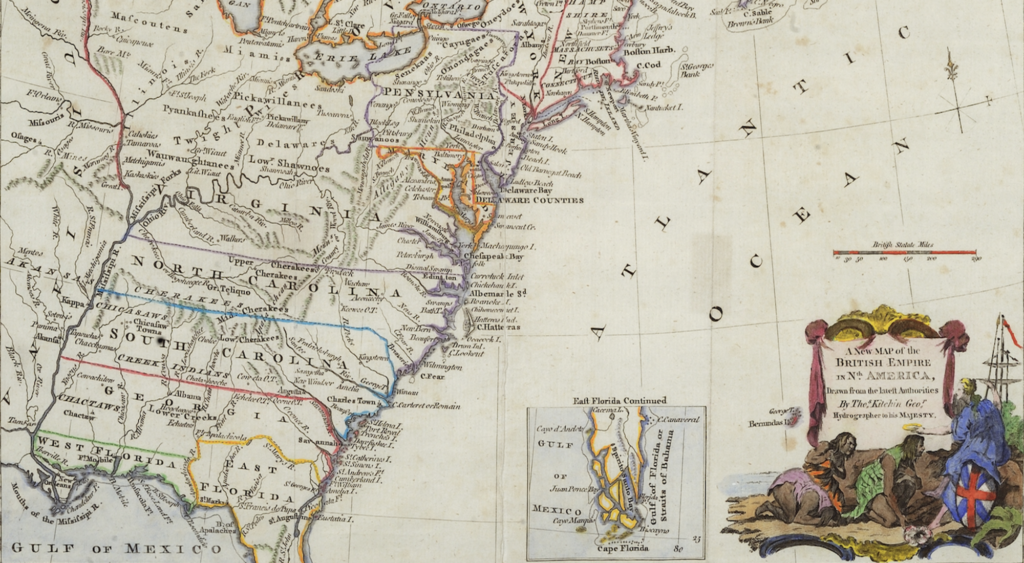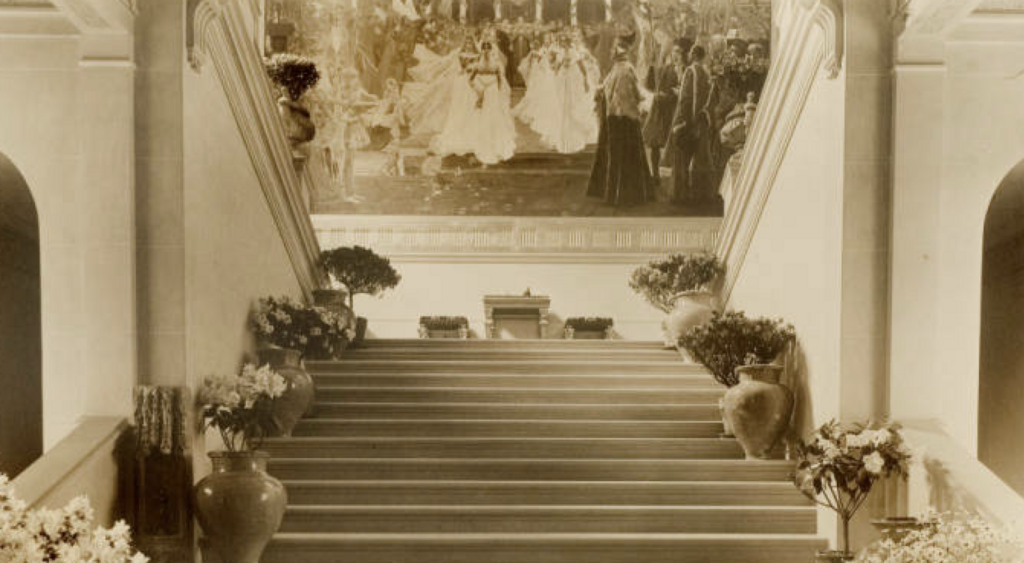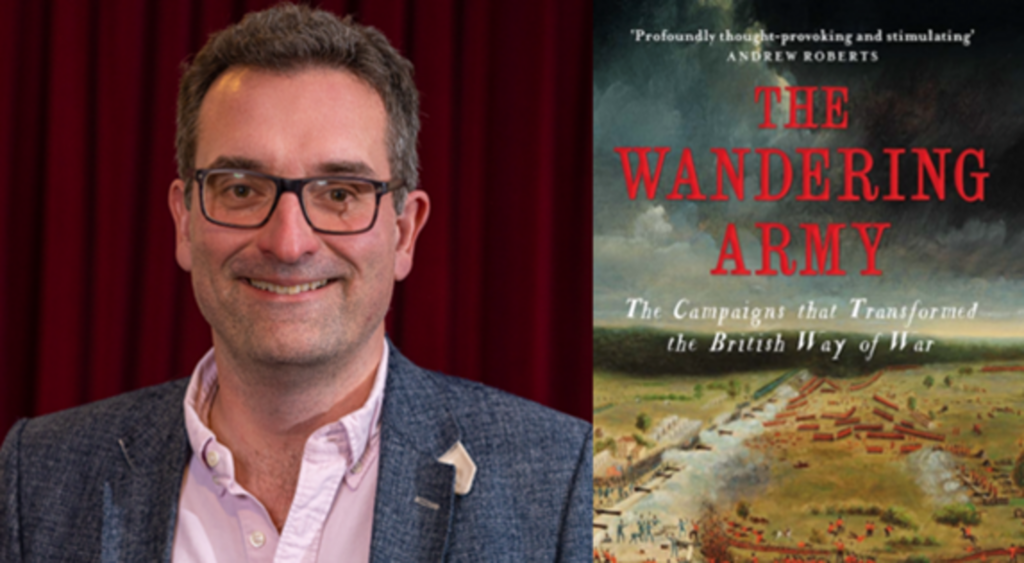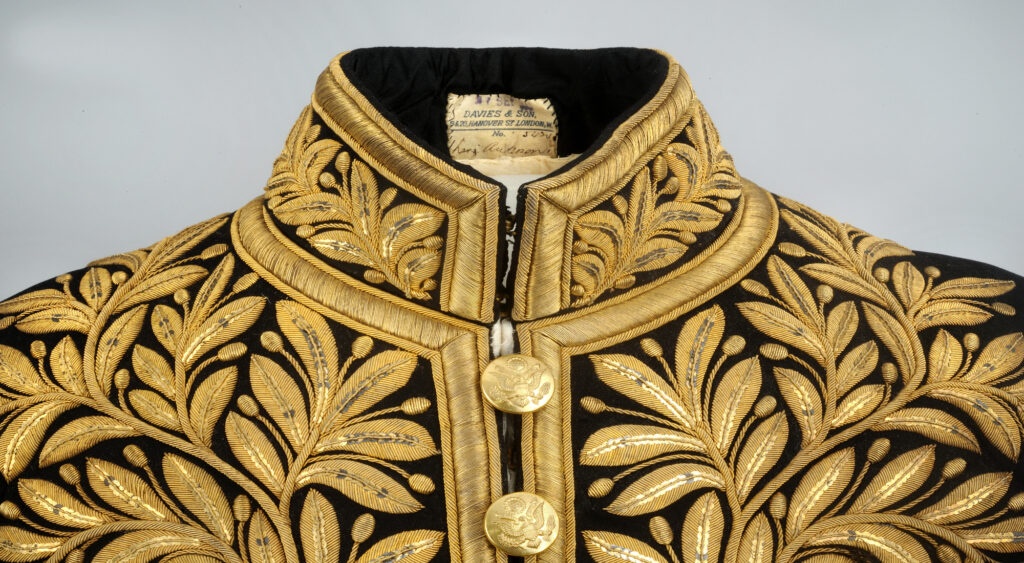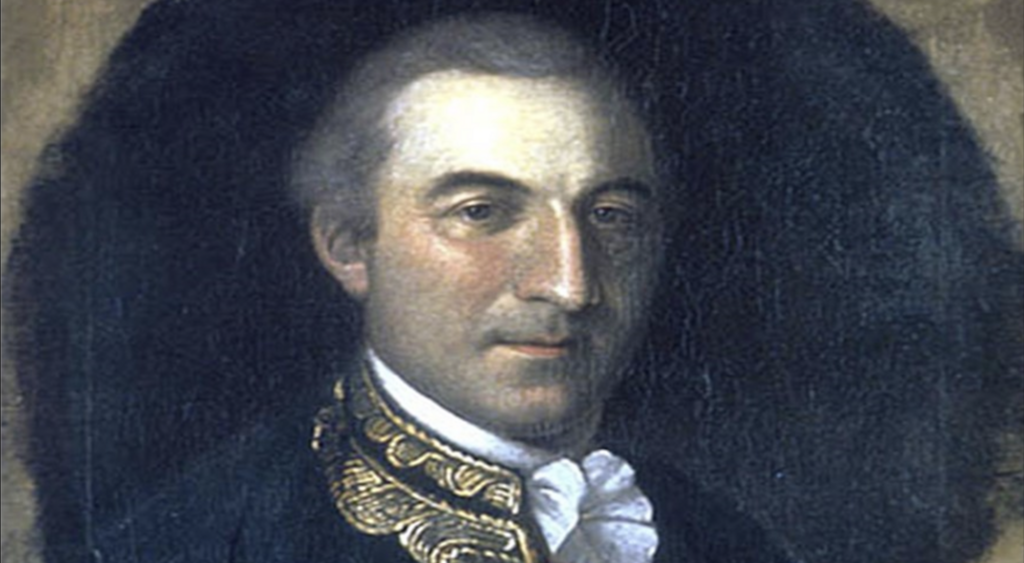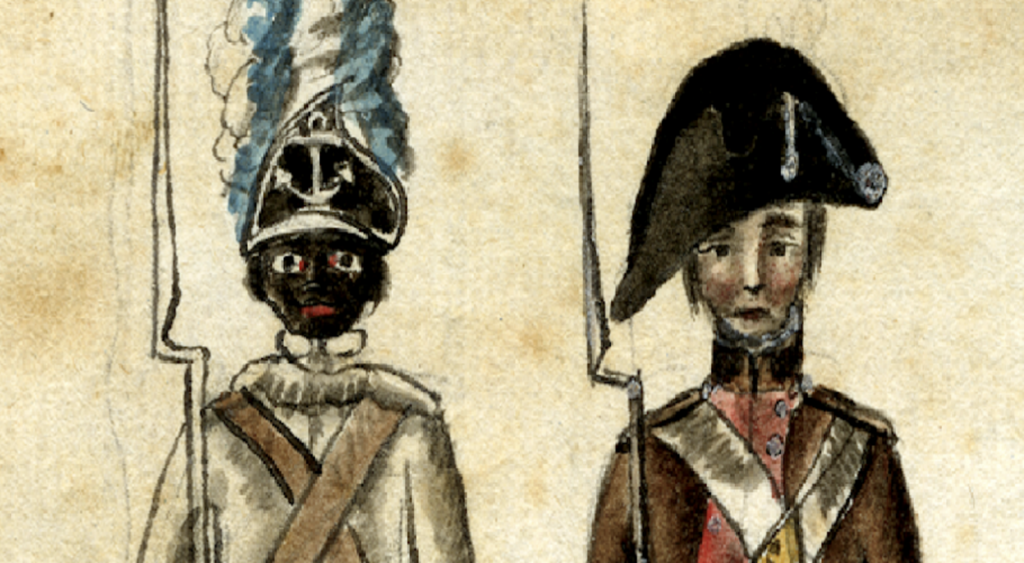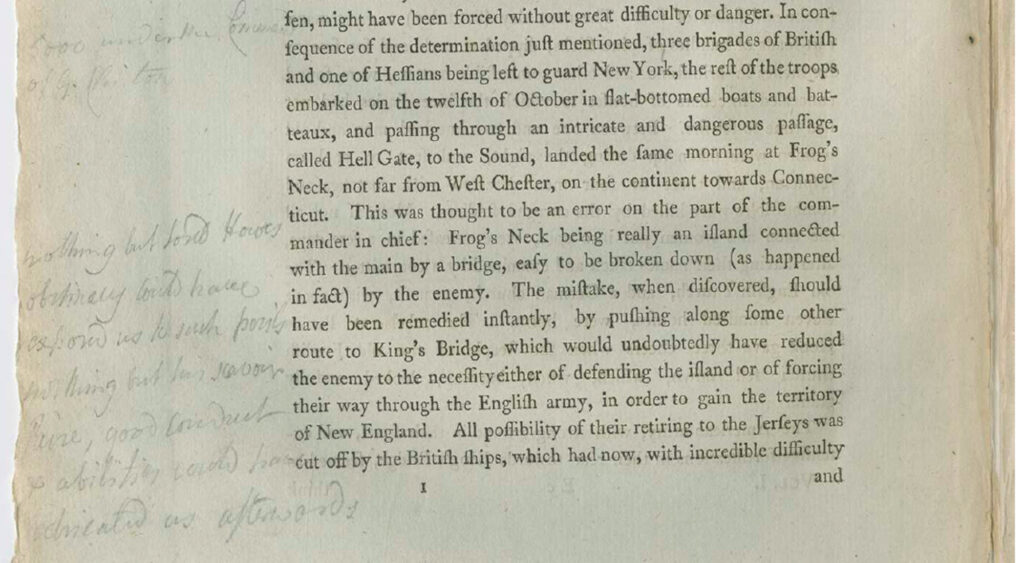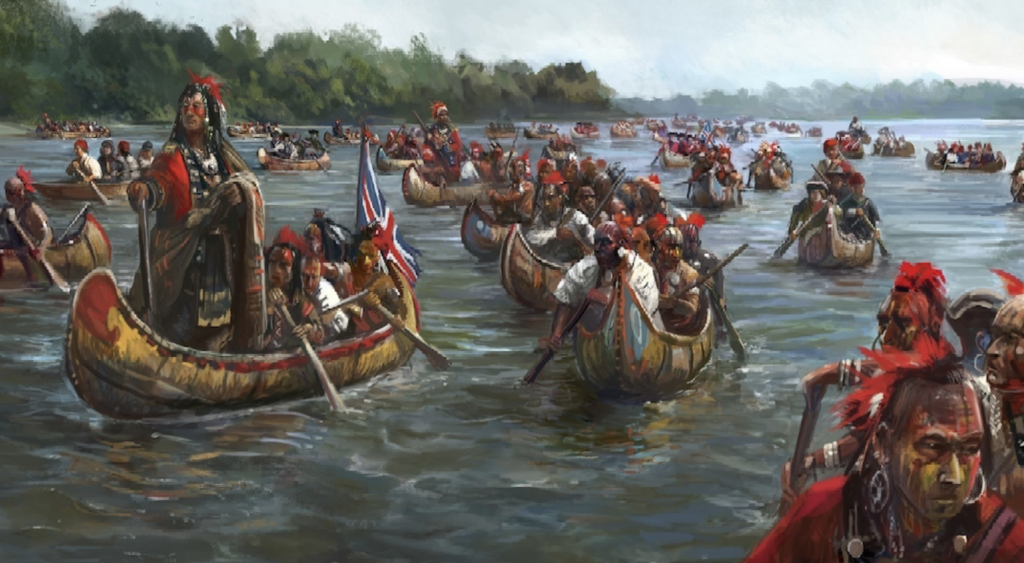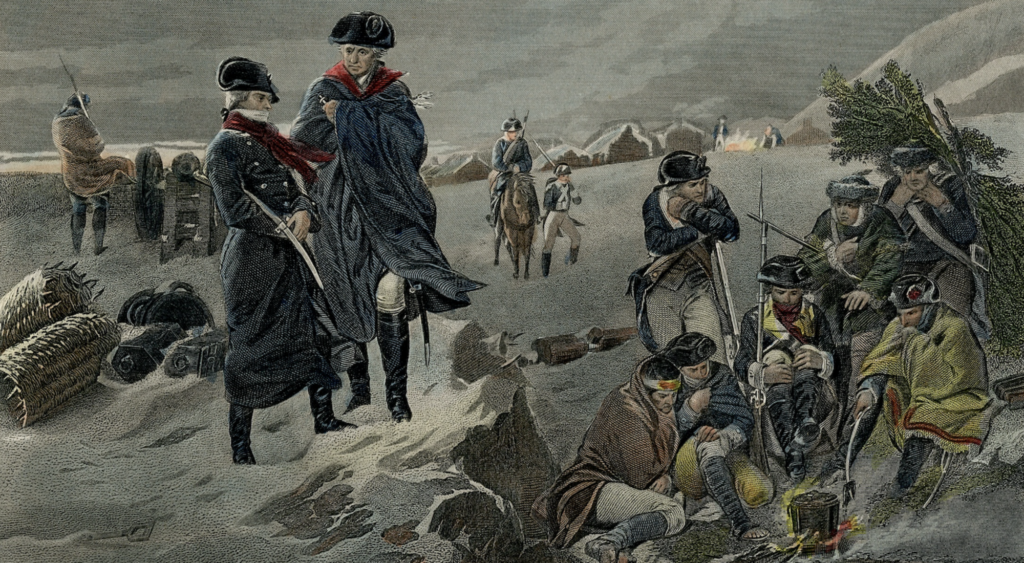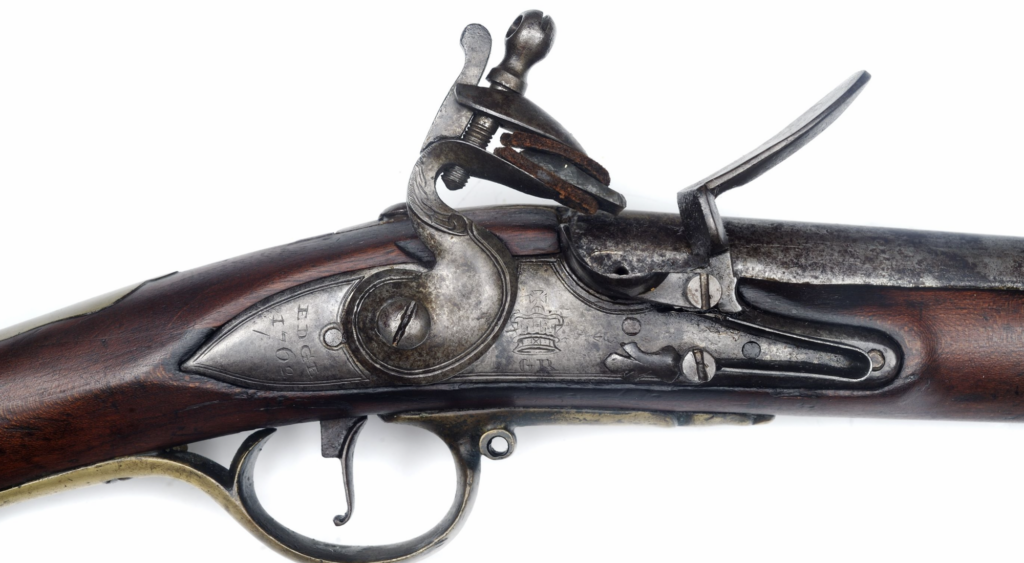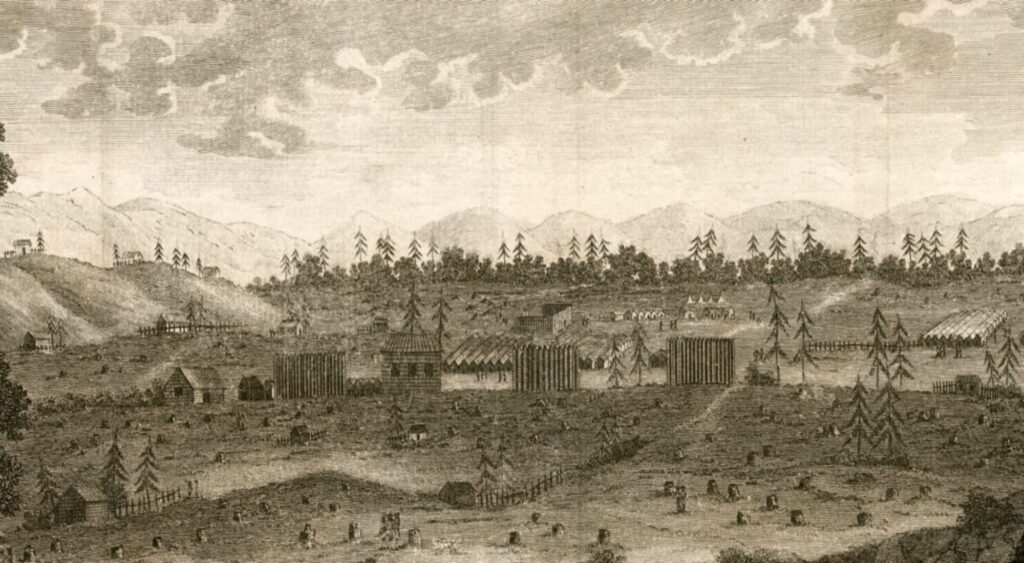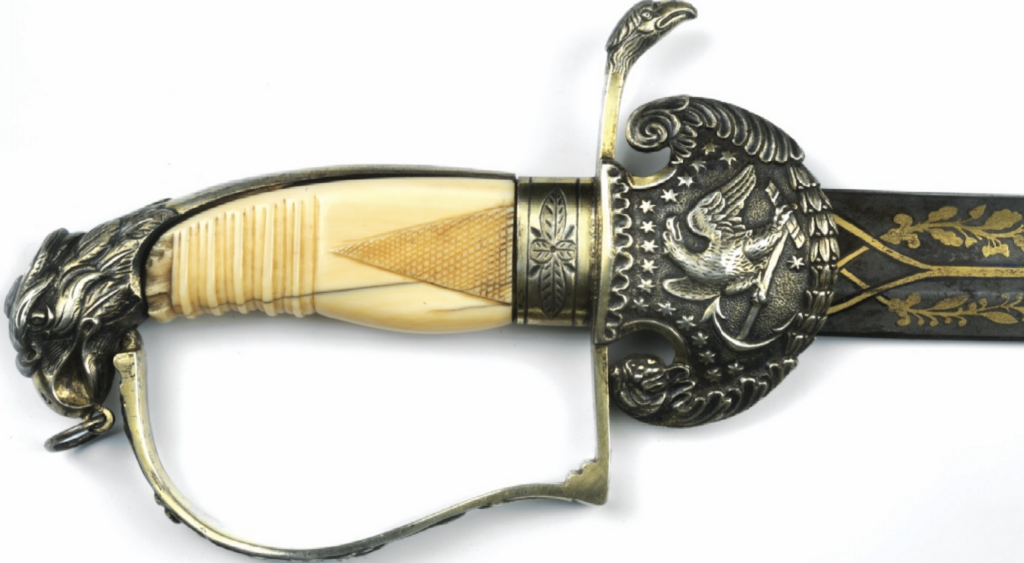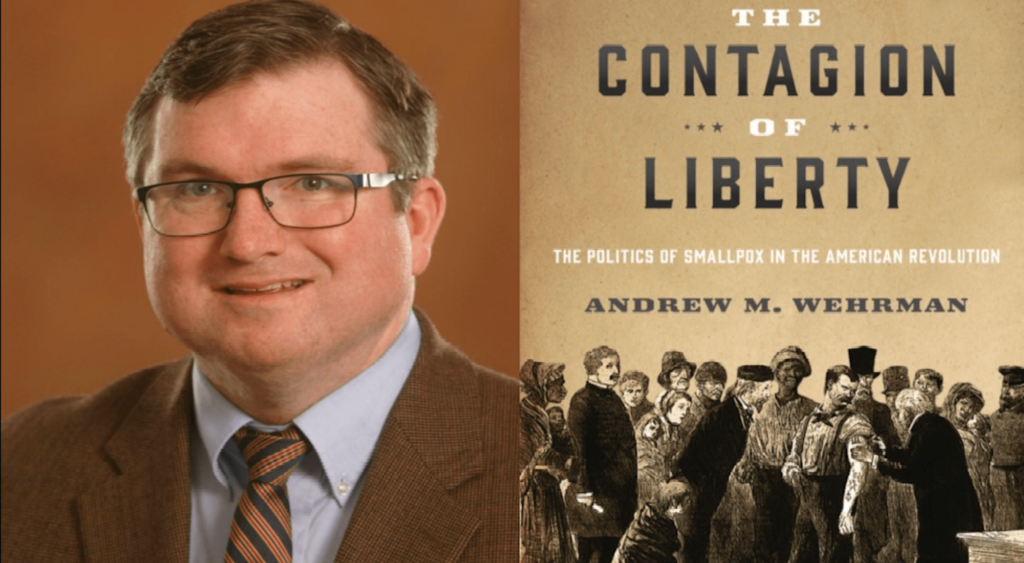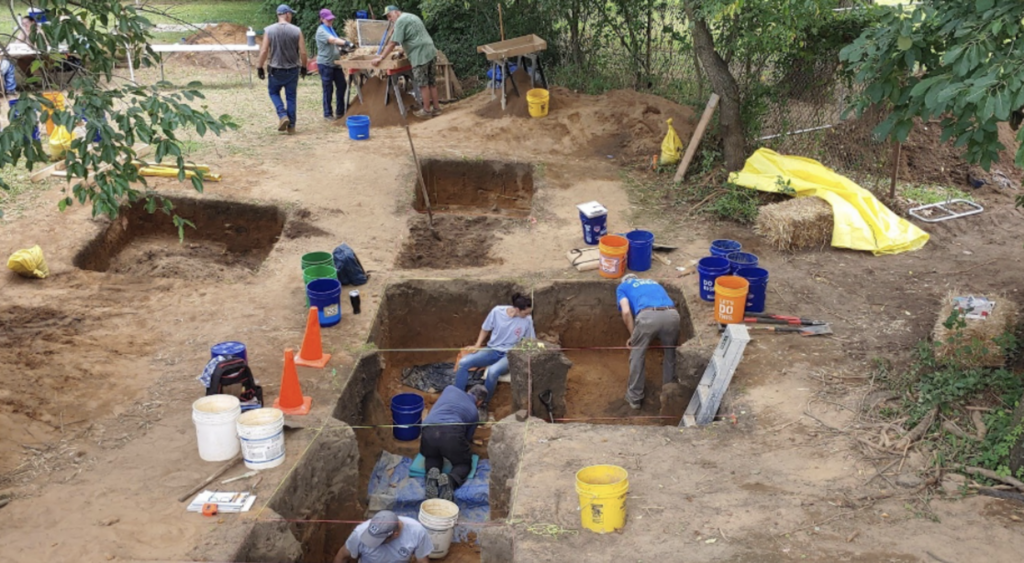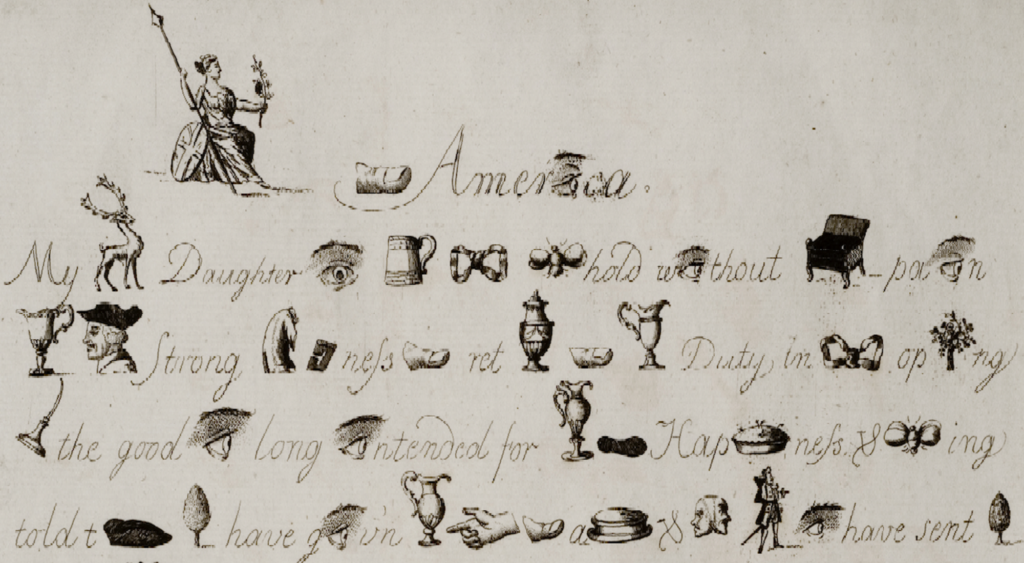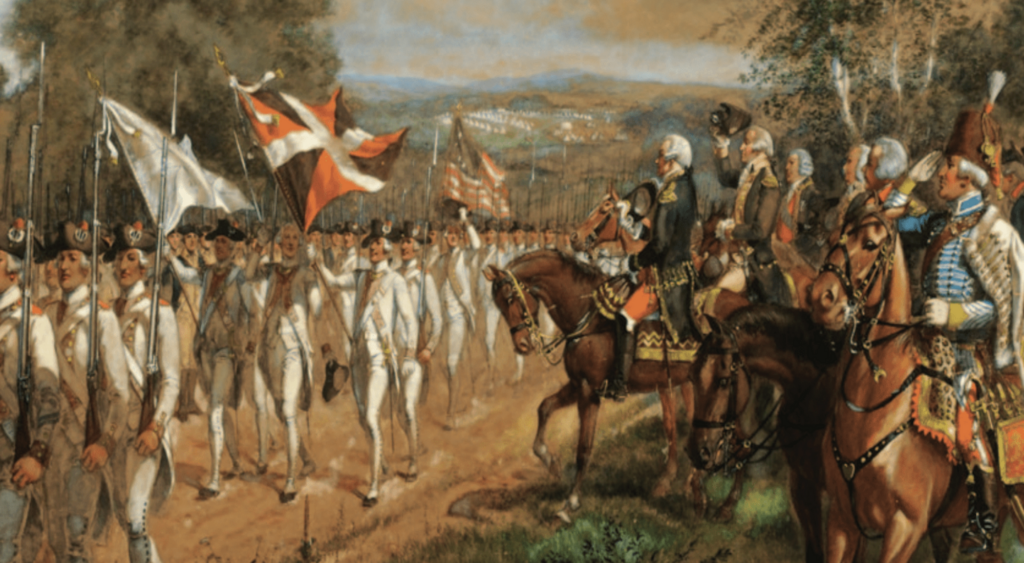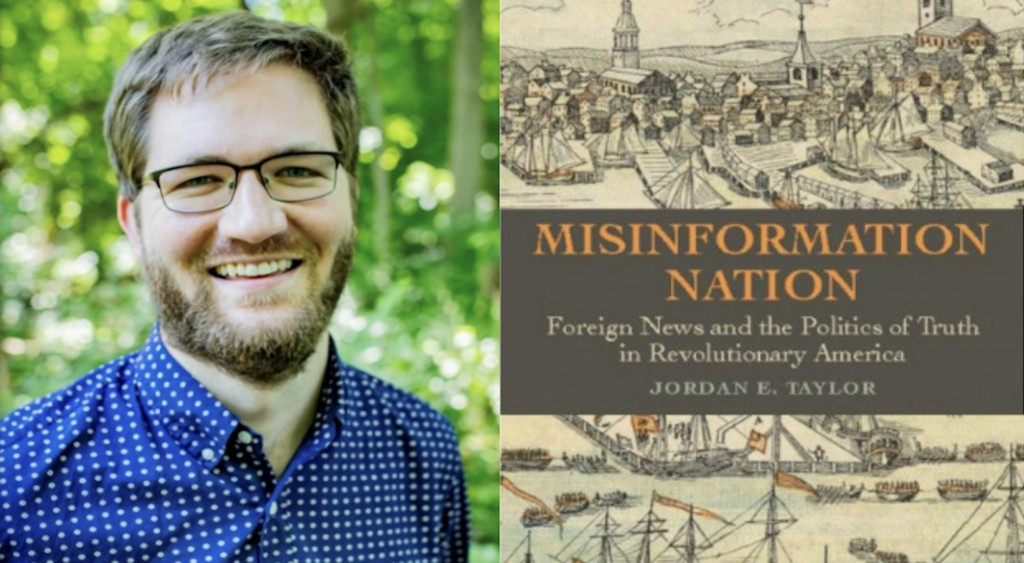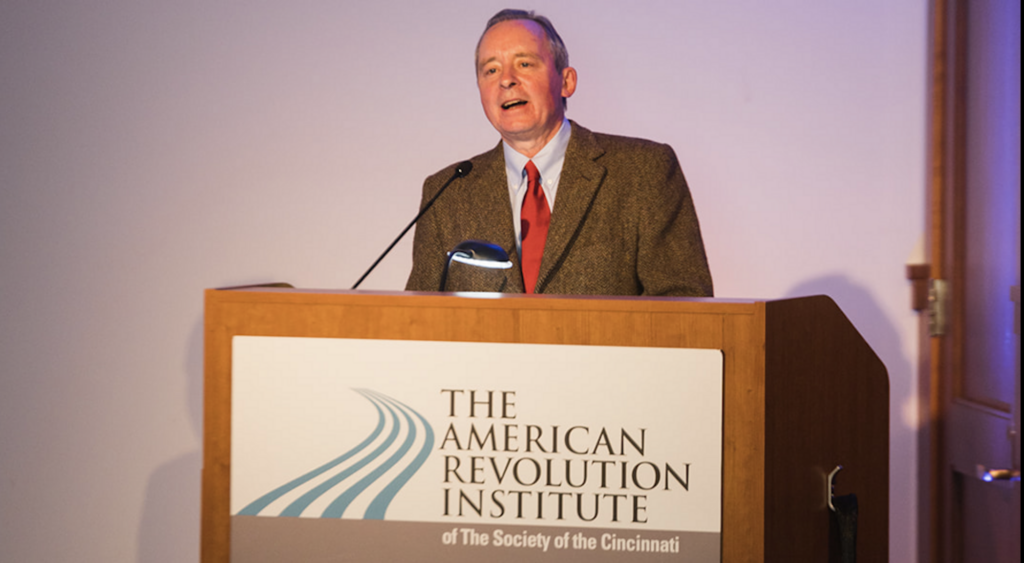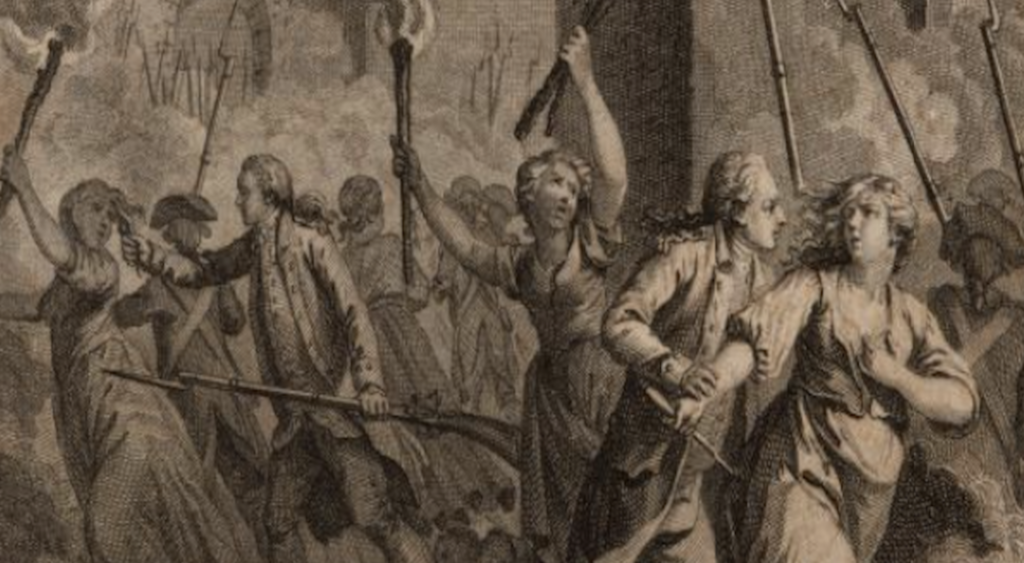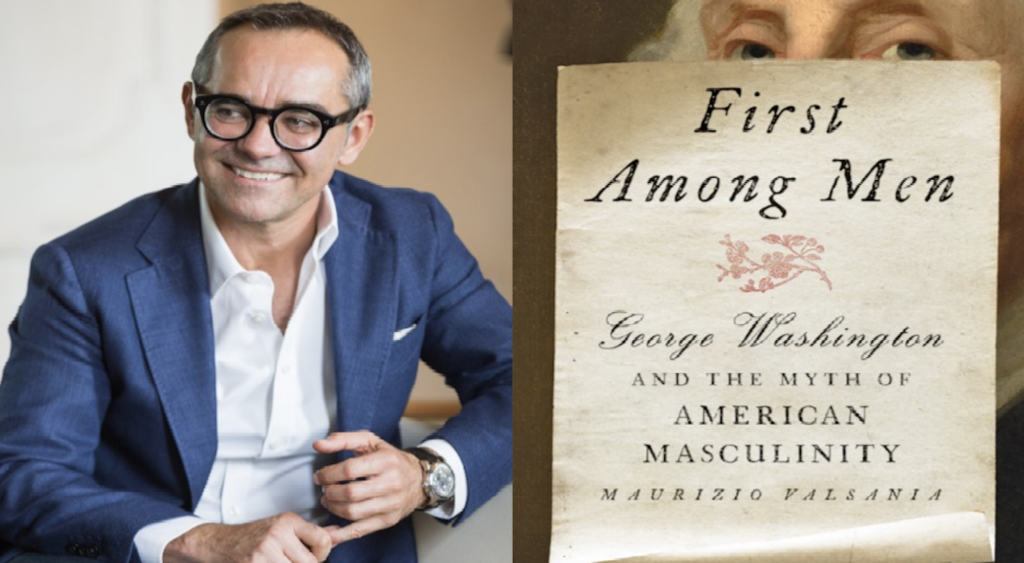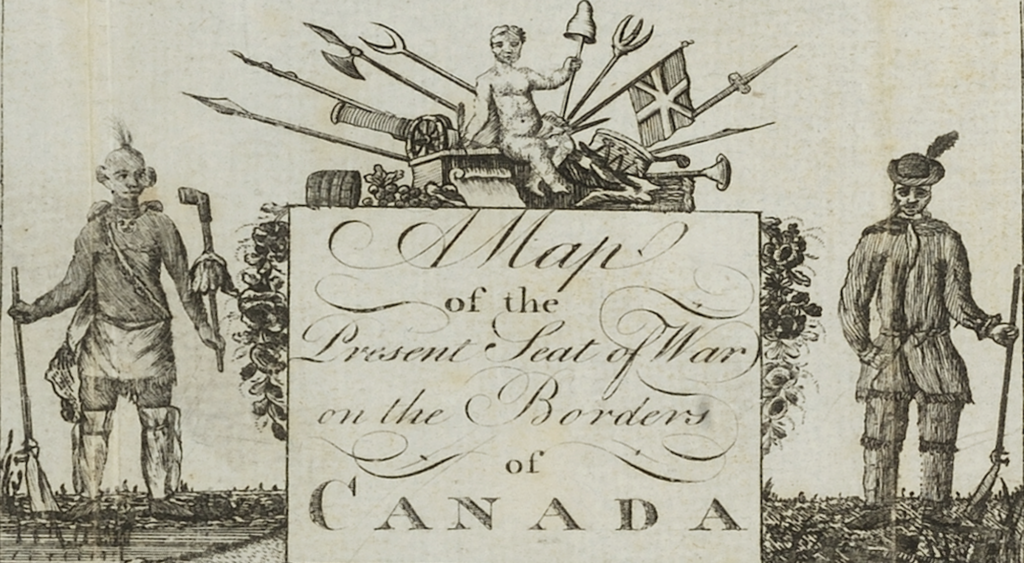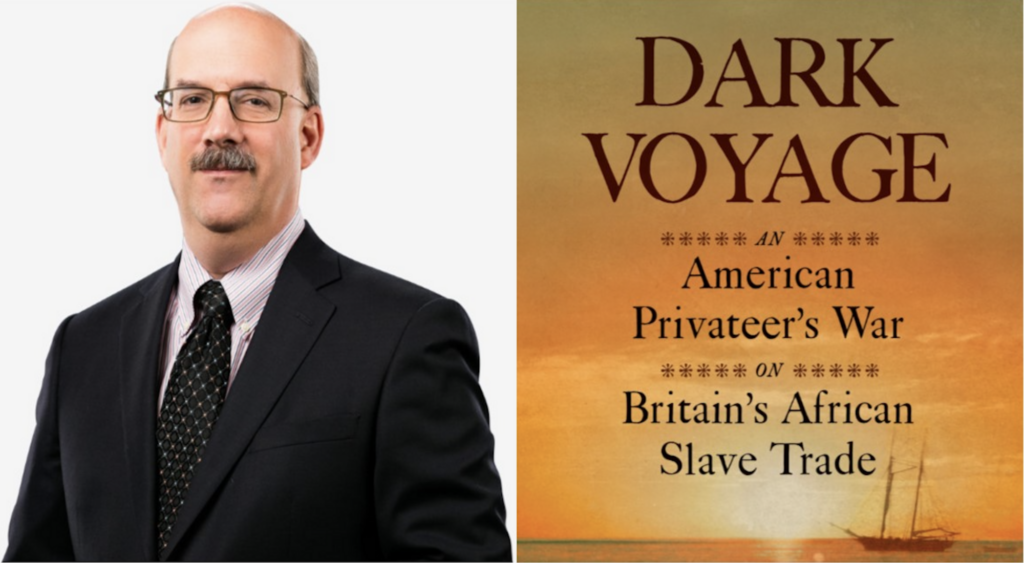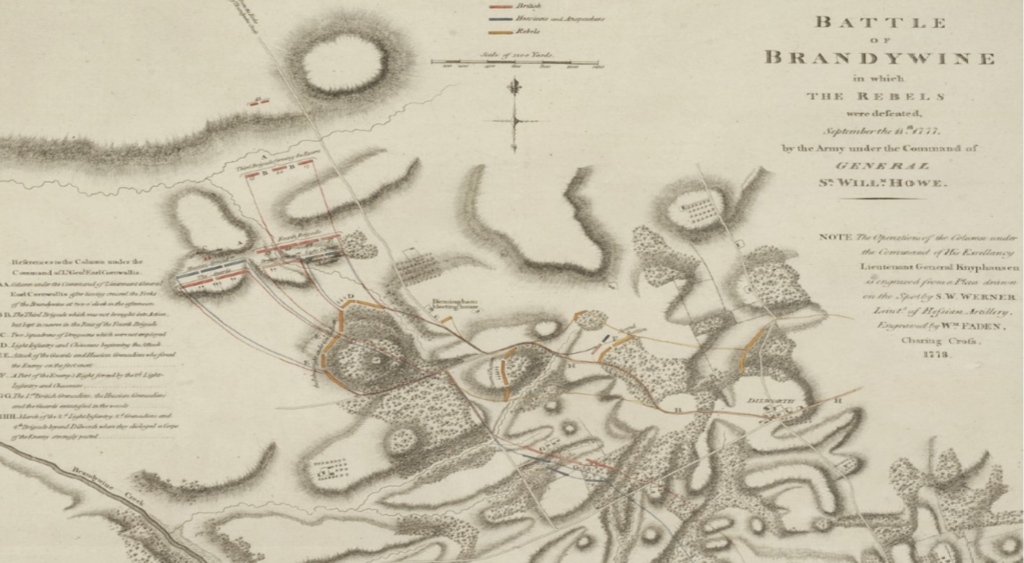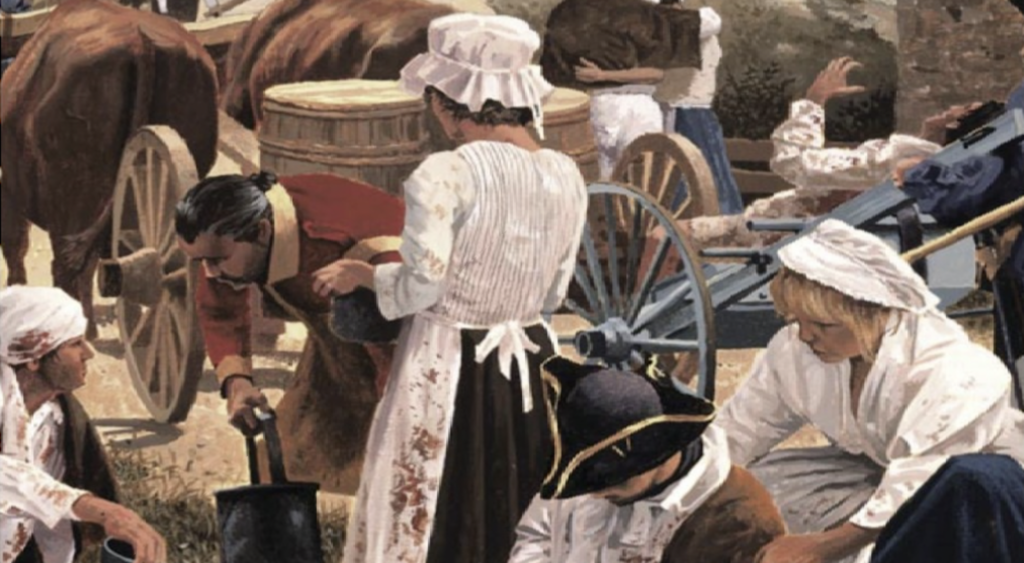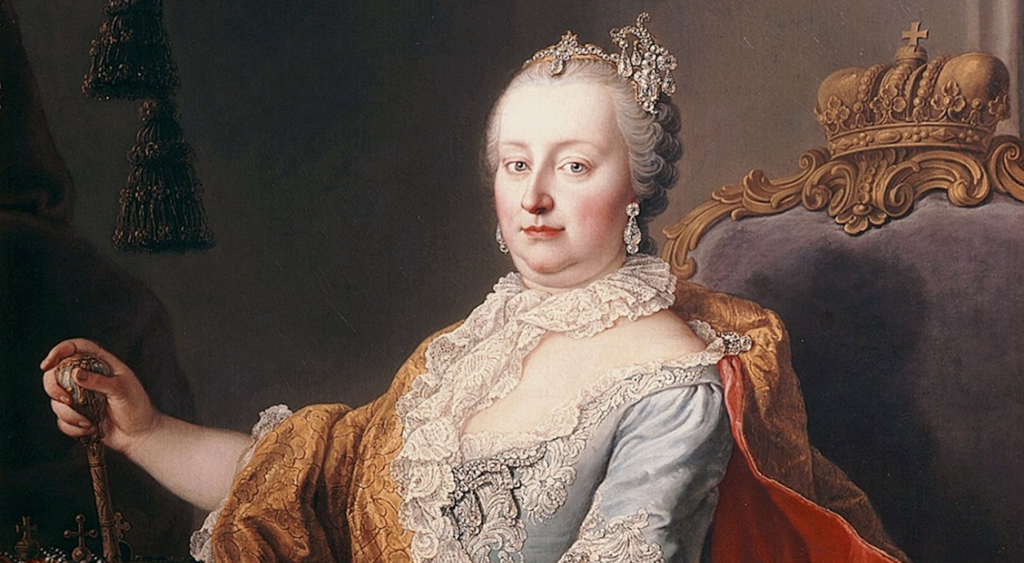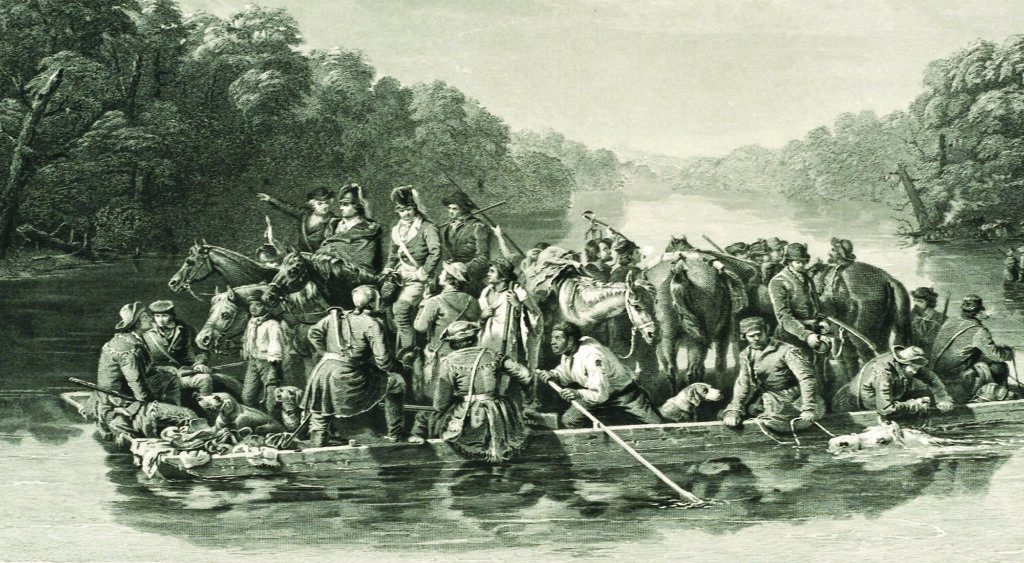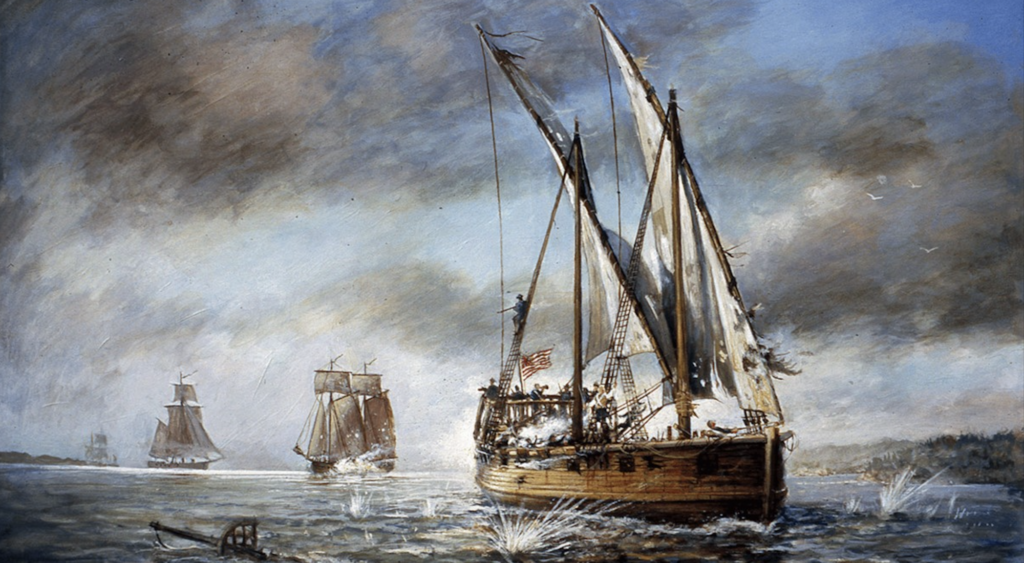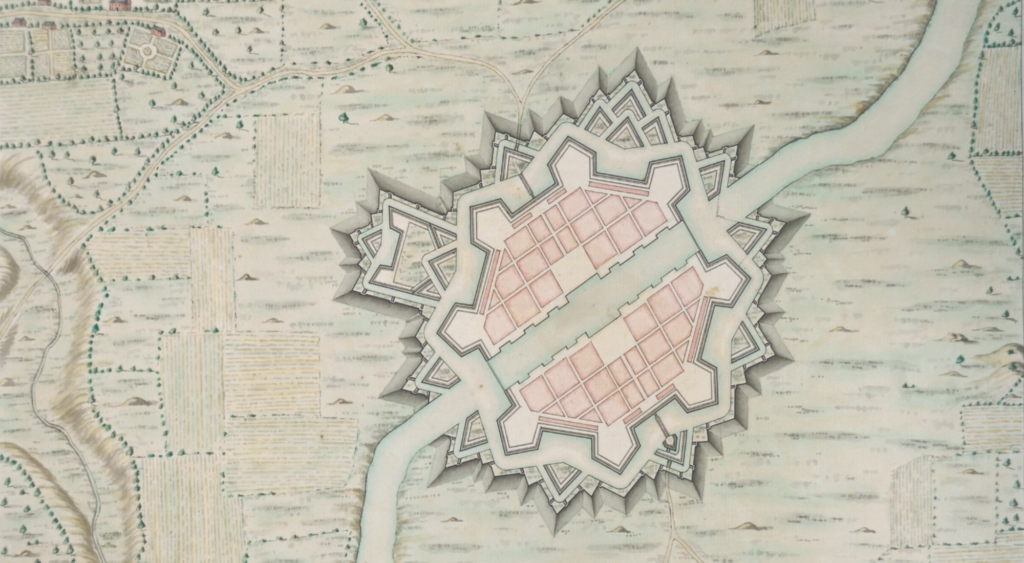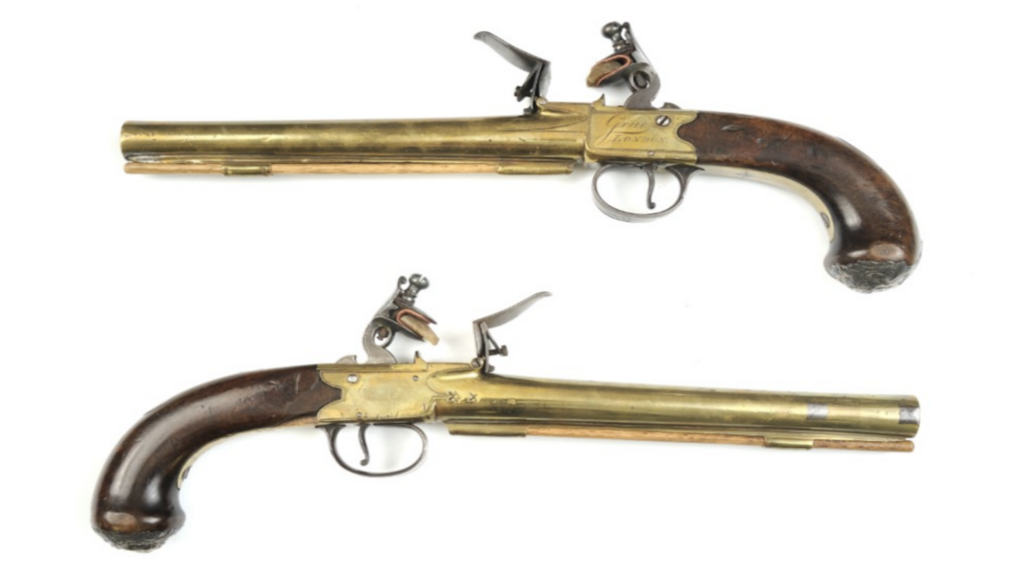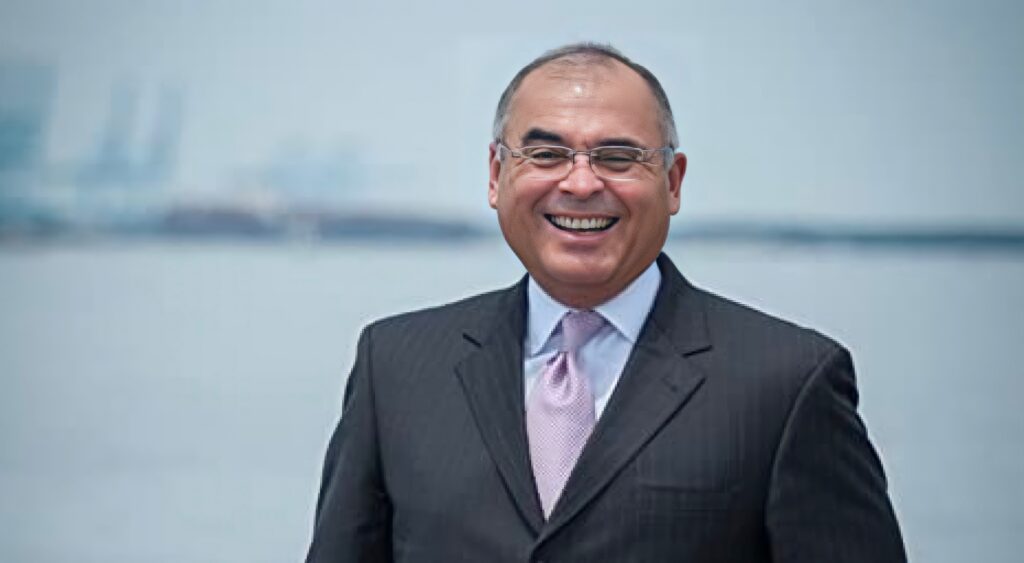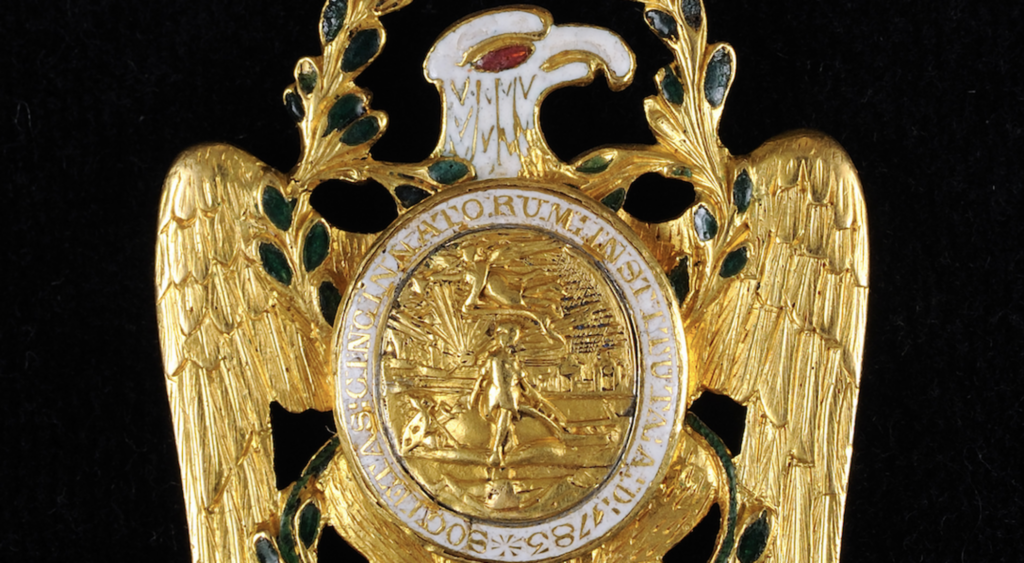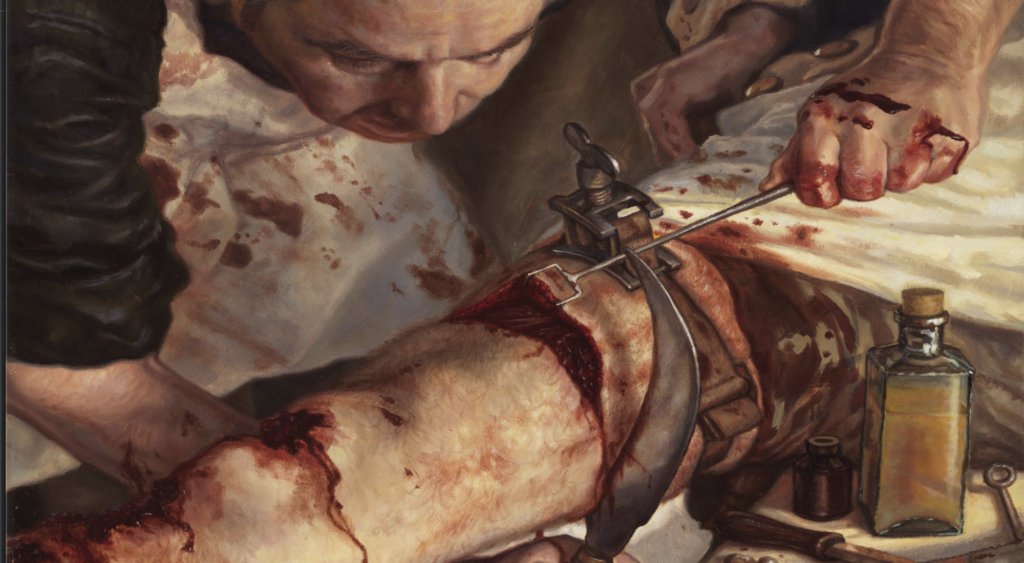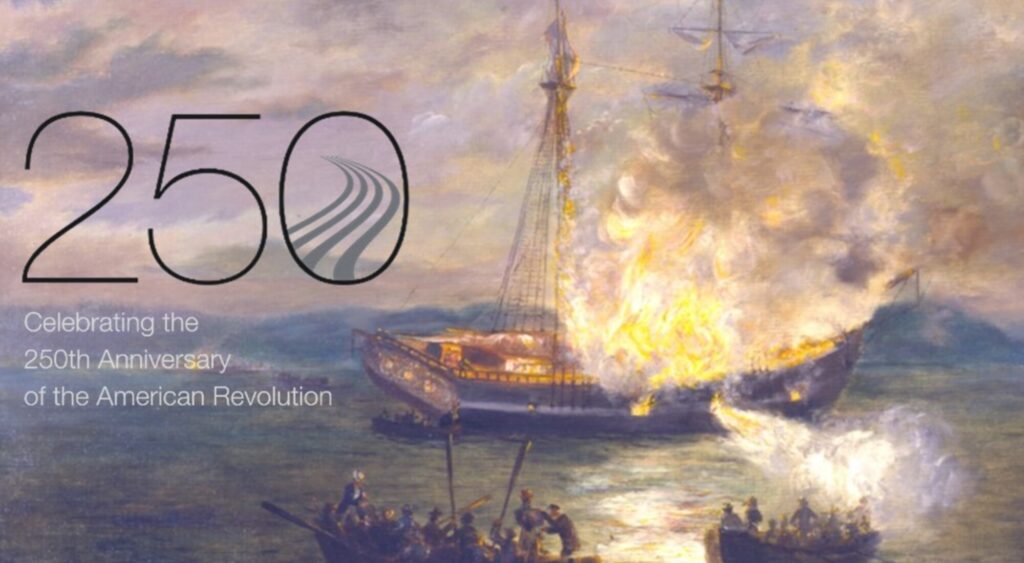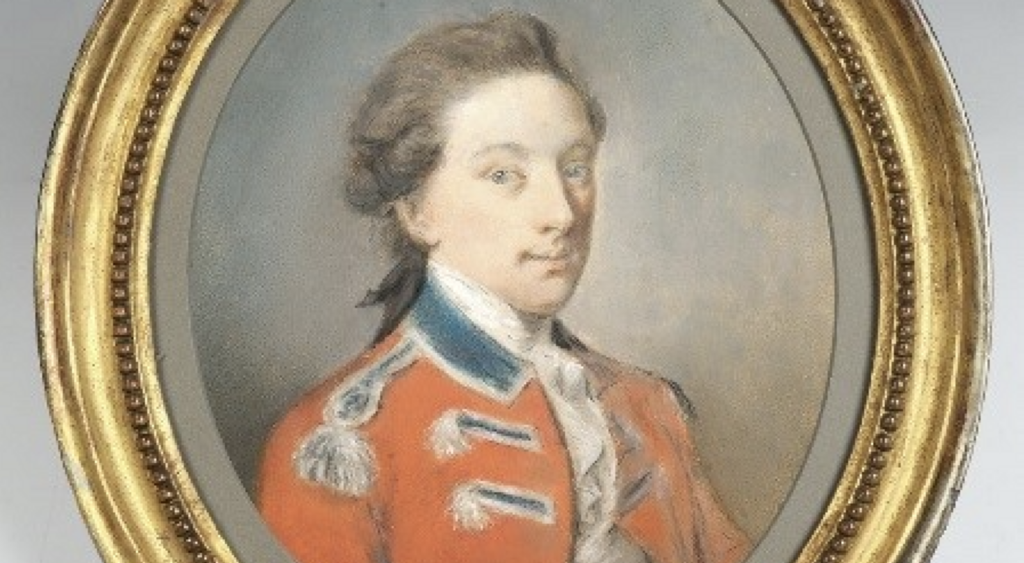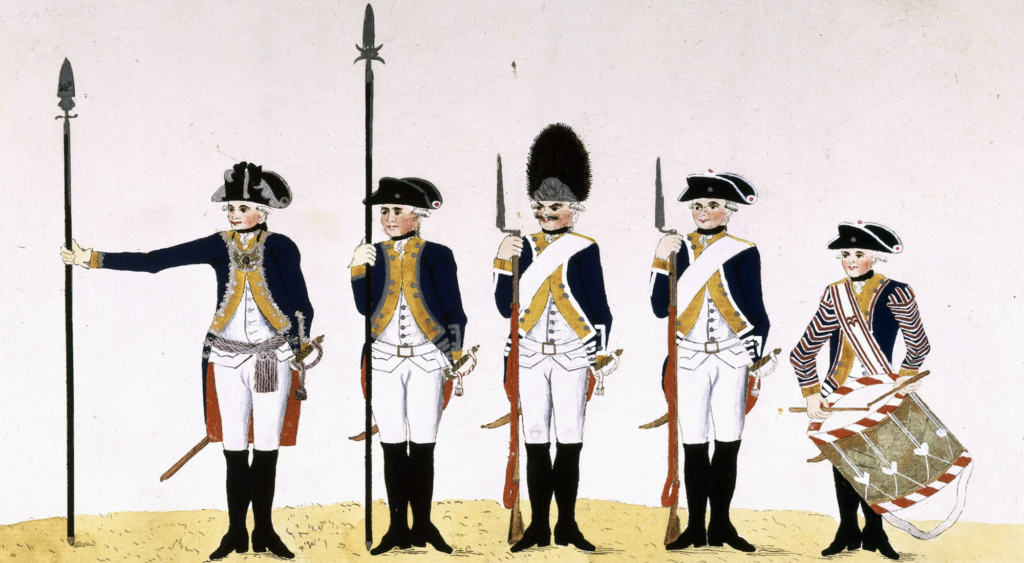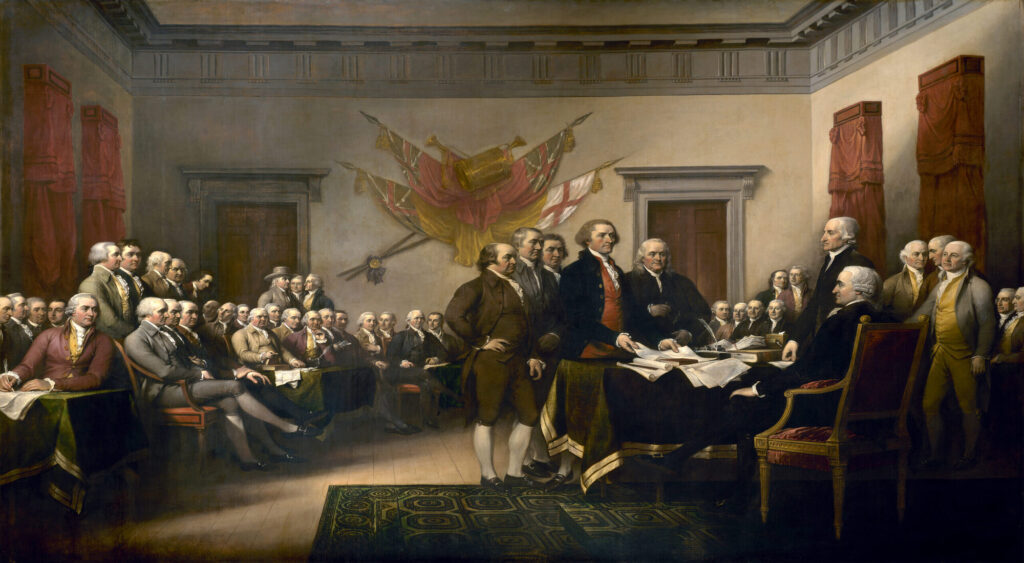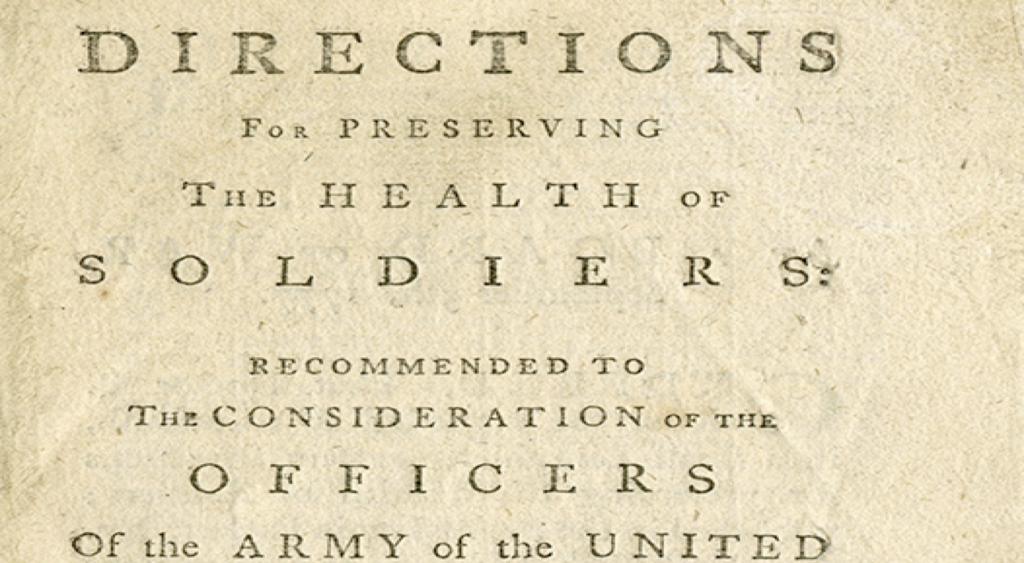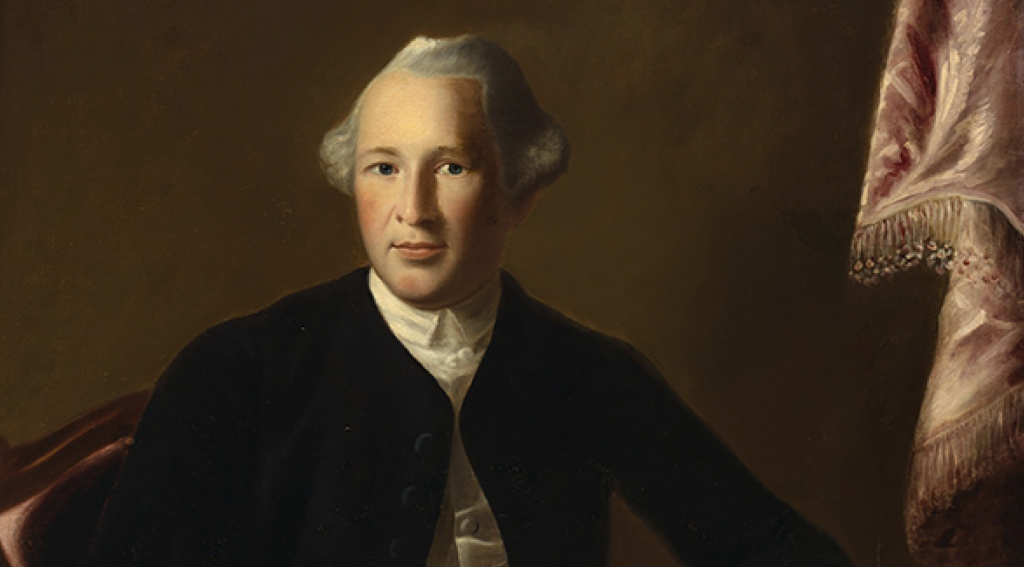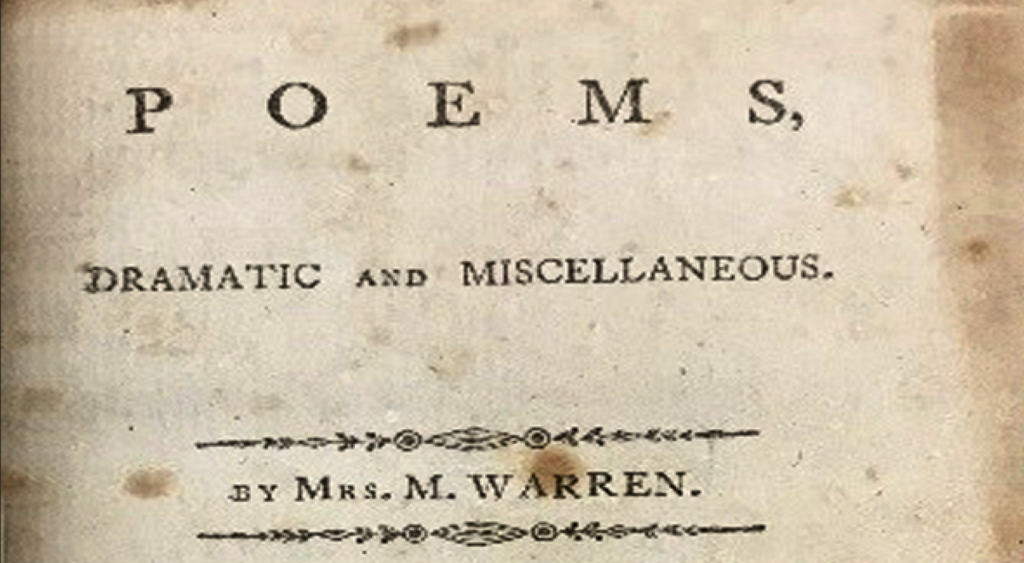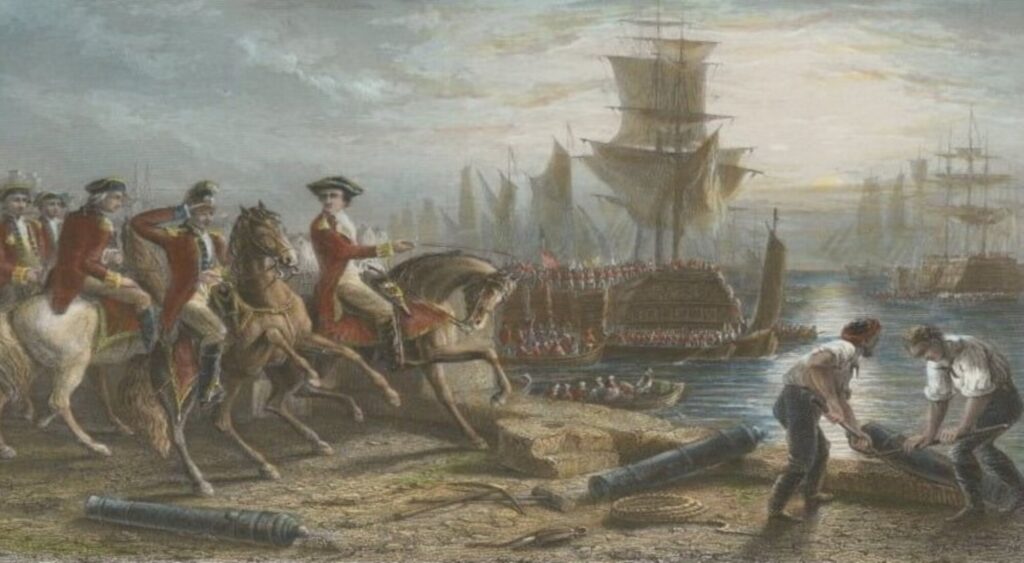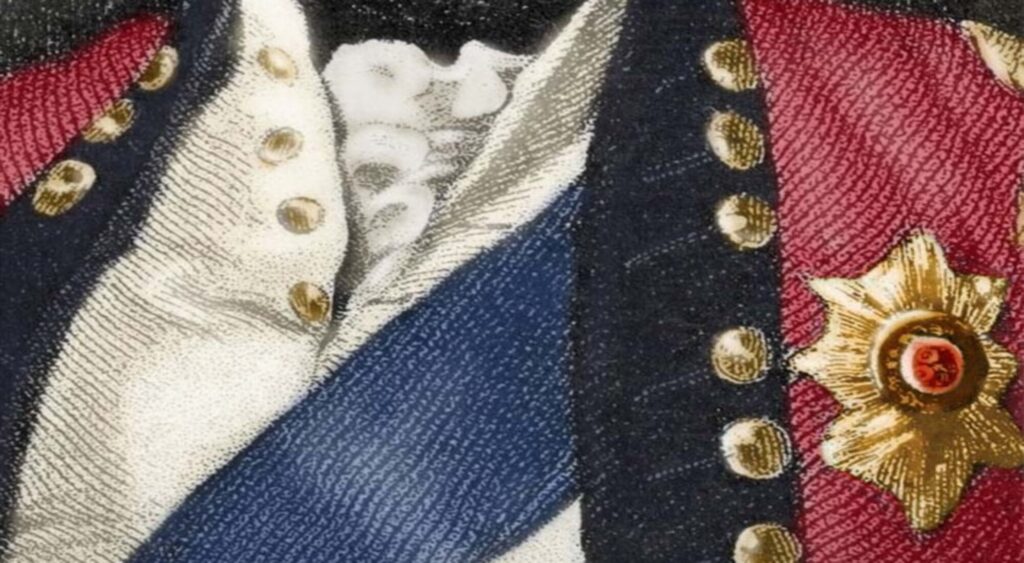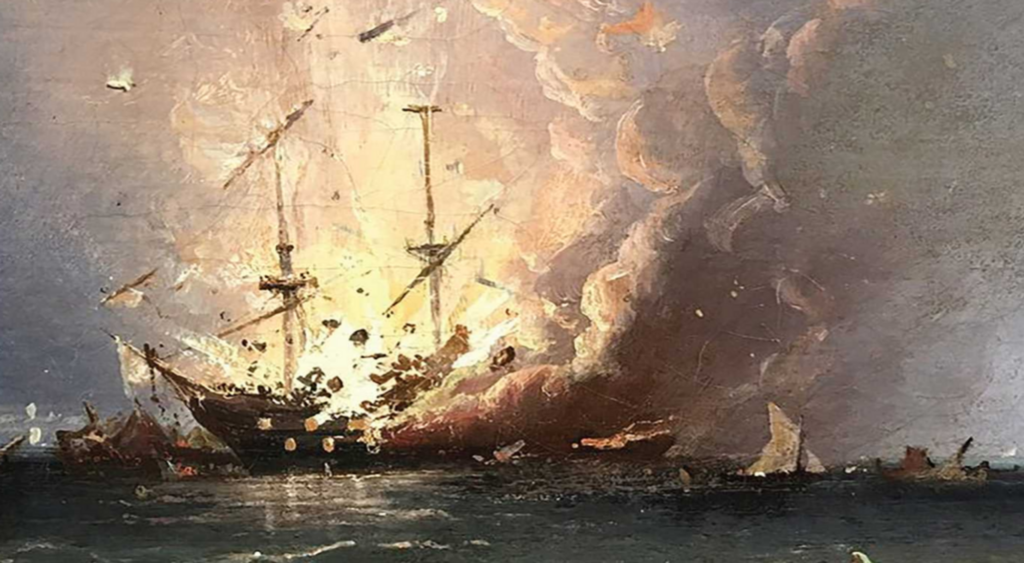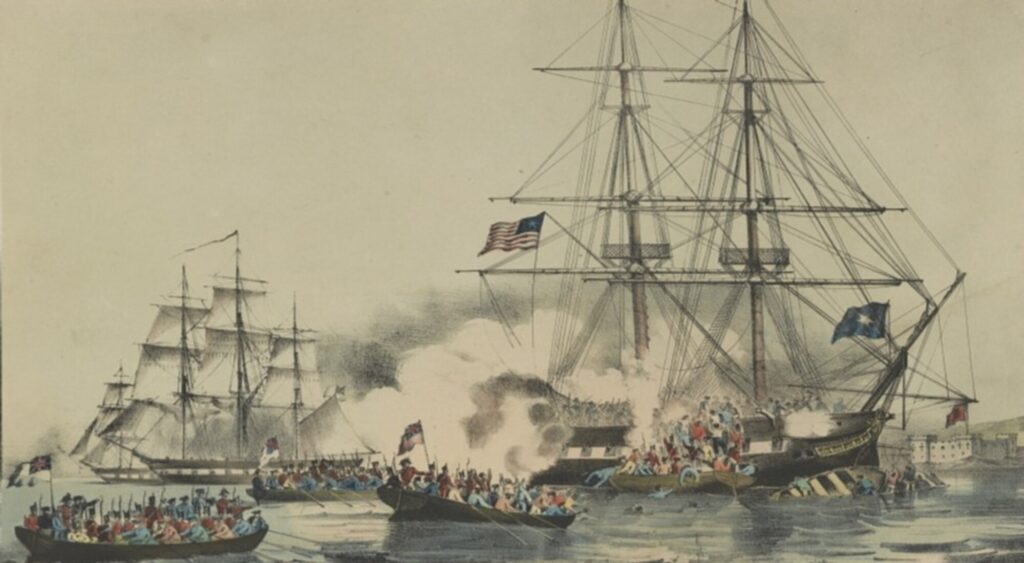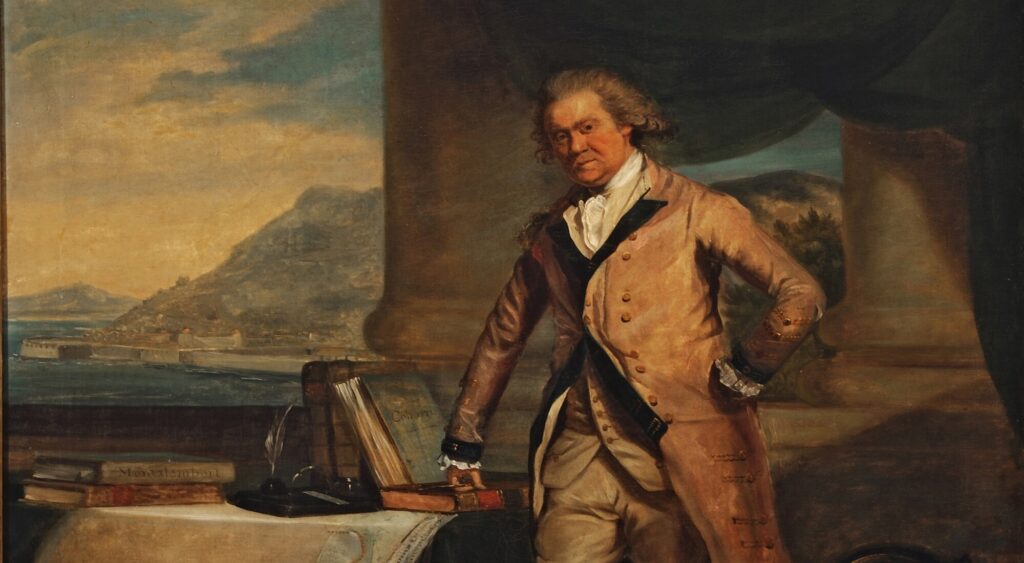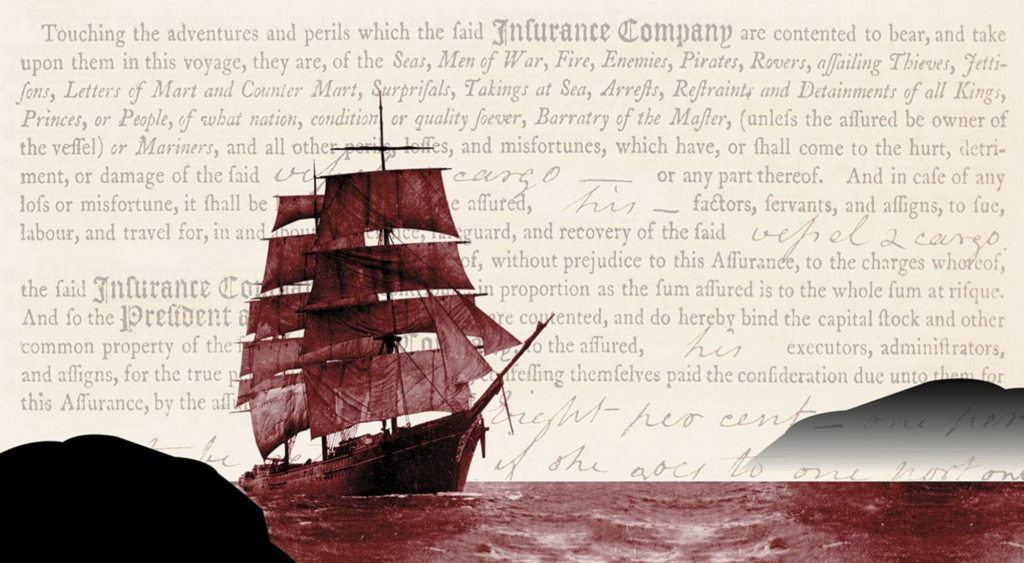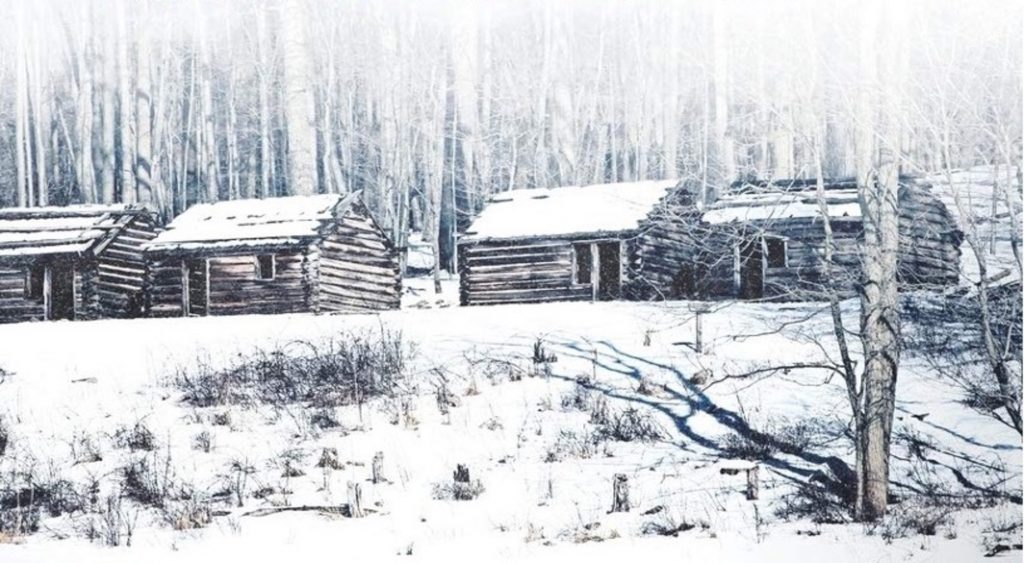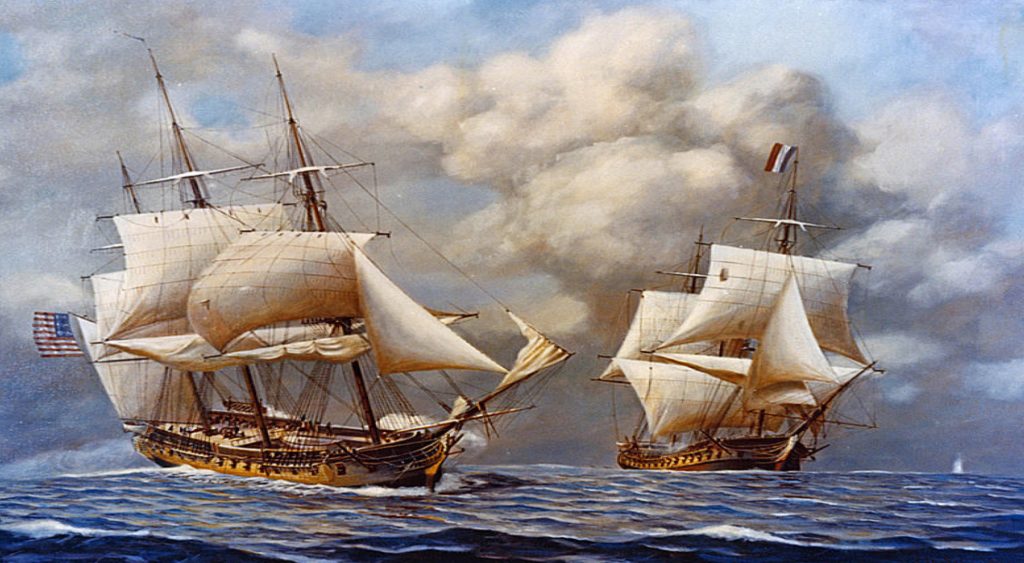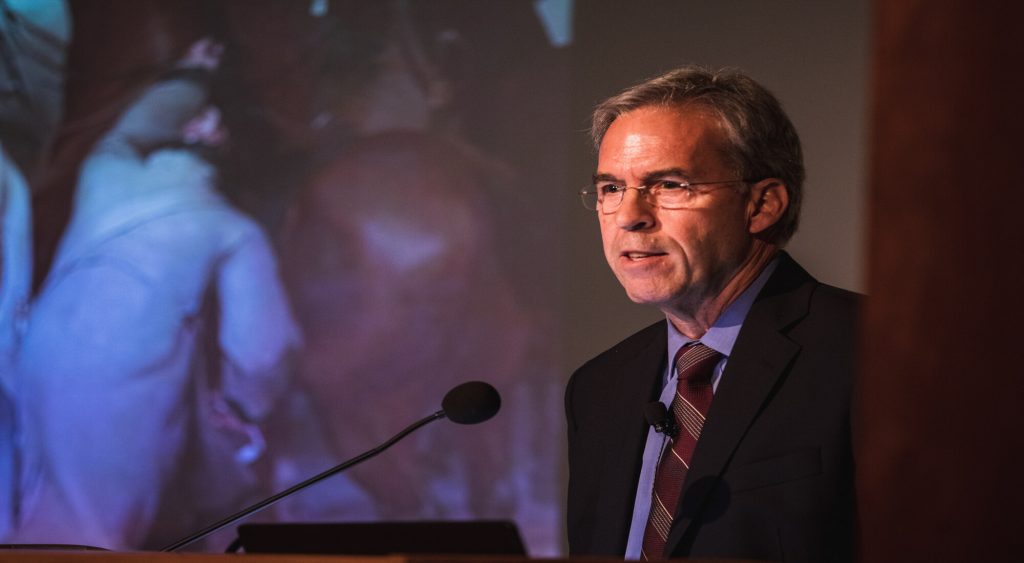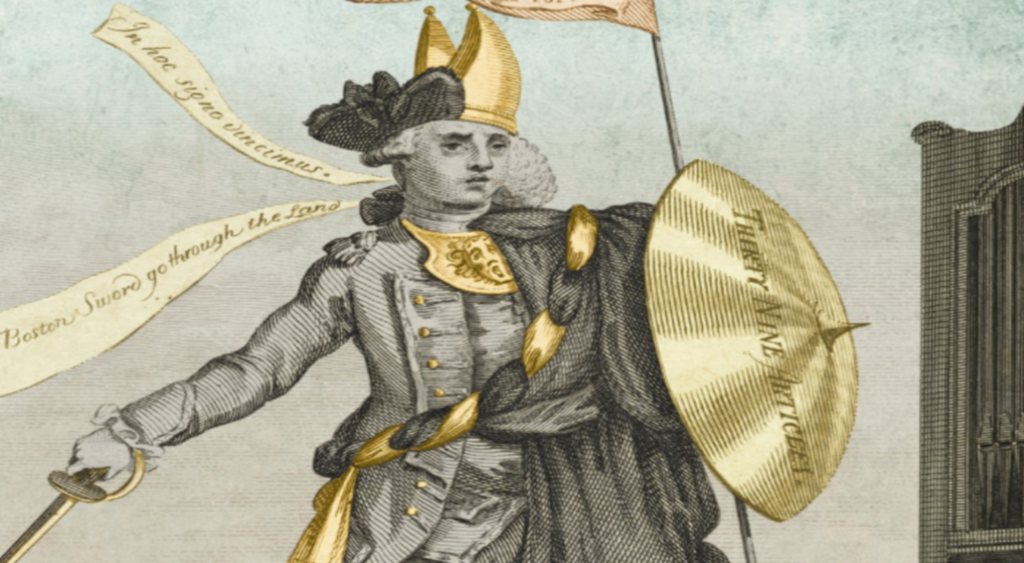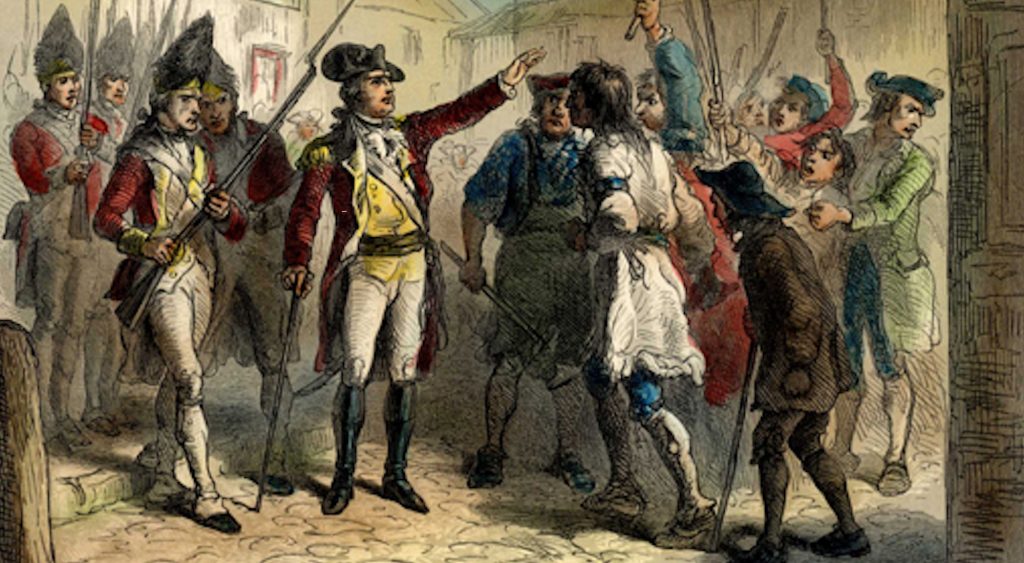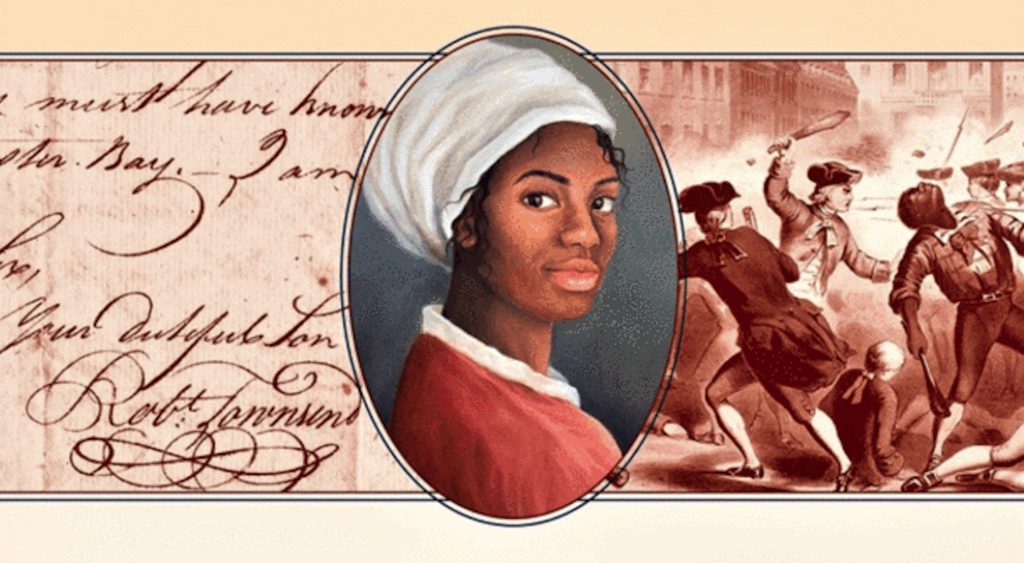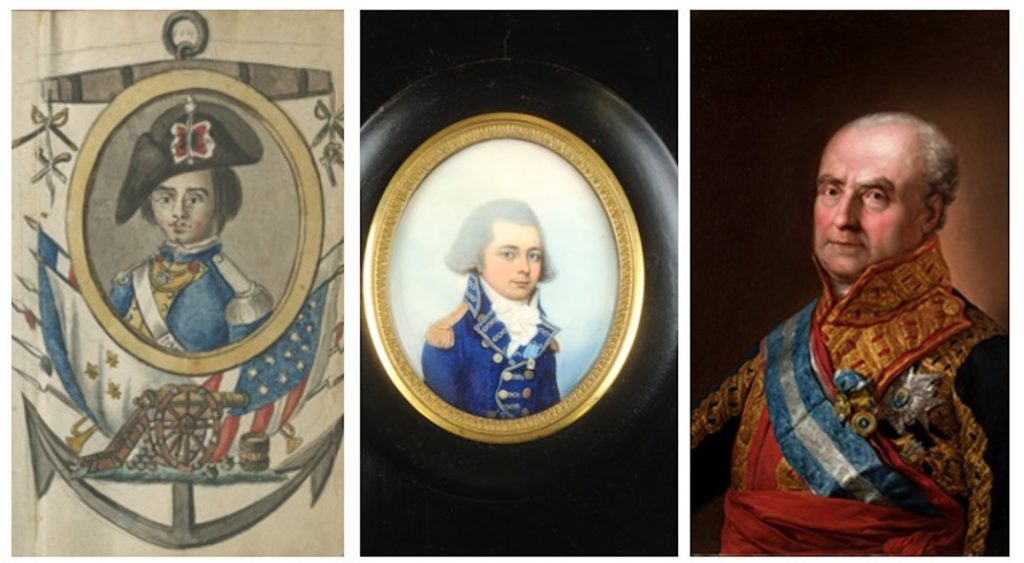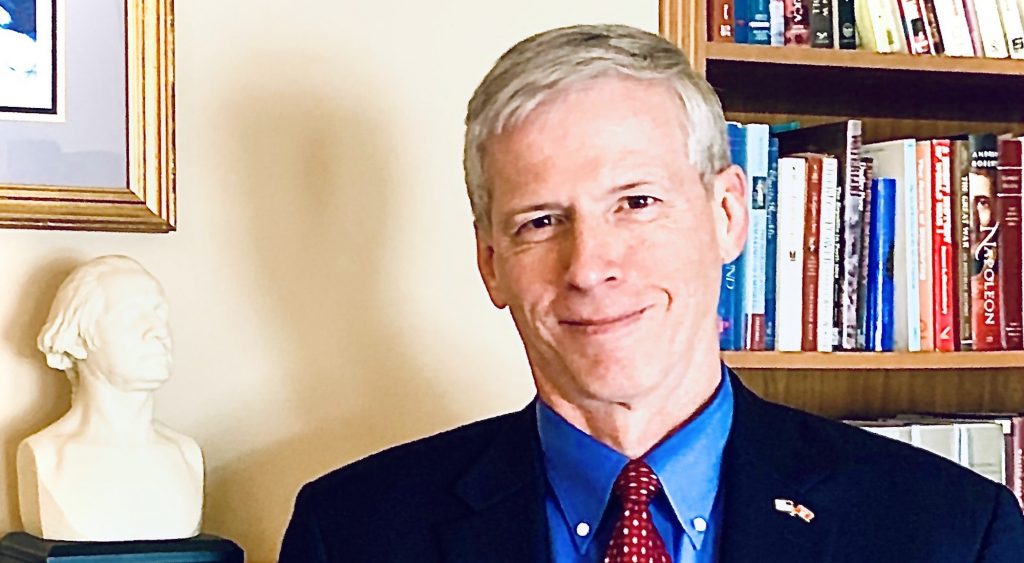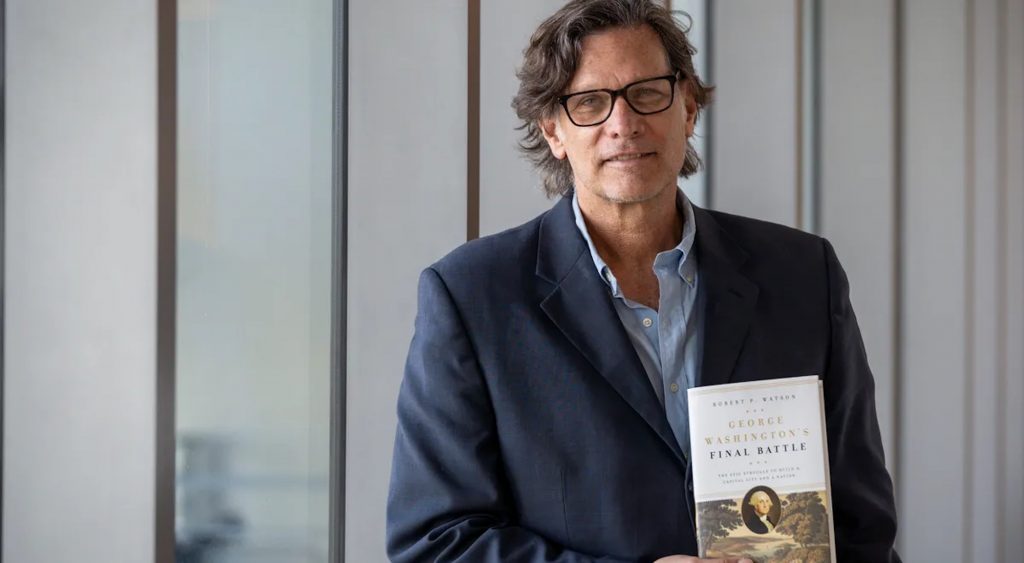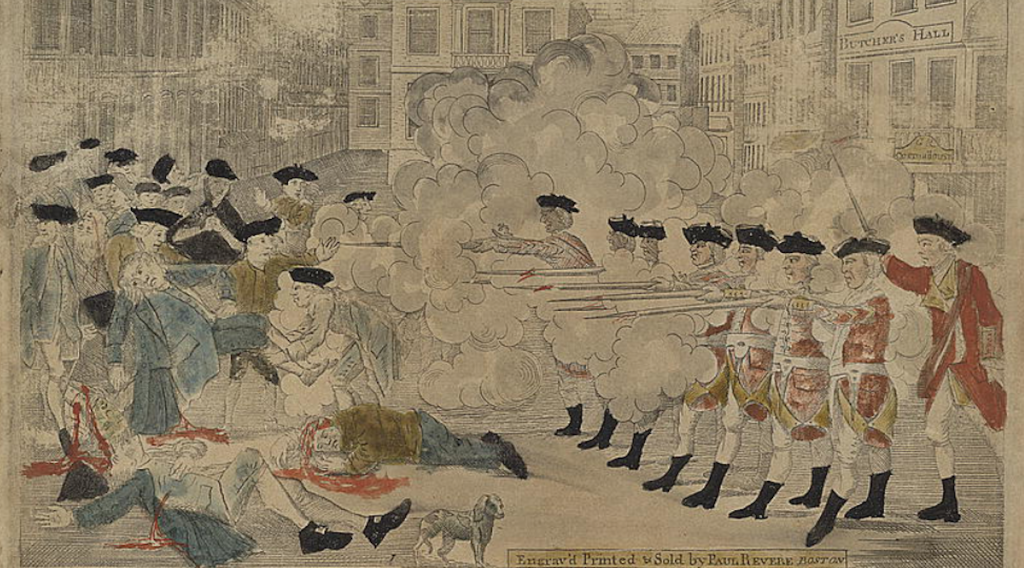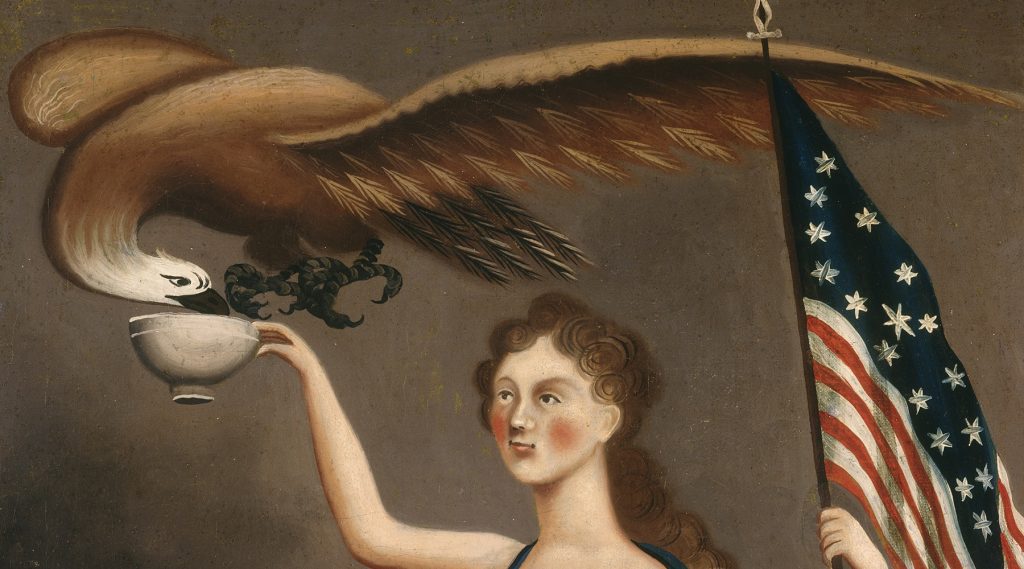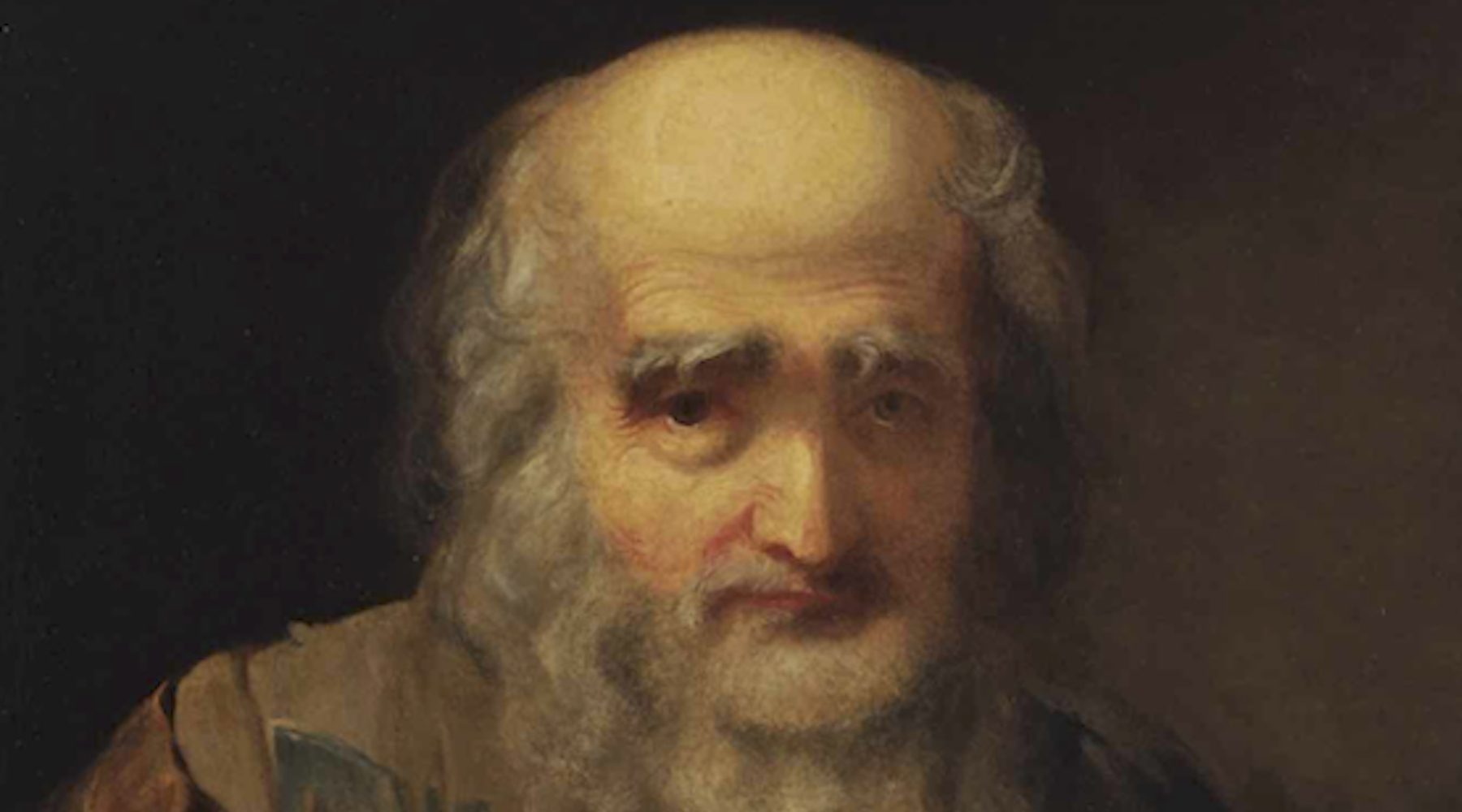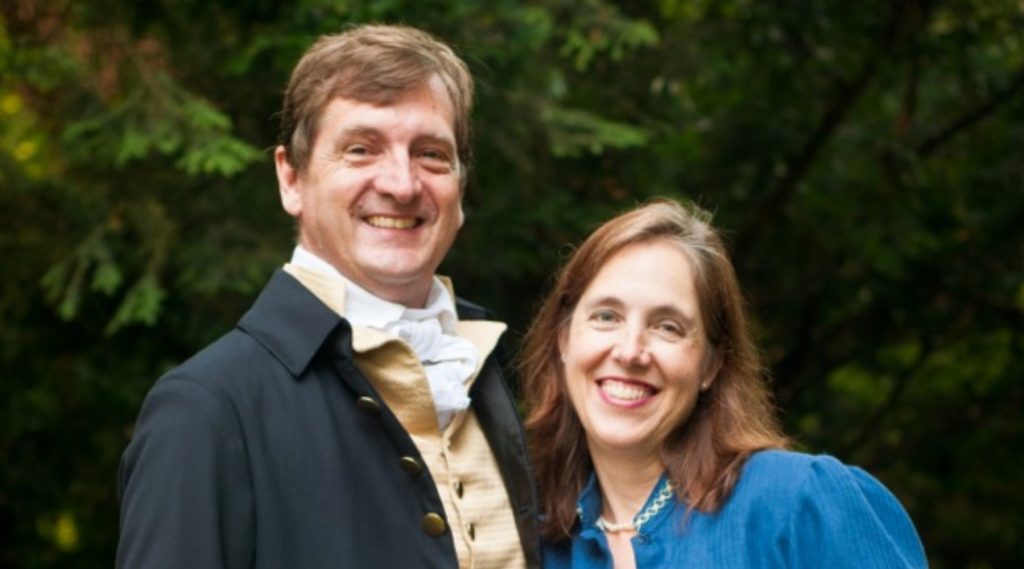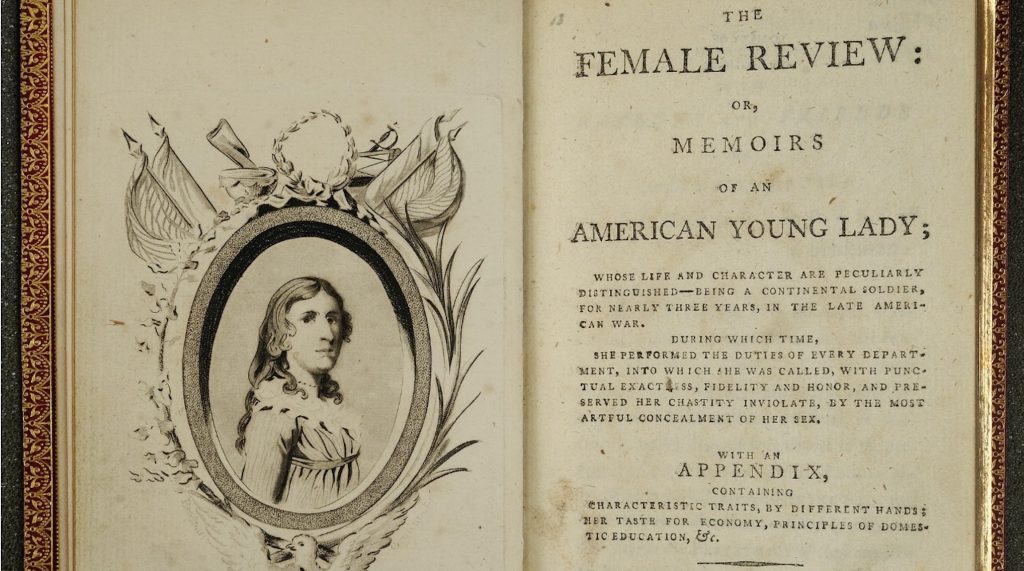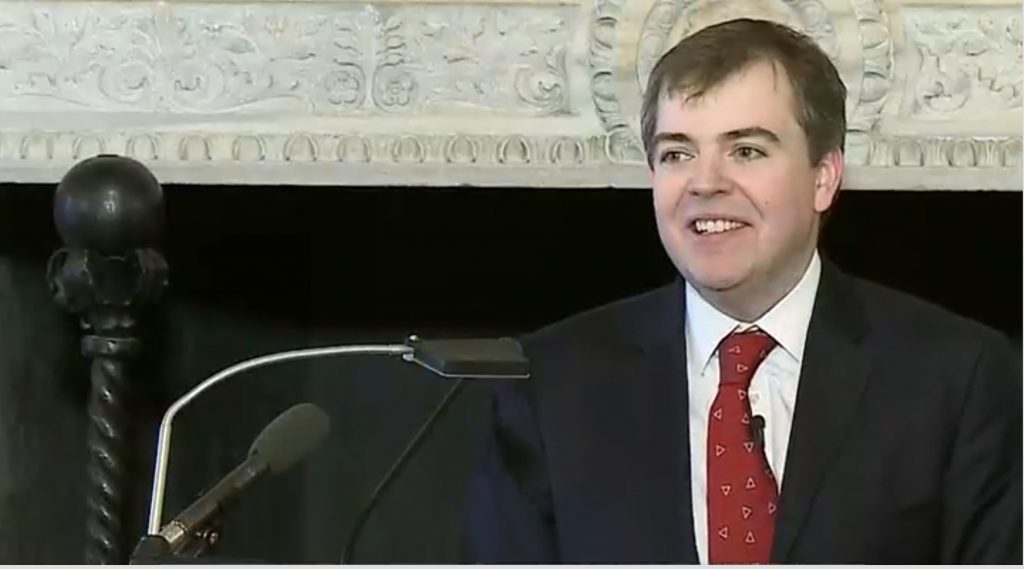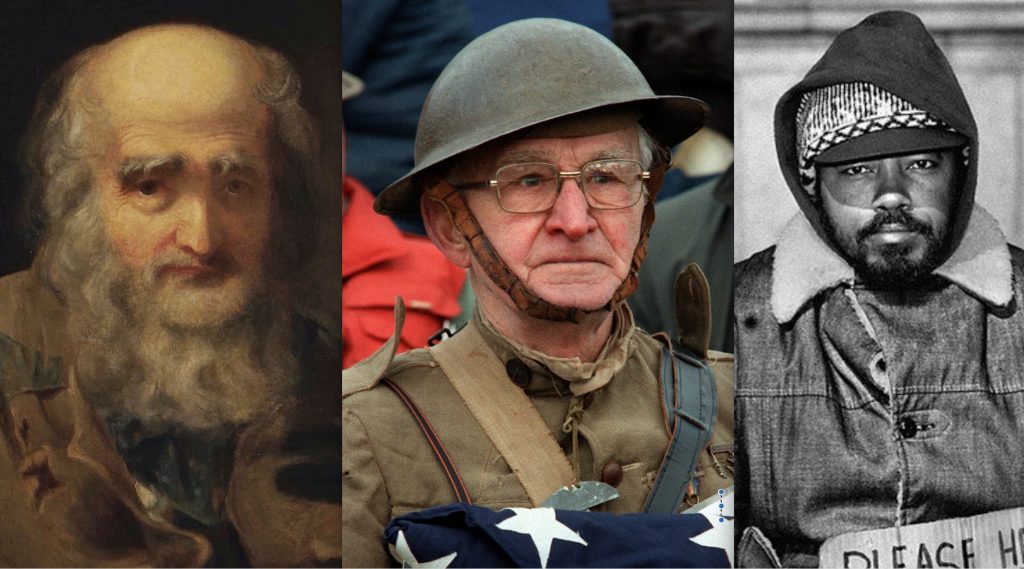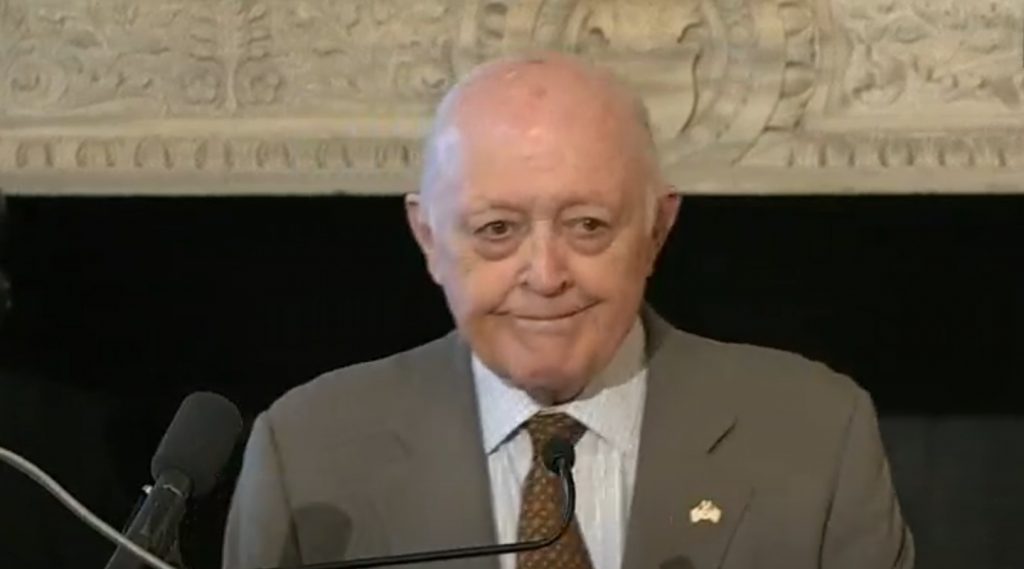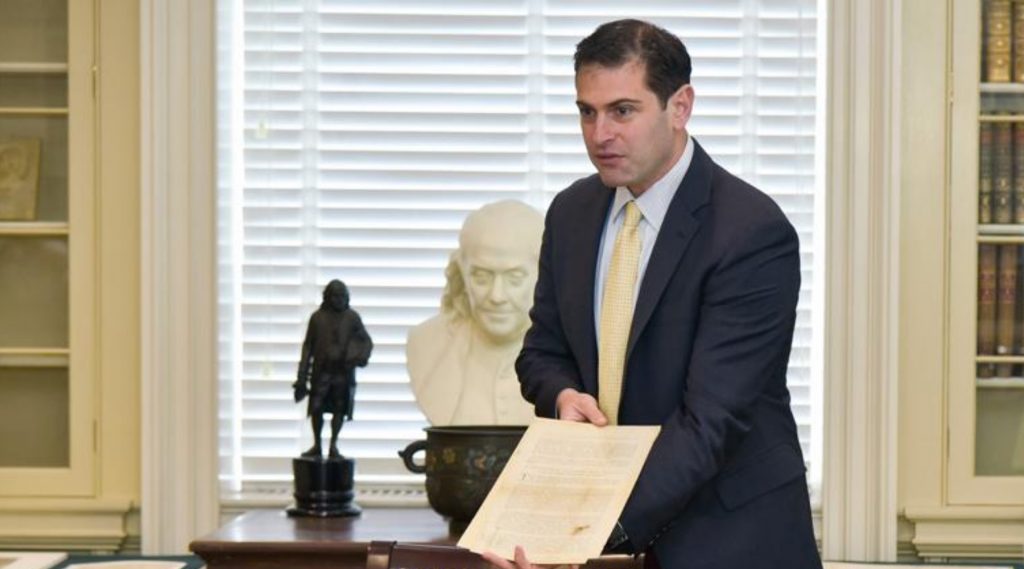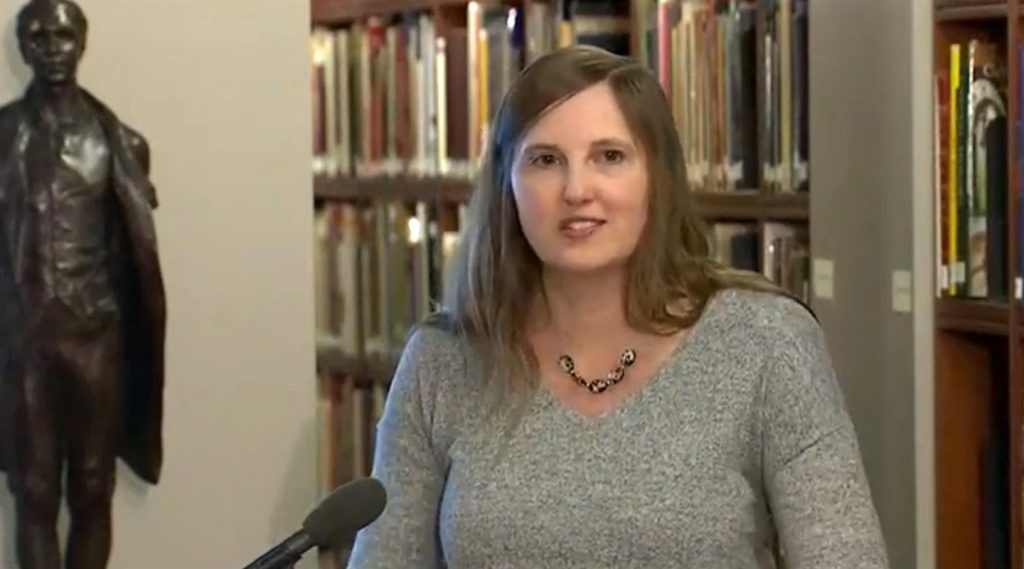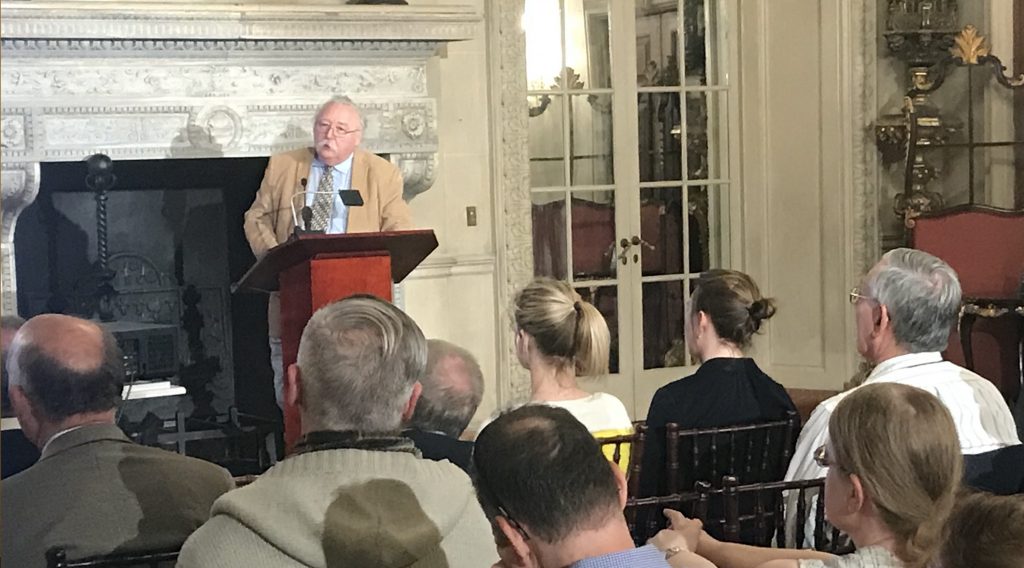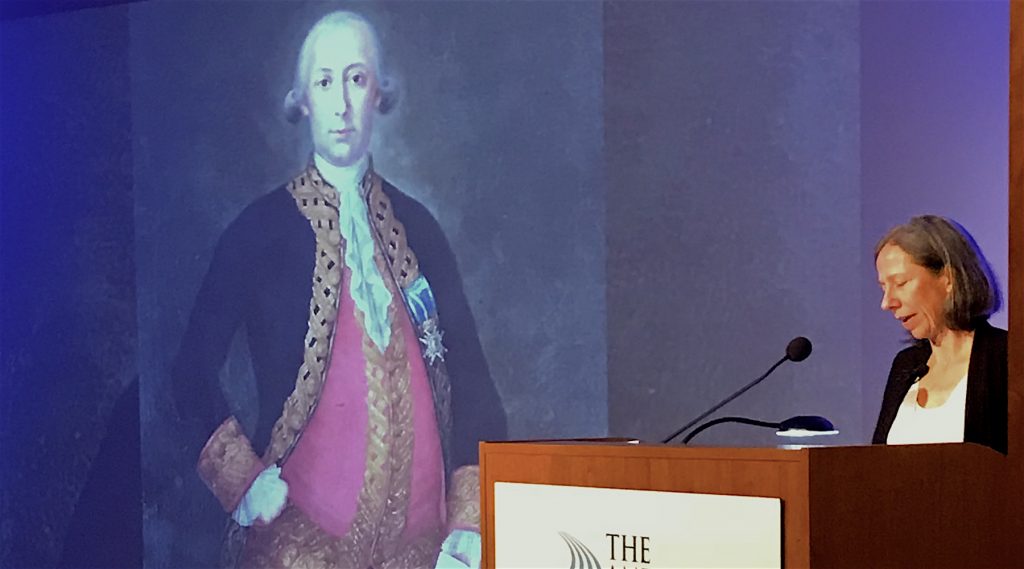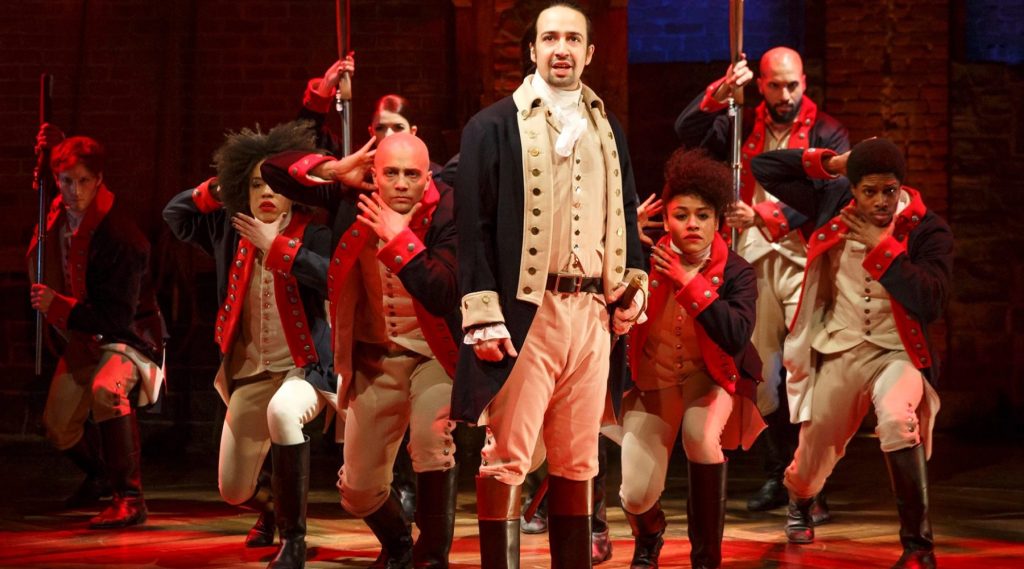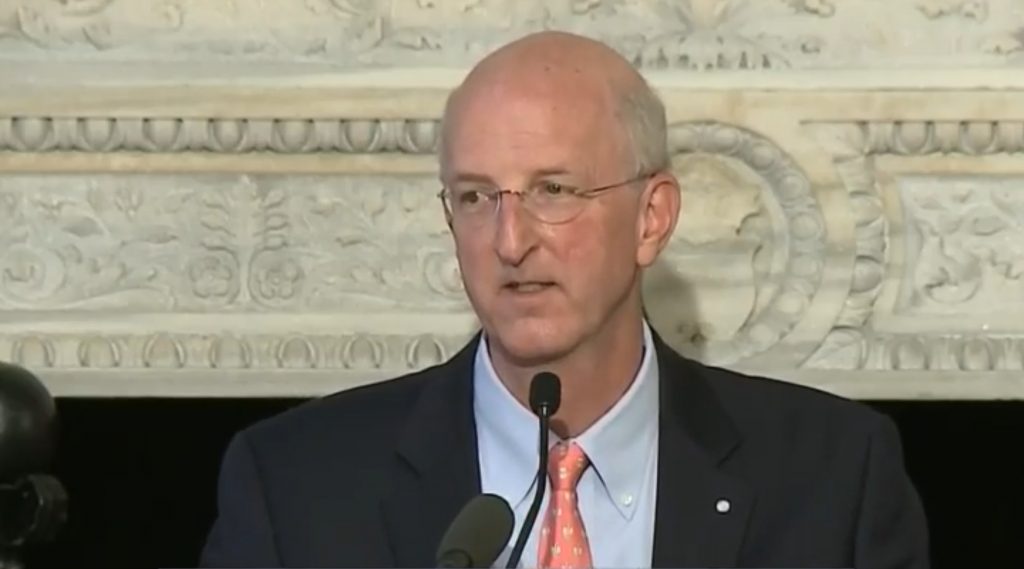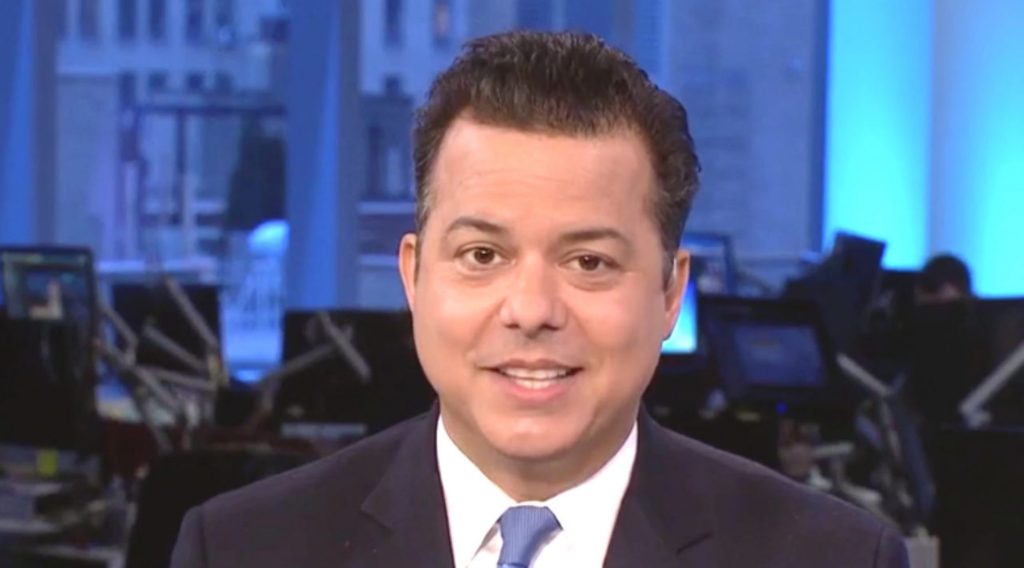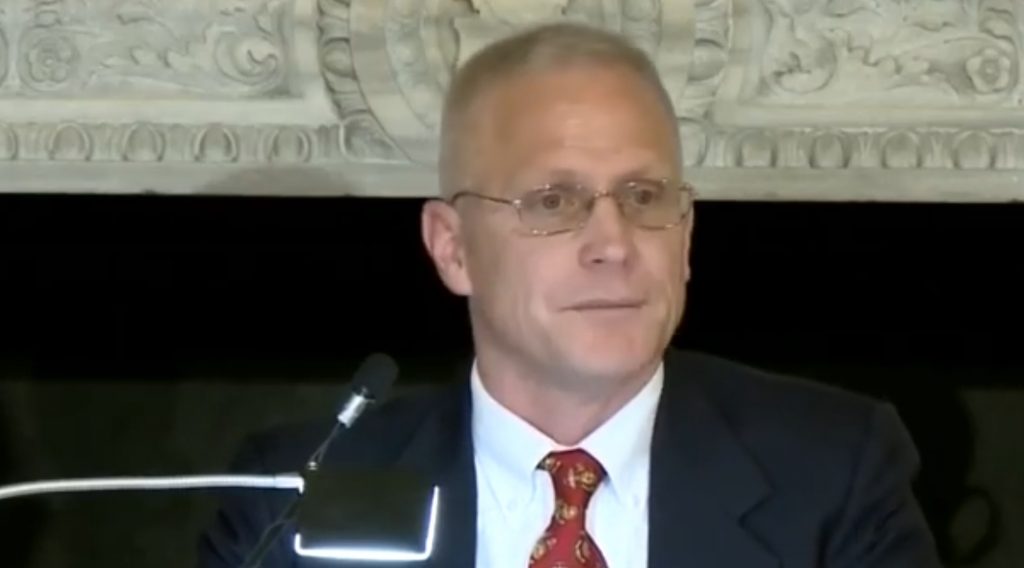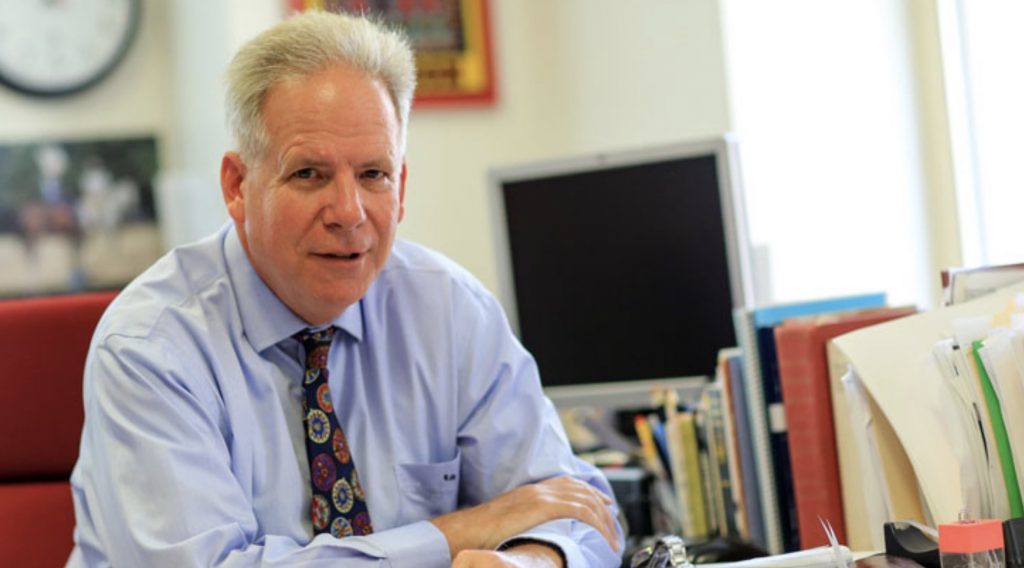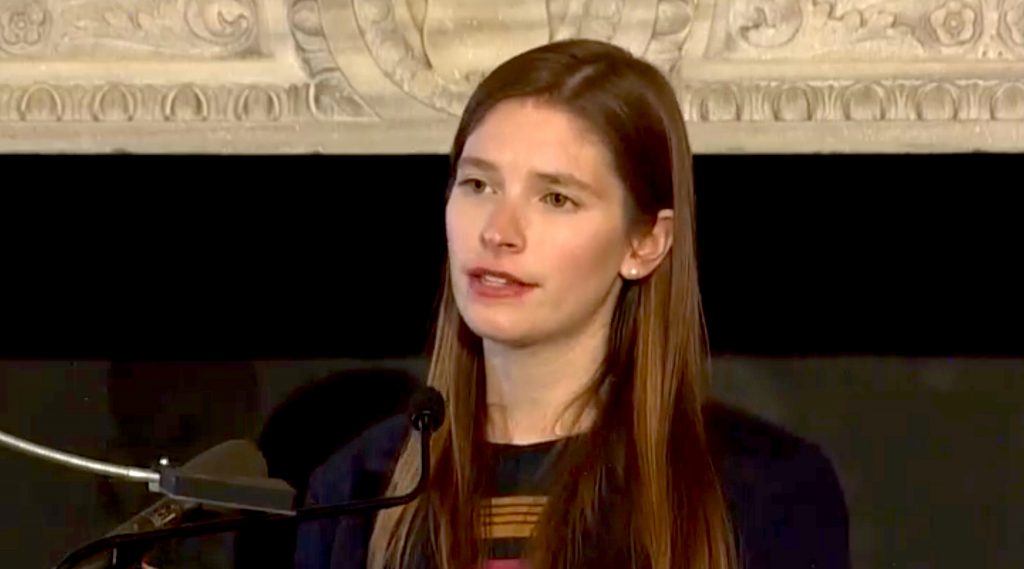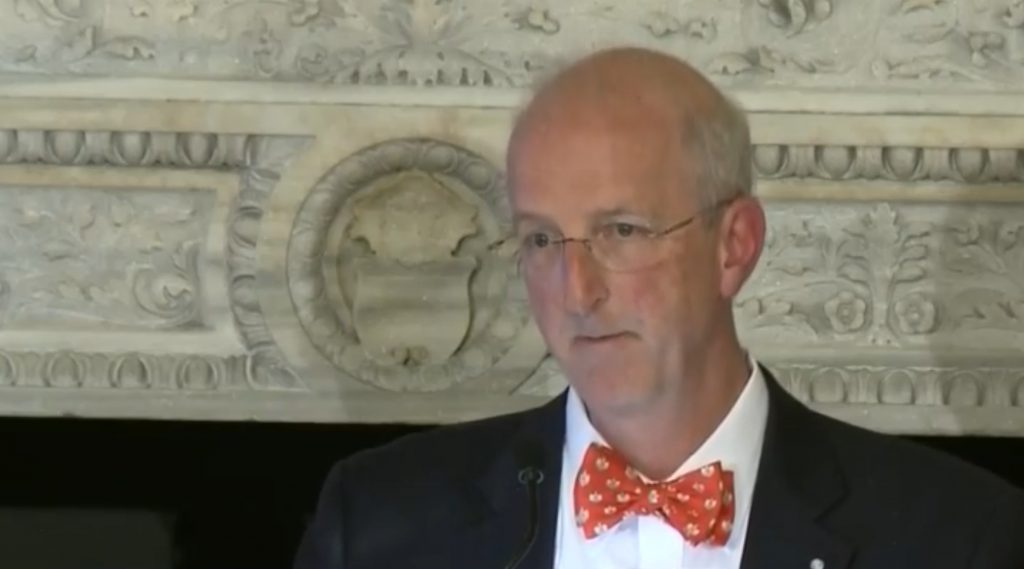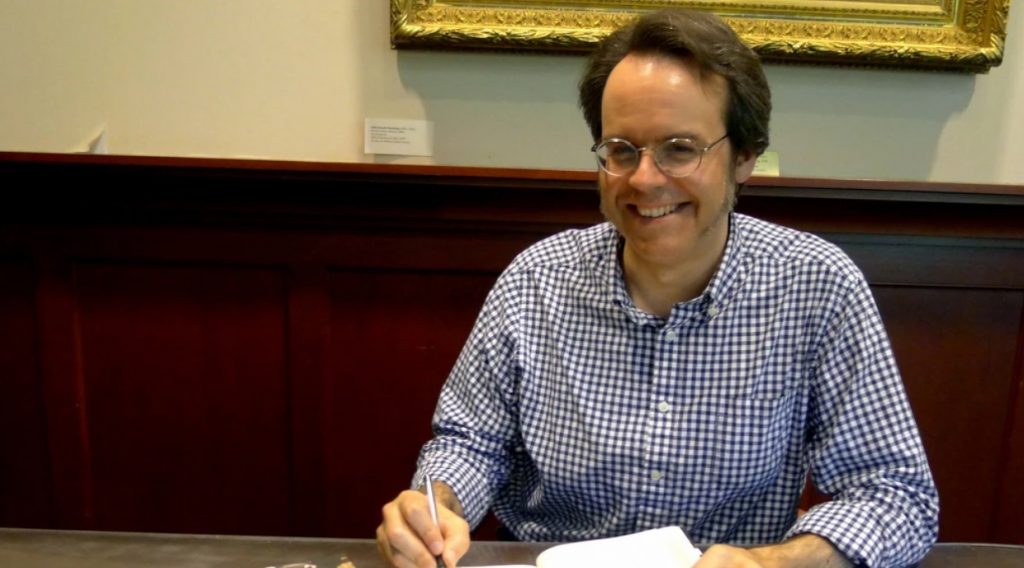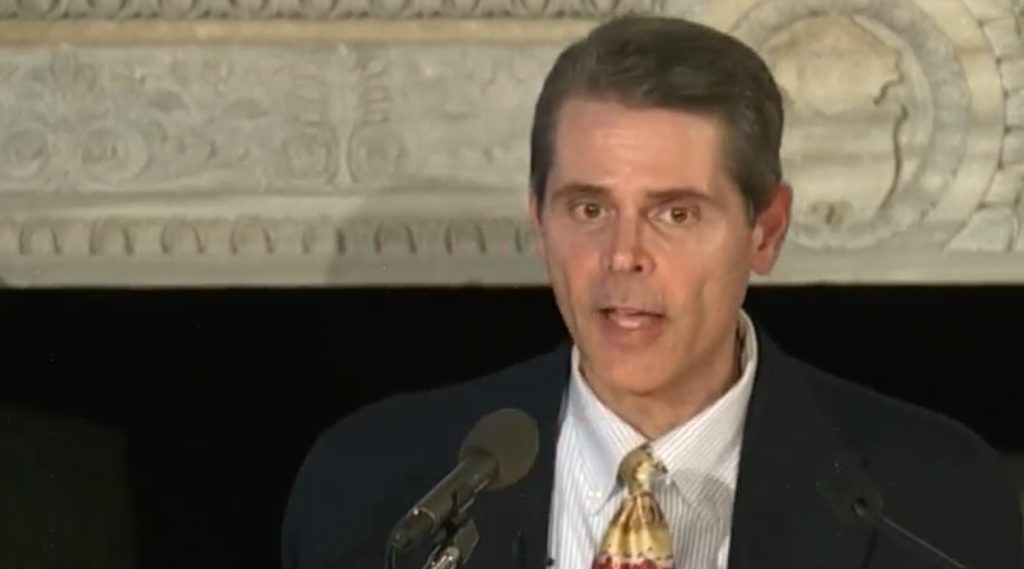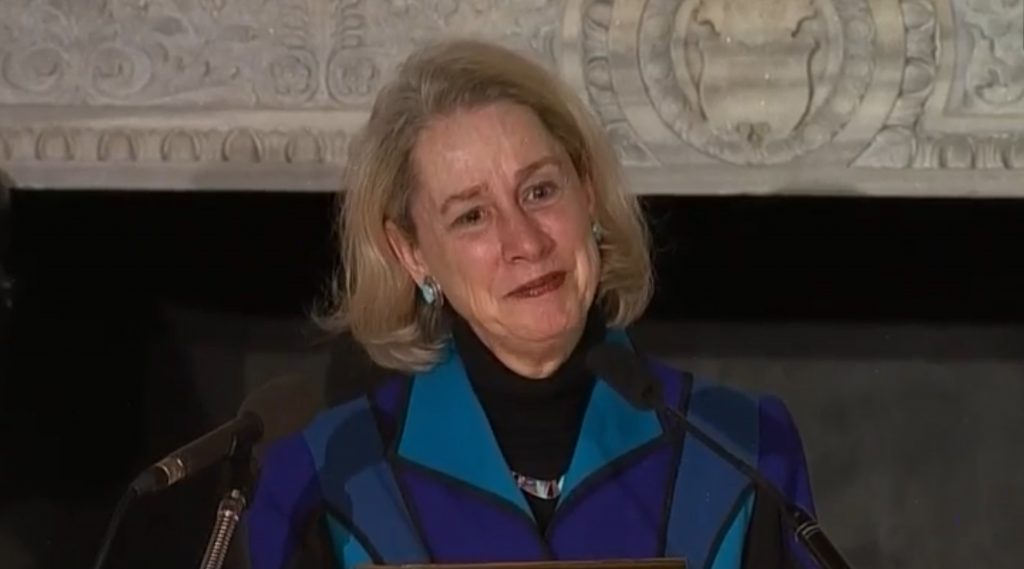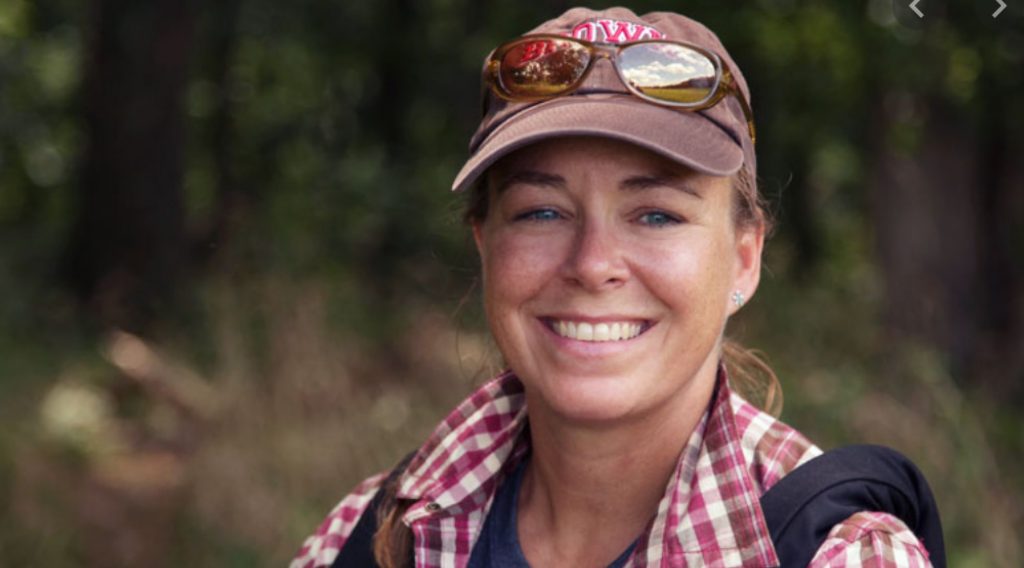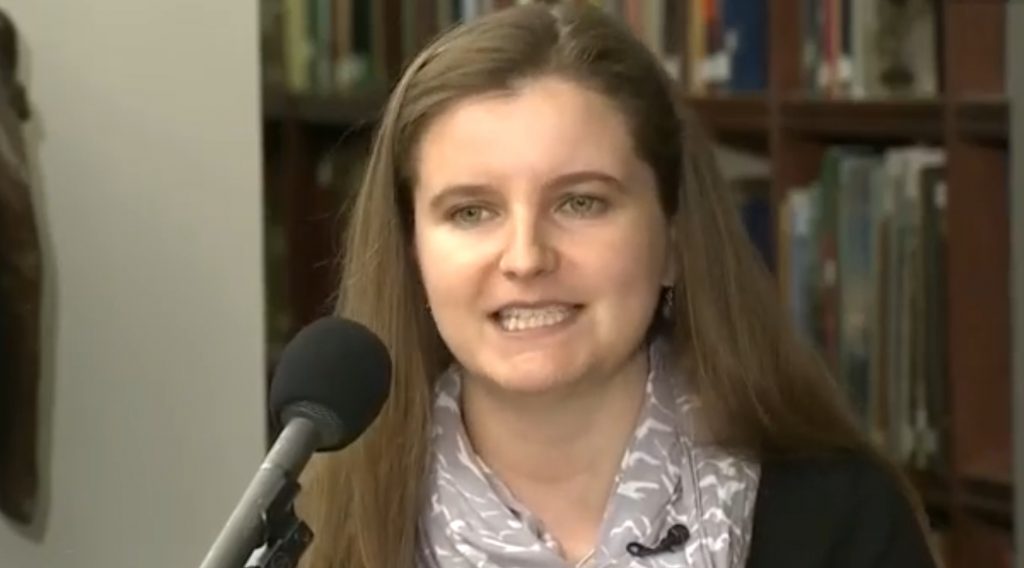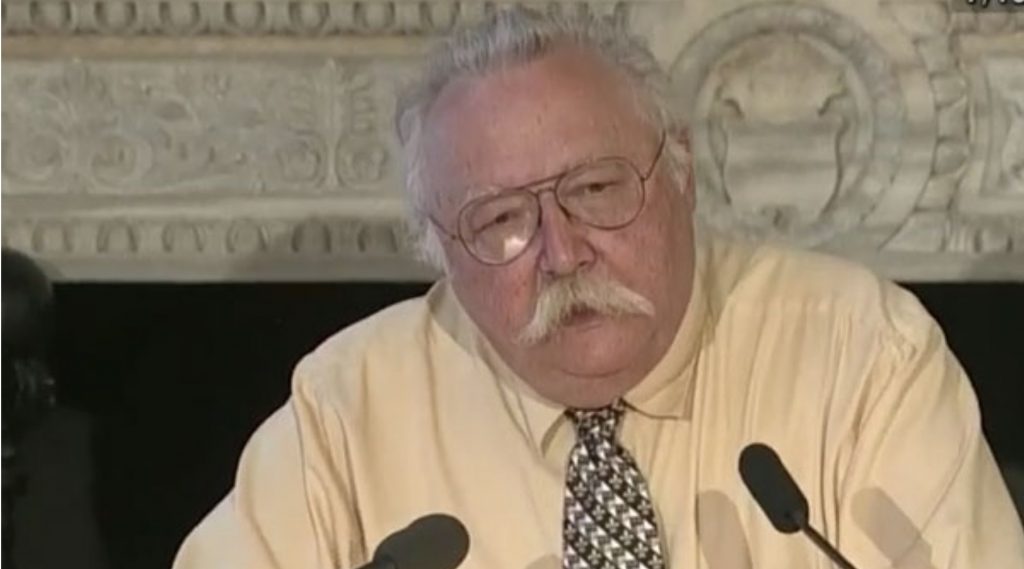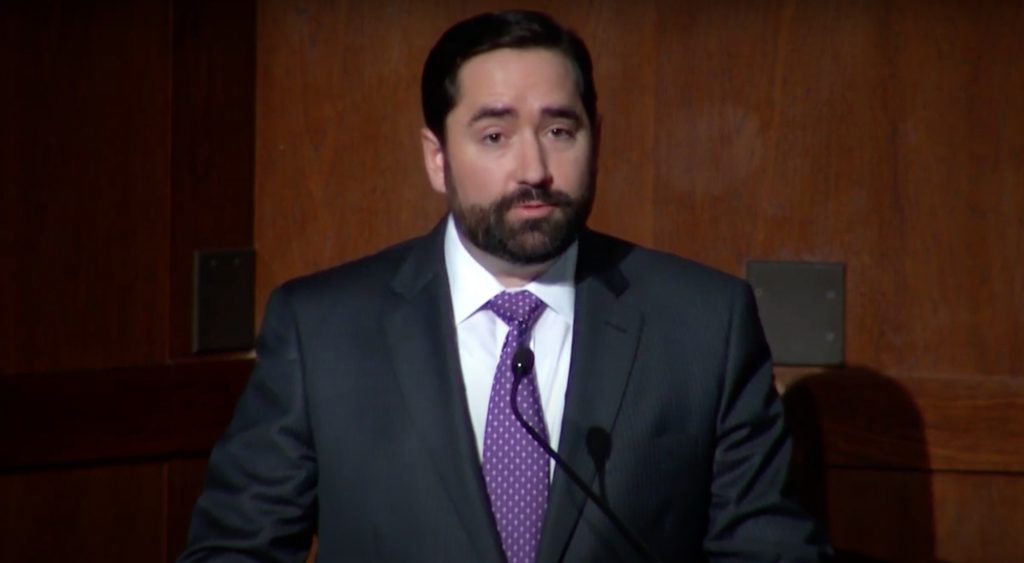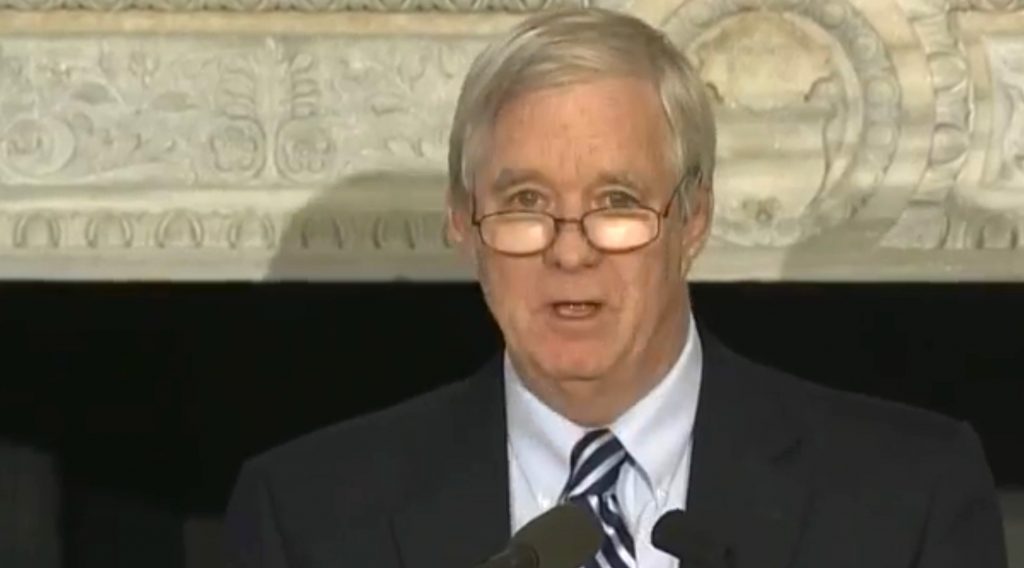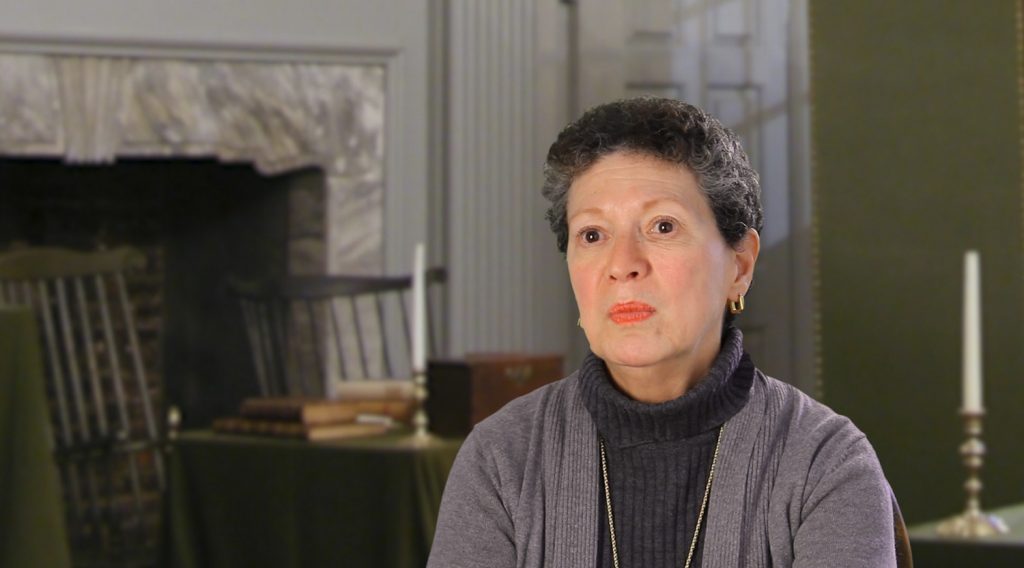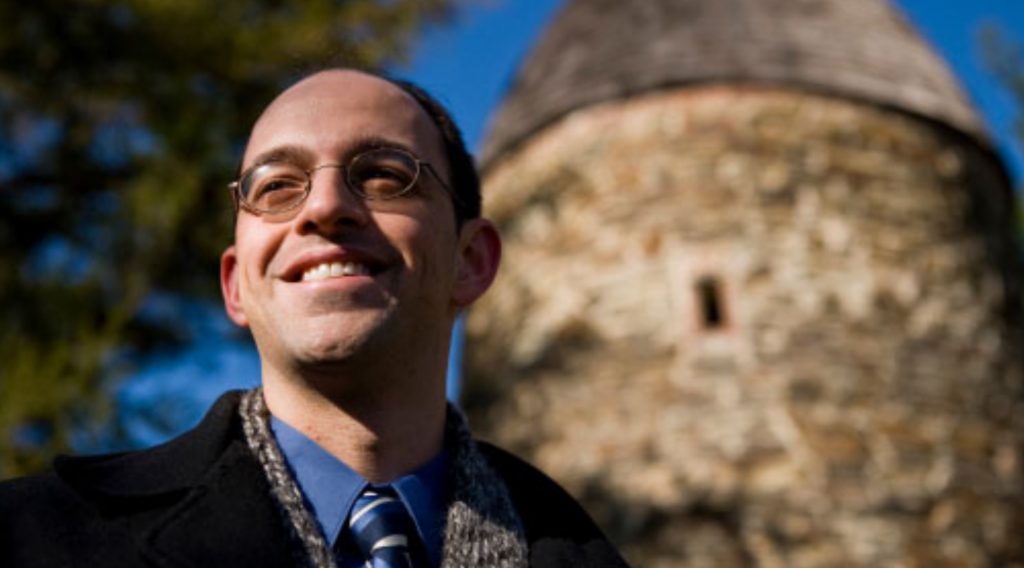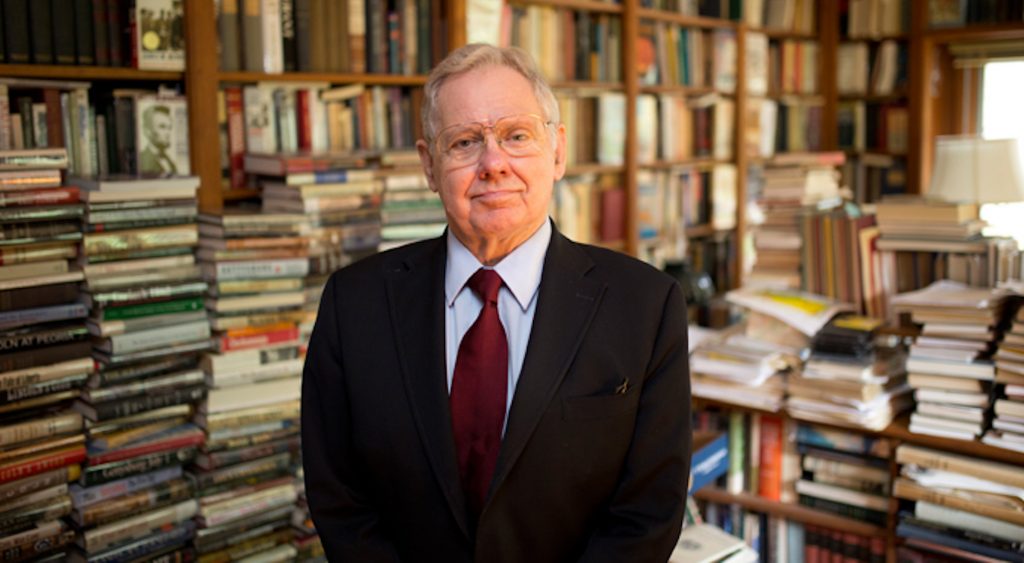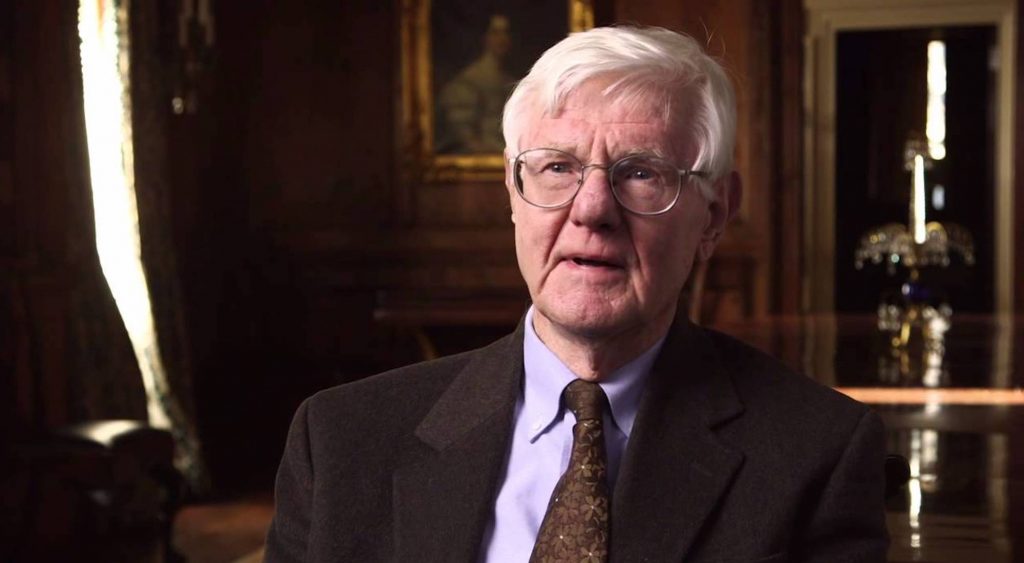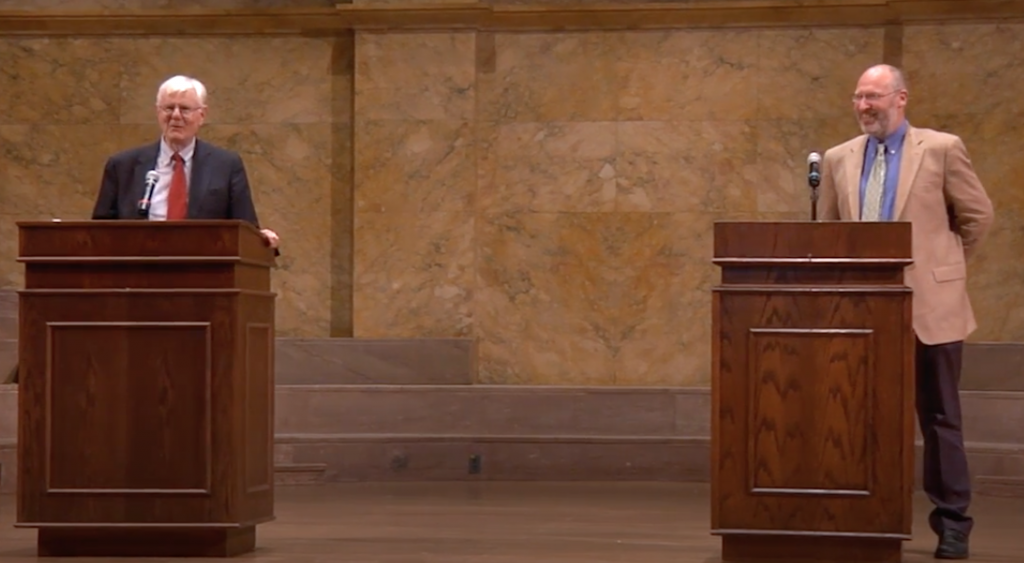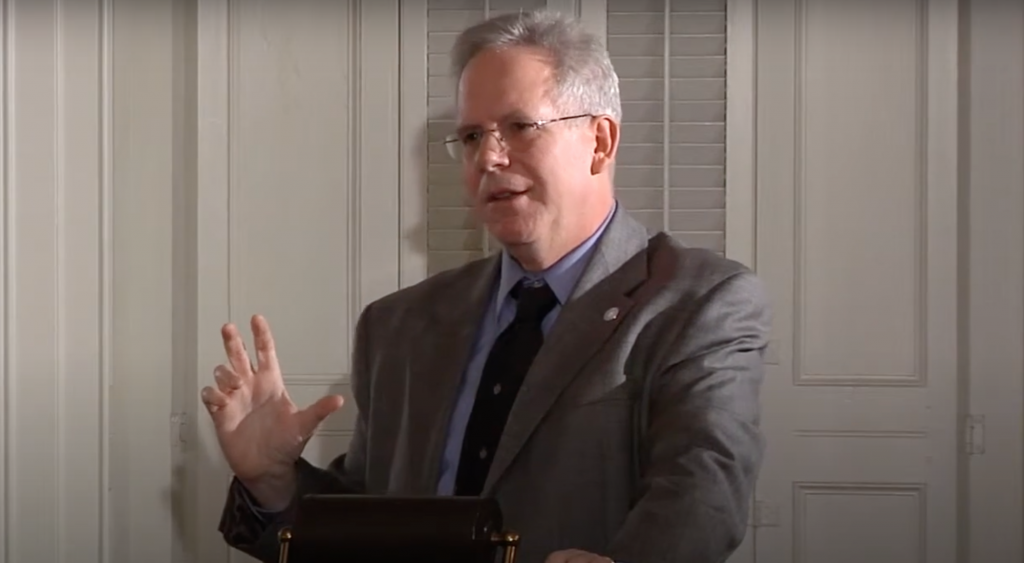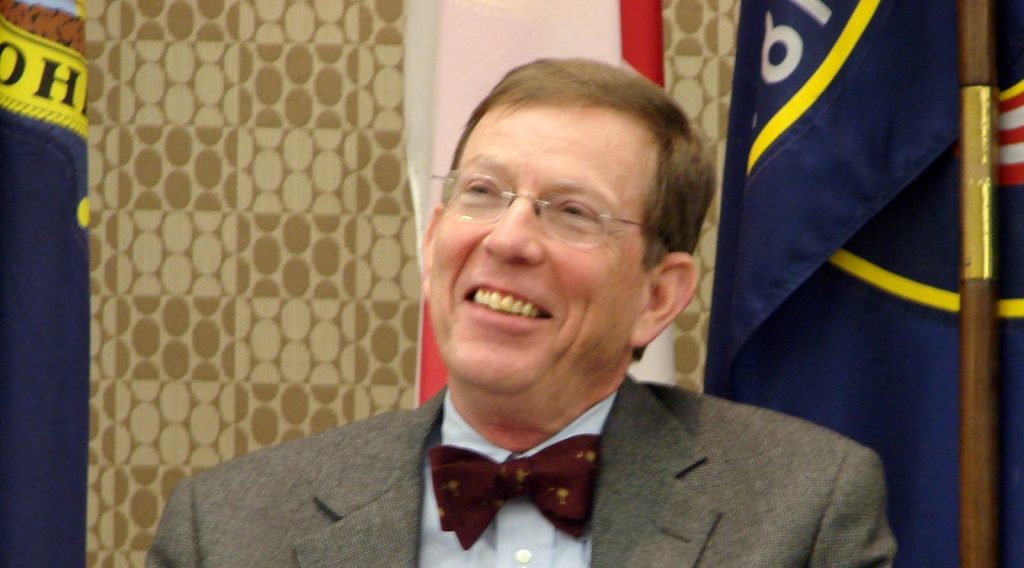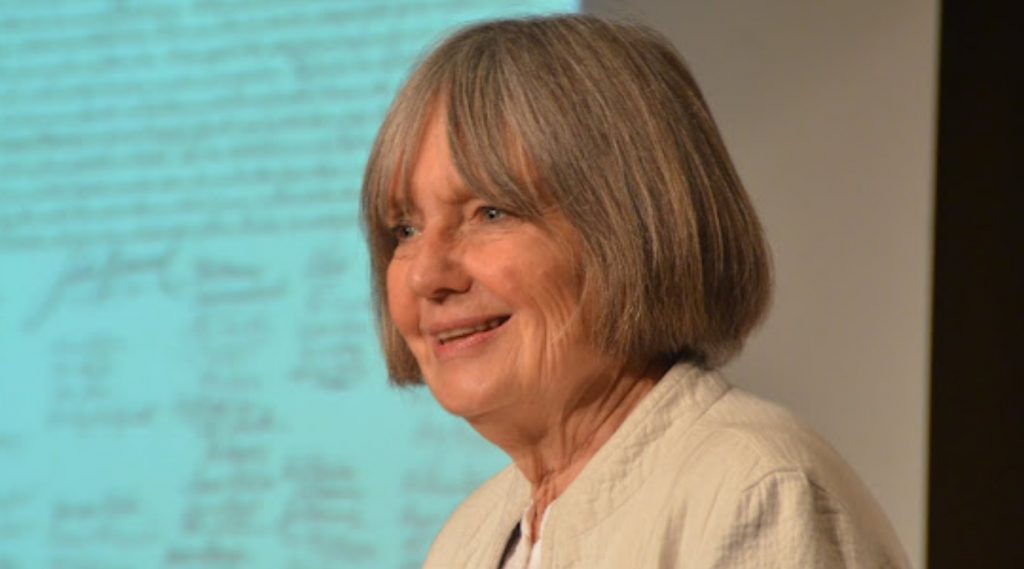Some of the Institute’s lectures have been recorded and are available to watch online. These include recent installments of the annual George Rogers Clark Lecture, a program launched in 1975 to recognize the work of leading historians of the American Revolution, and the presentation of the Society of the Cincinnati Prize, awarded to the author of a distinguished work of history of the era of the American Revolution.
The 2025 George Rogers Clark Lecture – Behind Ken Burns’ The American Revolution
For the 50th anniversary of the Society of the Cincinnati’s annual George Rogers Clark lecture, the principal script writer for Ken Burns’ American Revolution, Geoffrey C. Ward, along with award-winning historian and consultant Rick Atkinson, discuss the making…
The Founding of the Continental Army
In 1775, the rebellious Americans had to form a standing army to protect their rights and defend themselves against occupying British forces. On June 14, 1775, shortly before the Battle of Bunker Hill in Boston, the Second Continental Congress passed…
The 2025 Society of the Cincinnati Prize Lecture – Beyond Alien Skies: Environment and Suffering in the American Revolution
On October 15, 2025, historian Vaughn Scribner, Ph.D., professor of history at the University of Central Arkansas, was awarded the 2025 Society of the Cincinnati Prize for his book Under Alien Skies: Environment, Suffering, and the Defeat of the…
Republic and Empire: Crisis, Revolution, and America’s Early Independence
At the time of the American Revolution, the British Empire had colonies in India, Africa, the Caribbean, the Pacific, Canada, Ireland and Scotland. The thirteen rebellious American colonies accounted for half of the total number of provinces in the British…
The Last Men Standing: The 8th Virginia Regiment in the American Revolution
Independent historian Gabriel Neville highlights the Revolutionary War service of a unique detachment of the Continental Army: the Eighth Virginia Regiment. In colonial America, thousands of German and Irish immigrants settled in Virginia’s western reaches. The Eighth Virginia Regiment…
Fighting for Philadelphia: Forts Mercer and Mifflin, the Battle of Whitemarsh, and the Road to Valley Forge
The weeks of bloody maneuvering and fighting along the Delaware River at Fort Mercer, Fort Mifflin, and Gloucester receive but scant attention in the literature of the American Revolution. The same is true for the five-day Whitemarsh operation and…
The Painter’s Fire: A Forgotten History of the Artists Who Championed the American Revolution
Historian Zara Anishanslin discusses her new book that highlights three remarkable artists devoted to the pursuit of liberty. The American Revolution was not only fought in the colonies with muskets and bayonets. On both sides of the Atlantic, artists armed…
Fate of the Day : A Discussion with Rick Atkinson
Pulitzer Prize-winning historian Rick Atkinson sits down with the Institute’s executive director, Andy Morse, to discuss the second book of his Revolution trilogy, Fate of the Day: The War For America, Fort Ticonderoga to Charleston, 1777-1780, that…
A 1773 British Army List and the Battle of Bunker Hill
The Institute’s historical programs manager, Andrew Outten, discusses a 1773 register of British Army officers, annotated with casualties suffered during the first battles of the Revolution—most notably at the Battle of Bunker Hill.
Beginning in 1740, the British…
Bunker Hill and American Memory
To commemorate the 250th anniversary of the Battle of Bunker Hill, historian Paul Lockhart of Wright State University, offers a reassessment of the battle and explores how various misconceptions about it have been formed in American memory over the last…
The British Army in Boston, 1774-1776
Historian Don Hagist, editor of the Journal of the American Revolution, explores the British Army in Boston before and after the opening shots of the Revolution on April 19, 1775. Drawing from his research that focuses on the common soldier…
Captain Barnard Elliot and the Fourth South Carolina Regiment at the Battle of Sullivan’s Island
Elizabeth Chew and Melina Testin of the South Carolina Historical Society discuss a rare orderly book kept by Capt. Barnard Elliot of the Fourth South Carolina Regiment, which was incorporated into the Continental Army on June 18, 1776—ten days…
The Battles of Lexington and Concord
To kick off our eight-year-long 250th anniversary celebrations of the American Revolution, this panel discussion highlights the Battles of Lexington and Concord and the beginning of the American Revolution. Panelists include historians J.L. Bell discussing the prelude…
A Minute Man’s Hanger Sword and the Battles of Lexington and Concord
To commemorate the 250th anniversary of the beginning of the American Revolution, the Institute’s deputy director and curator, Emily Parsons, discusses an American-made hanger sword carried during the early months of the Revolutionary War by James Taylor, a…
The Realities of Infantry in Battle During the American Revolution
Historian Alex Burns, Ph.D., assistant professor of history at Franciscan University of Steubenville, places the common enlisted man during the American Revolution at center stage by discussing their experiences during the war. Drawing from his archival research on the…
The Cutting Off Way: Indigenous Warfare in the American Revolution
Historian Wayne E. Lee of the University of North Carolina Chapel Hill discusses Indigenous warfare before and during the American Revolution. Throughout the Revolution, Indigenous warriors sought to surprise their targets, and the size of the target varied with the…
Threshold to Valley Forge: The Six Days of the Gulph Mills Encampment
Between December 12–19, 1777, Gen. George Washington and his Continental Army encamped in the towering hills of Gulph Mills, Pennsylvania, fifteen miles from Philadelphia. Known as the threshold to Valley Forge, the Gulph Mills Encampment is often forgotten or…
The 1775 Orderly Book of a Massachusetts Officer
The Institute’s library director, Thomas Lannon, discusses the orderly book of Edmund Bancroft. Initially a non-commissioned officer in Col. William Prescott’s Regiment from May-December 1775, Edmund Bancroft was likely a participant at the Battle of Bunker…
From Trenton to Yorktown: Turning Points of the Revolutionary War
For eight grueling years, American and British military forces struggled in a bloody war over colonial independence. This conflict also ensnared Native American warriors and the armies and navies of France, Spain, the Dutch Republic and several German principalities. From…
Benjamin Franklin, Francisco Saavedra de Sangronis and Spain’s Grand Strategy in the American Revolutionary War
Historian Thomas E. Chávez focuses our attention on Spanish participation throughout the American Revolution through a discussion of Spain’s grand strategy during the war; the contributions to the Spanish war effort of Francisco Saavedra de Sangronis, a Spanish…
Don Troiani’s Black Soldiers in America’s Wars: 1754-1865
Historian John Rees discusses his recent collaboration with historical artist Don Troiani highlighting the participation of African American soldiers in America’s early wars that combines Troiani’s dramatic art with Rees’ heavily researched text. Drawing from his research and…
Unlikely Soldiers: The Bakers of Washington’s Army, 1778-1781
In May 1777, Congress commissioned Christopher Ludwick, a Philadelphia gingerbread baker, as the superintendent of bakers in the Continental Army. Upon receiving his commission, Ludwick quickly developed a baking department—the first of its kind in America—to feed Gen…
Transatlantic Abolitionism in the Age of Revolution
Throughout his life, the marquis de Lafayette fought vehemently for personal freedoms. He advocated for women’s rights in America and civil rights for Protestants in France, and promoted respect for the identity and sovereignty of American Indians. His most…
Declarations of Independence: Indigenous Resilience, Colonial Rivalries, and the Cost of Revolution
On July 4, 1776, two hundred miles northwest of Philadelphia, on Indigenous land along the west branch of the Susquehanna River, a group of colonial squatters declared their independence. They were not alone in their efforts. This bold symbolic gesture…
The Leadership of Nathanael Greene and the Prelude to the Battle of Guilford Courthouse
For this special lecture, Dennis Conrad, Ph.D., editor of The Nathanael Greene Papers, discusses the leadership of Gen. Nathanael Greene in the South during the American Revolution, along with events that led to the critical Battle of Guilford Courthouse…
From Empire to Revolution: Sir James Wright and the Price of Loyalty in Georgia
James Wright lived a transatlantic life, taking advantage of every imperial opportunity afforded him. He earned numerous important government posts and amassed an incredible fortune. An England-born grandson of Sir Robert Wright, James Wright was raised in Charleston, South…
A 1780s Chinese Porcelain Punch Bowl Depicting the Battle of the Saintes
The Institute’s museum collections and operations manager, Paul Newman, for a Lunch Bite object talk highlighting a recent acquisition for our museum collections: a Chinese porcelain punch bowl depicting the Battle of the Saintes. Produced around 1783, the punch…
Spanish Louisiana: Contest for Borderlands, 1763-1803
The Spanish era in the Lower Mississippi Valley, a borderland contested by empires and the region’s diverse inhabitants following the Seven Years’ War, was characterized by tremendous transition as the colony emerged from the neglect of the French period…
The Revolution After the Revolution: How Lafayette, Hamilton, and the Cincinnati Fostered American Industry and Global Trade
Historian Laura Auricchio, Ph.D., delivers the 2024 George Rogers Clark Lecture. Drawing mainly from objects featured in our current exhibition, Fete Lafayette: A French Hero’s Tour of the American Republic, Dr. Auricchio explores how the marquis de Lafayette…
A Promised Land: Jewish Patriots, the American Revolution, and the Birth of Religious Freedom
Jews played a critical role both in winning the American Revolution—fighting for the patriot cause from Bunker Hill to Yorktown—and in defining the republic that was created from it. As the most visible non-Christian religion, Judaism was…
The Marquis de Lafayette Returns: A Tour of America’s National Capital Region
Against the backdrop of a tumultuous election, a beloved hero of the American Revolution returned to America for the first time in forty years. From August 1824 to September 1825, the marquis de Lafayette traveled through the United States, welcomed…
A Portrait of Revolutionary War Veteran Andrew Wallace, the “Rescuer of Lafayette” at Brandywine
According to his 1833 pension letter and other contemporary accounts, Wallace had a seemingly fascinating career throughout the Revolution. Having allegedly served as a sergeant from 1776 through the end of the war, Wallace claimed to have participated in nearly…
The 2024 Society of the Cincinnati Prize Presentation—Disunion Among Ourselves: The Perilous Politics of the American Revolution
The 2024 Society of the Cincinnati Prize honors Eli Merritt, M.D., M.A., for his book Disunion Among Ourselves: The Perilous Politics of the American Revolution (University of Missouri Press, 2023), which explores the politics of the Continental Congress…
Memory of ’76: The Revolution in American History
Americans agree that their nation’s origins lie in the Revolution, but they have never agreed on what the Revolution meant. For nearly 250 years, politicians, political parties, social movements, and a diverse array of ordinary Americans have constantly reimagined…
The Marquis de Lafayette and the American Revolution
Having learned of the American war in the summer of 1775, the marquis de Lafayette responded to the rebels’ calls for republican principles inspired by ancient Rome, the opportunity to avenge France’s defeat by the British in the Seven…
Waging War in America: Operational Challenges of Armies During the American Revolution
Historian Don Hagist moderates a panel of contributors to the recent anthology Waging War in America 1775-1783, exploring the significant operational challenges faced by American, Loyalist, French and German forces during the Revolution. From recruitment and training to tactics…
Lord Dunmore’s War
Known to history as Dunmore’s War, the 1774 campaign against a Shawnee-led Indian confederacy in the Ohio country marked the final time an American colonial militia took to the field in His Majesty’s service and under royal…
“A Perilous Voyage for Our Company”: The Misadventures of Sgt. James Selkirk on the Chesapeake Bay
Historian and documentary editor Robb Haberman examines the perilous voyage of Sgt. James Selkirk and the Second New York Regiment on their way to Yorktown in September 1781, when their transport schooner was separated and ran aground while sailing from…
An 1830s Model of HMS Roebuck
Museum Collections and Operations Manager Paul Newman discusses an 1830s model of HMS Roebuck, a forty-four-gun British frigate that saw extensive service during the American Revolutionary War. Launched in 1774, the Roebuck found itself performing blockade duty on…
Glorious Lessons: John Trumbull, Painter of the American Revolution
John Trumbull experienced the American Revolution firsthand by serving as an aide to American generals George Washington and Horatio Gates and being jailed as a spy. Throughout his wartime experience, he made it his mission to record the conflict, giving…
A Hero of Two Worlds: The Marquis de Lafayette in the Age of Revolution
Few in history can match the revolutionary career of the marquis de Lafayette. For over fifty incredible years at the heart of the Age of Revolution, he fought courageously on both sides of the Atlantic as a soldier, statesman, idealist…
Admiral de Grasse’s Leadership: New Insights Into the American Revolutionary War
Drawing from his recent co-authored book, Admiral de Grasse and American Independence: Command and Operations, Jean-Marie Kowalski, Ph.D., associate professor of history and lecturer at the Université Paris-Sorbonne and the École Navale (French Naval Academy), discusses…
The First French Map of the United States
In this segment of Collections Corner, the Institute’s research services librarian, Rachel Nellis, highlights a rare map from our Robert Charles Lawrence Fergusson Collection, Carte des Etats-Unis de l’Amerique suivant le Traité de Paix de 1783, engraved…
An English Lord in America: Lord Fairfax and George Washington in Revolutionary Virginia
Thomas Fairfax, 6th Lord Fairfax of Cameron, played an influential role throughout the life of George Washington. Having been introduced to Washington shortly after settling in Belvoir, Va., in 1747, Fairfax became Washington’s first employer when he hired the…
A French Engineer’s Map Depicting the Early Military Operations of the American Revolution
In 1777, French army officer Michel Capitaine du Chesnoy arrived in Charleston, South Carolina, with the marquis de Lafayette. During the American Revolution, Capitaine du Chesnoy served with Lafayette as both his aide-de-camp and mapmaker, producing several important…
Revolutionary Blacks: Discovering the Frank Brothers, Freeborn Men of Color, Soldiers of Independence
William and Benjamin Frank, brothers and freeborn men of color, joined the Second Rhode Island Regiment in the spring of 1777, joining a cohort of free Black soldiers serving in an integrated Continental Army. Following the Battle of Monmouth in…
The Marquis de Lafayette and His Farewell Tour
In 1824-1825, the marquis de Lafayette embarked on a tour of the United States, returning for a final time to the country he helped establish and whose democratic experiment he saw as a model for the rest of the…
At War, At Sea: The Legacy of James Forten as a Revolutionary War Veteran
In February 2023, the Museum of the American Revolution opened the acclaimed special exhibition Black Founders: The Forten Family of Philadelphia. The exhibition introduced visitors to three generations of the family of James Forten (1766-1842), a free Black Revolutionary…
The American Revolution in the Old Northwest
The American Revolution in the West is often neglected from the overall history of the conflict, though it had a significant impact on how it was conducted. Larry Nelson, assistant professor of history at Bowling Green State University, discusses this…
Three George Washington Manuscripts from the American Revolution
Research Services Librarian Rachel Nellis discusses three manuscripts signed by Gen. George Washington during the American Revolution. The manuscripts, recently donated to the Institute as part of the George Miller Chester Jr. (Society of the Cincinnati in the State of…
Mental Maps of the Founders: How Geographic Imagination Guided America’s Revolutionary Leaders
The American founders were men of high intellect, steely integrity, and enormous ambition—but they were not all of one mind. They came from diverse colonies, and they all sought their futures on different horizons. Without reliable maps of even…
Dishonored Americans: The Political Death of Loyalists in Revolutionary America
In the final words of the Declaration of Independence, the signatories famously pledged their lives, their fortunes and their “sacred Honor” to one another, but what about those who made the opposite choice? By looking through the lens of honor…
Seized with the Temper of the Times: Identity and Rebellion in Pre-Revolutionary America
The Stamp Act riots in Rhode Island and the Regulator Rebellion in North Carolina, although movements in smaller colonies, tell a broader story about the evolution of American political thought in the decades surrounding the American Revolution. Without pre-existing…
A Collections of Letters Written from Captivity by William Russell
Historical Programs Manager Andrew Outten discusses a collection of letters written from captivity by William Russell, an American soldier and privateer who was imprisoned twice during the Revolution. Following his initial capture at sea, Russell was first held prisoner at…
Defiance of the Patriots: The Boston Tea Party and the Making of America
On the night of December 16, 1773, a party of Bostonians boarded three British vessels and dumped over three hundred chests of tea into Boston Harbor. In addition to objecting to taxation without representation, the participants were also protesting the…
God Save Benedict Arnold: The True Story of America’s Most Hated Man
For more than two centuries, all most Americans have ever known about Benedict Arnold is that he committed treason—yet he was more than a turncoat. He was a superb leader, a brilliant tactician, a supremely courageous soldier and one…
A Handkerchief Commemorating the Reign of King George III
Museum Collections and Operations Manager Paul Newman discusses a handkerchief commemorating the reign of British monarch King George III, made ca. 1812. The large printed handkerchief chronicles contemporary events in a lavishly decorated manner and includes several portraits of notable…
A Client State or a Great Power: Radicals vs. Moderates in the Diplomacy of the American Revolution
During the Revolution, American policymakers were divided into two factions—radicals and moderates. Radicals saw the United States as a great power, equal to France and worthy of alliances with as many foreign powers as possible. Moderates, however, doubted American…
King Hancock: The Radical Influence of a Moderate Founding Father
John Hancock is often associated with the radical commencement of the Revolution and his audacious signature at the bottom of the Declaration of Independence, but his politics were not nearly as bold as they may have seemed. Throughout the Revolution…
The 2023 George Rogers Clark Lecture: How King George III Could Have Won the American Revolution
Historian Lord Andrew Roberts and Gen. David Petraeus (U.S. Army, Ret.) deliver the 2023 George Rogers Clark Lecture through a conversation of how King George III could have won the American Revolution. Together, they have recently published the new…
Visit of the King and Queen of Siam to Anderson House in 1931
Director of Marketing and Communications Glenn Hennessey for a discussion of the 1931 visit to Anderson House by the king and queen of Siam (now Thailand) and the ephemera that documents it. From April 29 to May 1, the royal…
The Tory’s Wife: A Woman and Her Family in Revolutionary America
The Spurgin family of North Carolina experienced the cataclysm of the American Revolution in the most dramatic ways—and from different sides. Jane Welborn Spurgin was a patriot who welcomed Gen. Nathanael Greene to her home and aided the Continental…
Revolutionary Things: Material Culture and Politics in the Late Eighteenth-Century Atlantic World
Ashli White, professor of history at the University of Miami, explores the circulation of material culture during the American, French, and Haitian revolutions and argues that radical ideals in the eighteenth century were contested through objects as well as in…
Statues of Nathan Hale
“I only regret that I have but one life to lose for my country.” The words Nathan Hale is said to have uttered just before being hanged as a spy by the British are among the best remembered of the…
The Prelude to Monmouth: From Valley Forge to Monmouth, From Colonial Rebellion to European War
For this special lecture, Dr. Ricardo Herrera of the U.S. Army War College explores the events that led to the Battle of Monmouth, along with the subsequent global nature of the American Revolution and its impact on British strategy…
The 2023 Society of the Cincinnati Prize Presentation: Hessians: German Soldiers in the American Revolutionary War
The 2023 Society of the Cincinnati Prize honors Friederike Baer, Ph.D., professor of history at Penn State Abington and her book Hessians: German Soldiers in the American Revolutionary War (Oxford University Press, 2022). In this special event, Dr. Baer…
Unfriendly to Liberty: Loyalist Networks and the Coming of the American Revolution in New York City
Drawing from his recent book, Unfriendly to Liberty: Loyalist Networks and the Coming of the American Revolution in New York City, historian Christopher Minty, Ph.D., explores the origins of loyalism in New York City between 1766 and 1776, and…
A View From Abroad: The Story of John and Abigail Adams in Europe
From 1778 to 1788, future president John Adams lived in Europe as an American diplomat. Joined by his wife, Abigail, in 1784, the two shared rich encounters with famous heads of the European royal courts. Jeanne E. Abrams, professor of…
Catharine Macaulay’s An Address to the people of England, Scotland, and Ireland, on the Present Important Crisis of Affairs
Research Services Librarian Rachel Nellis discusses Catharine Macaulay, a radical English writer and historian sympathetic to the American cause, and her 1775 pamphlet, An Address to the people of England, Scotland, and Ireland, on the Present Important Crisis of Affairs…
William Hunter: A British Soldier’s Son Who Became an American Citizen
The son of a British soldier, William Hunter accompanied his father, a non-commissioned officer in the British army’s 26th Regiment of Foot, while on campaign during the American Revolution. Throughout the war, Hunter witnessed the first-hand terrors…
An Orderly Book Kept by British General Robert Cuninghame
Museum Collections and Operations Manager Paul Newman discusses a manuscript orderly book kept by British General Robert Cuninghame from his time in command of an army camp near Clonmel, Ireland, 1778. An important historical record, this book records the daily…
Washington’s Marines: The Origins of the Corps and the American Revolution, 1775-1777
In the early days of the Revolutionary War, the Continental Congress rushed to form an army but soon realized that, to win its freedom, America would need men who could fight both on land and sea. Enter the Marines. As…
Prisoners of Congress: Philadelphia’s Quakers in Exile, 1777-1778
In 1777, Congress labeled a group of Philadelphia Quakers who refused to help defend the city against the imminent invasion by British troops as “the most Dangerous Enemies America knows.” They ordered Pennsylvania to apprehend them. In response, state officials…
Disunion Among Ourselves: The Perilous Politics of the American Revolution
Far from a harmonious collaboration, the Continental Congress during the Revolutionary War was so filled with political strife that the delegates feared the Revolutionary War would end in disunion or civil war. But instead of disbanding, these founders managed to…
On Tea, Taxes and World History: The British East India Company and the Origins of the American Revolution
In May 1773, Parliament passed the Tea Act, which instituted a tax of three cents per pound on all British tea sold in America. The act effectively granted a monopoly on the sale of tea in the American colonies to…
Society of the Cincinnati Eagles of the Twentieth Century
The Institute’s deputy director and curator, Emily Parsons, discusses Society of the Cincinnati Eagles of the twentieth century. The Eagle insignia of the Society of the Cincinnati is one of the most historic American medals and has been worn…
A Scrapbook Documenting Isabel Anderson’s Gift of Anderson House to the Society of the Cincinnati
Larz Anderson, the great grandson of a Revolutionary War officer, was a devoted member of the Society of the Cincinnati. Upon his death in 1937, his widow, Isabel, oversaw the gift of their Washington, D.C. home, Anderson House, to…
Spanish and American Diplomacy and Partnership in the Time of the Revolution: A Celebration of Trans-Atlantic Friendship
The American Revolution Institute of the Society of the Cincinnati, The Queen Sofía Spanish Institute and the Embassy of Spain in the United States host a celebration of Spanish-American friendship at the international headquarters of the Society of…
The Surveyor’s Eyes: Mapping Empire in the Era of the American Revolution
In the second half of the eighteenth century, British surveyors came to North America and the West Indies in unprecedented numbers. Their images of coastlines, forts and frontiers helped win the French and Indian War and pictured a triumphant British…
All the World’s a Stage: The Role of Architecture and Interior Decor in Entertaining at Anderson House, 1905-1929
Anderson House, the winter home of Larz and Isabel Anderson between 1905 and 1937, stands as a testament to all that was gracious and in good taste in entertaining during the waning decades of America’s Gilded Age. An architectural…
The Wandering Army: The British Campaigns that Transformed the British Way of War
In 1774, Gen. Henry Clinton embarked on a “martial grand tour,” visiting the battlefields of Europe with his friend, the military theorist Henry Lloyd. What the two observed on their travels would change the British approach to the war that…
The Diplomatic Uniform of Larz Anderson
Museum Collections and Operations Manager Paul Newman discusses a diplomatic uniform made for Larz Anderson by Davies & Son of London, England, for his appointment as the U.S. minister to Belgium in 1911. At the time, U.S. diplomats…
François-Jean de Chastellux and American Independence
François-Jean Chastellux, a major general in the French army, member of the Society of the Cincinnati and cousin of the marquis de Lafayette, played a central role in the Franco-American alliance during the Revolutionary War. Recently, a…
In League with Liberty: The Persistence of Patriots of Color and the Formation of the First Rhode Island Regiment of the Continental Army
As states struggled to fill enlistment quotas in late 1777, the Rhode Island General Assembly, drawing from a proposal from Rhode Island general James Varnum, voted to allow the enlistments of indentured servants, indigenous peoples and former slaves. With that…
Charles Stedman’s History of the Origin, Progress, and Termination of the American War
Historical Programs Manager Andrew Outten discusses Charles Stedman’s History of the Origin, Progress, and Termination of the American War that contains detailed annotations made by British general Sir Henry Clinton. Stedman, who served as an officer in the British…
The Battle of St. Louis and the Attack on Cahokia
Compared to events in the East, the American Revolutionary War in the West has received sparse attention despite its major impact on the geographical extent of the United States after the war. In 1779, in response to George Rogers Clark…
The Real Miracle at Valley Forge: George Washington’s Political Mastery
Throughout the punishing winter at Valley Forge, Gen. George Washington preserved the Continental Army while also forging it into an effective fighting force. This achievement not only reflected military leadership but also deft political action that allowed the commander-in…
A Captured British Light Dragoon Carbine
Deputy Director and Curator Emily Parsons for a discussion of a British Pattern 1756 light dragoon carbine and the winding road it took to seeing action in the American Revolution. In May 1776, just two months after the British had…
Environmental Legacies: How the War of Independence Affected the Natural World in Predictable and Surprising Ways
When one considers the effects of war on the environment, their thoughts probably turn to modern events such as the atomic bomb dropped on Hiroshima and Nagasaki or the use of Agent Orange in Vietnam. The American Revolution, however, also…
A Presentation Sword Awarded to Commodore Joshua Barney
Museum Collections and Operations Manager Paul Newman discusses a presentation sword awarded to Commodore Joshua Barney (1759-1818) by the city of Washington, D.C., for his service at the Battle of Bladensburg, fought on August 24, 1814. Barney, who…
The Contagion of Liberty: The Politics of Smallpox in the American Revolution
With a smallpox epidemic raging during the Revolutionary War, Gen. George Washington was forced to order the mandatory inoculation of the Continental Army. Washington, however, did not have to convince fearful colonists to protect themselves against smallpox—they were the…
“As long as I have served, I have not left a battlefield in such deep sorrow”: The Archaeology of a Mass Burial Discovered at Red Bank Battlefield
For nearly a decade, Red Bank Battlefield Park, N.J., has been the focus of a series of archaeological studies investigating the Hessian attack on Fort Mercer on October 22, 1777, during the Philadelphia campaign. During a public archaeology program…
A Series of 1778 Prints Satirizing the Carlisle Peace Commission
Research Services Librarian Rachel Nellis discusses the art of satire and Matthew and Mary Darly, the English husband and wife print shop owners and caricaturists. This Lunch Bite explores the Darly’s careers and focuses on their series of four…
The Other 1776: Reform and French Military Dress in the Late Ancien Regime
Following its catastrophic defeat in the Seven Years’ War, the French military undertook a comprehensive series of reforms affecting everything from warship design to soldiers’ uniforms, which dramatically altered the army’s appearance. This uniform provided unheard-of amenities for…
Misinformation Nation: Foreign News and the Politics of Truth in Revolutionary America
“Fake news” is nothing new. Just like millions of Americans today, the revolutionaries of the eighteenth century worried that they were entering a “post-truth” era. Their fears, however, were not fixated on social media or clickbait, but rather on…
Chinese Tea and American Rebels: The Global Origins of the Revolutionary Crisis
Drawing from his book, An Empire on the Edge, a 2015 finalist for the Pulitzer Prize for History, historian Nick Bunker delivers the annual George Rogers Clark lecture and re-examines the Boston Tea Party and the onset of the…
Women at War: Confronting Challenges and Hardships in the American Revolution
Women participated in the American Revolution in complex and varied ways, and the Revolution transformed their place in the new nation. This panel discussion convenes several contributors to a new anthology, Women Waging War in the American Revolution, and will…
First Among Men: George Washington and the Myth of American Masculinity
George Washington, hero of the French and Indian War, commander in chief of the Continental Army and first president of the United States, died on December 14, 1799. Shortly thereafter, the myth-making surrounding Washington began and has persisted today…
North of America: Loyalists, Indigenous Nations, and the Borders of the Long American Revolution
At the start of the Revolutionary War, independence had its limits as patriots were surrounded by indigenous peoples and loyalists throughout the northern regions that straddled the colonial borders, and these foreign neighbors were far from inactive during the Revolution…
Dark Voyage: An American Privateer’s War on Britain’s African Slave Trade
Historian Christian McBurney discusses the harrowing voyage of the Marlborough, an American privateer vessel that sailed across the Atlantic to attack British slave trading posts and ships on the coast of West Africa during the Revolutionary War. His new ground…
William Faden’s 1778 and 1784 maps of the Battle of Brandywine
Historical Programs Manager Andrew Outten discusses two maps produced by British cartographer William Faden depicting the Battle of Brandywine. William Faden is well known for his maps of major battles of the Revolutionary War. Unusually, he produced two maps of…
“To Have The Bed Made”: Invisible Labor and the Material Culture of Nursing in the Revolutionary War
Alongside the surgeons and physicians, the medical care of the thousands of sick and wounded Continental soldiers relied upon the tireless work of army nurses, camp followers, housewives, cooks, laundresses and local families. In contrast to the voluminous records of…
The Habsburg Monarchy and the American Revolution
During the Revolutionary War, the Habsburg monarchy, the largest continental European power of the eighteenth century, never formally recognized the United States, but its ruling and mercantile elites saw opportunity, especially for commerce. Bringing together materials from nearly fifty international…
“A Kind of Partisan War”: An Archaeological Perspective on Francis Marion
When Nathanael Greene was appointed commander of the southern Continental forces in the fall of 1780, he wrote to George Washington that he would be forced to fight “a kind of partisan war,” until he could raise an army large…
The Artifacts of Arnold’s Bay: Following the Diaspora of Material Culture Over Time
During the last engagement in the 1776 northern campaign season, Gen. Benedict Arnold burned the remaining vessels of his American fleet in Lake Champlain to prevent capture by the British. In 2020, the National Park Service’s American Battlefield Protection…
The Art and Science of Siege Warfare in the American Revolution
Fortification and siege doctrine were a critical component of any eighteenth-century military. Drawing mainly from the Siege of Yorktown, Dr. Glenn F. Williams of the U.S. Army Center of Military History explores the intricacies and technical expertise required…
Nathanael Greene’s Pistols
The Institute’s historical programs manager, Andrew Outten, discusses a pair of holster pistols that was owned by Gen. Nathanael Greene and given to his aide-de-camp, Nathaniel Pendleton, who served under Greene during the Southern Campaign of the…
Feeding Washington’s Army: Surviving the Valley Forge Winter of 1778
In this new history of the Continental Army’s Grand Forage of 1778, award-winning military historian Ricardo A. Herrera uncovers what daily life was like for soldiers during the darkest and coldest days of the American Revolution: the Valley…
Dr. James Tilton’s Society of the Cincinnati Eagle Insignia and Treatise
The Institute’s deputy director and curator, Emily Parsons, discusses Dr. James Tilton’s Society of the Cincinnati Eagle insignia and 1813 medical treatise.
James Tilton served in the Revolutionary War first as a military physician for the Delaware Regiment…
Medicine in the American Revolution
Disease was a major part of everyday life in the American colonies, especially during the Revolutionary War. For every soldier dying of wounds in the war, seven died of infections including smallpox, malaria and typhus. Doctors were influenced by ancient…
The Burning of His Majesty’s Schooner Gaspee
On June 9, 1772, a group of prominent Rhode Islanders rowed out to the British schooner Gaspee, which had run aground six miles south of Providence while on an anti-smuggling patrol. After threatening and shooting its commanding officer, the…
A Portrait of Capt. Francis Lord Rawdon
Museum Collections and Operations Manager Paul Newman discusses a portrait of Capt. Francis Lord Rawdon by Hugh Douglas Hamilton, ca 1777. Lord Rawdon, an Irish-born officer in the British army, saw extensive service in the northern and southern theaters…
Hessians: German Soldiers in the American Revolutionary War
Between 1776 and 1783, Great Britain hired an estimated thirty thousand German soldiers to fight in its war against the American rebels. Collectively known as Hessians, the soldiers and accompanying civilians, including hundreds of women and children, spent extended periods…
America’s Revolutionary Mind: A Moral History of the American Revolution
The American Revolution was a watershed in the principles of government between centuries of monarchical and aristocratic rule and free societies based on moral principles that shaped the Revolutionary ideal of universal equality. Professor Thompson, author of America’s Revolutionary…
Benjamin Rush’s Directions for Preserving the Health of Soldiers
Library Director Ellen McCallister Clark discusses Benjamin Rush’s Directions for Preserving the Health of Soldiers from our library collections and a feature of our exhibition, Saving Soldiers: Medical Practice in the Revolutionary War. Published in 1778, Directions for Preserving…
Founding Martyr: The Life and Death of Joseph Warren, the American Revolution’s Lost Hero
Dr. Joseph Warren, a respected physician and architect of the Revolutionary movement, was one of the most important figures in early American history—and might have gone on to lead the country had he not been killed at Bunker Hill…
Mercy Otis Warren’s Poems, Dramatic and Miscellaneous
Research Services Librarian Rachel Nellis discusses Mercy Otis Warren’s Poems, Dramatic and Miscellaneous, published in 1790, that contains two plays and several allegorical or satirical poems on the Revolution that were dedicated to George Washington and praised by Alexander…
Displaced: The Siege of Boston and the “Donation People” of 1775
In 1775, the British army seethed within Boston as the Continental Army besieged the city, compelling thousands of civilians to flee to the surrounding countryside. General George Washington and the Massachusetts Provincial Congress coordinated efforts to support the influx of…
Cornwallis: Soldier and Statesman in a Revolutionary World
Charles Cornwallis was a leading figure in late eighteenth-century Great Britain. His career spanned the American War of Independence, Irish Union, the French Revolutionary Wars and the building of the second British Empire in India. Focusing on the first…
A Most Gallant Resistance: The Delaware River Campaign, September-November 1777
By October 1777, British forces occupied Philadelphia. Yet an elaborate American defense of the Delaware River crippled the British supply lines and threatened their ability to hold the city. Historian Jim Mc Intyre discusses the massive effort by the Crown…
A German Military Jaeger Rifle
Historical Programs Manager Andrew Outten discusses a German military jaeger rifle. The soldiers who comprised the German auxiliary forces that supported Great Britain during the Revolutionary War were a formidable foe. They were well trained and highly disciplined. Among these…
The Untold War at Sea: America’s Revolutionary Privateers
Action at sea played a critical role in European and Anglo-American conflicts throughout the eighteenth century. Yet the oft-told narrative of the American Revolution tends to focus on battles on American soil or the debates and decisions of…
A Portrait of Sir William Green
Museum Collections and Operations Manager Paul Newman discusses a portrait of General Sir William Green, Baronet, by George Carter, ca 1784. As the chief engineer for Gibraltar prior to and during the Franco-Spanish siege of the British territory, it…
Underwriters of the United States: How Insurance Shaped the American Founding
Unassuming but formidable, American maritime insurers used their position at the pinnacle of global trade to shape the new nation. As Hannah Farber demonstrates in her new book Underwriters of the United States: How Insurance Shaped the American Founding, the…
Surviving the Winters: Housing Washington’s Army during the American Revolution
George Washington and his Continental Army braving the frigid winter at Valley Forge forms an iconic image in the popular history of the American Revolution. Such winter camps were also a critical factor in waging and winning the War of…
George Washington, the Society of the Cincinnati, and the Origins of American Neutrality
George Washington and his cabinet issued the Neutrality Proclamation in 1793 to shield the United States from European warfare. This proclamation owed its existence to numerous sources, including Washington’s military experiences and European diplomatic precedents. A lesser known, but…
The British Are Coming: The War for America Begins
Who can doubt that the creation story of our founding in the American Revolution remains valid, vivid and thrilling? Even in 2021, at a moment when national unity is elusive, when our partisan rancor seems ever more toxic, when the…
Religion and the American Revolution: An Imperial History
For most of the eighteenth century, British Protestantism was driven neither by the primacy of denominations nor by fundamental discord between them. Instead, it thrived as part of a complex transatlantic system that bound religious institutions to imperial politics. As…
The Regulator Rebellion in Pre-Revolutionary North Carolina
Years before shots rang out at Lexington and Concord, backcountry settlers in the North Carolina Piedmont launched their own defiant bid for economic independence and political liberty. The Regulator Rebellion of 1766-1771 arose from the conflict created by competing…
Espionage and Enslavement in the Revolution
In January 1785, a young African American woman named Elizabeth was put on board the Lucretia in New York Harbor, bound for Charleston, where she would be sold to her fifth master in just twenty-two years. Leaving behind a…
French Memoirs from the War for American Independence
The American Revolution marked the beginning of an age of democratic revolutions that swept over France and challenged the old order throughout the Atlantic world. The French officers who served in the American War of Independence, whether as idealistic volunteers…
The Battle of Saratoga and “the Compleat Victory”
Following the successful expulsion of American forces from Canada in 1776, the British forces were determined to end the rebellion and devised what they believed a war-winning strategy. They were to send General John Burgoyne south to rout the…
George Washington and the District of Columbia
The first president is remembered for leading the Continental Army to victory, presiding over the Constitutional Convention and forging a new nation, but less well known is the story of his involvement in the establishment of a capital city and…
The Boston Massacre: A Family History
Serena Zabin, professor of history and director of the American studies program at Carleton College, discusses her book on the personal and political conflicts that erupted in the Boston Massacre. Following the British troops dispatched from Ireland to Boston in…
The Cabinet: Washington and the Creation of an American Institution
Faced with diplomatic crises, domestic insurrections and constitutional challenges—and finding congressional help lacking—George Washington decided he needed a group of advisors. Washington modeled his new cabinet on the councils of war he had led as commander of the…
The Future of the American Revolution
What is the place of the American Revolution in the future we are making?
In this lecture presented in the North Carolina Museum of History’s American Revolution Lecture Series (sponsored by the North Carolina Society of the Cincinnati), the…
America’s First Veterans
Executive Director Jack Warren discusses America’s First Veterans, a book published by the American Revolution Institute of the Society of the Cincinnati. Using eighty-five manuscripts, rare books, prints, broadsides, paintings and other artifacts, America’s First Veterans introduces…
A Second of July Concert
David and Ginger Hildebrand perform eighteenth-century songs—including ballads, marches, and songs inspired by women—in costume with period instruments for our 2020 Independence Day concert. The Hildebrands have performed for our traditional “Second Day of July” concert for…
Deborah Sampson at War
Librarian Rachel Nellis discusses Herman Mann’s The Female Review: or, Memoirs of an American Young Lady, a 1797 biography of Deborah Sampson, a soldier in the Massachusetts Line and one of the first female pensioners of the American Revolution…
1774: The Long Year of Revolution
Mary Beth Norton discusses her book, 1774: The Long Year of Revolution, analyzing the revolutionary change that took place between December 1773 and April 1775—from the Boston Tea Party to the Battles of Lexington and Concord. In those months…
Prisoners of War in the American Revolution
Prisoners of war presented an enormous challenge for patriot forces during the American Revolution. Patriots captured more than seventeen thousand enemy soldiers during the war. At times the prisoners in American hands outnumbered the Continental Army. At the outset of…
American Veterans through Two Centuries
For Veterans Day 2019, the Institute presented an examination of the experiences of American veterans from the Revolutionary generation to our own time. Held in conjunction with our exhibition America’s First Veterans, the program opened with remarks from Secretary…
Louis XVI and the War of American Independence
Aid sent by Louis XVI tipped the scales in favor of a Patriot victory in the War for American Independence. However, this assistance was far from assured. John Hardman argues that the French monarch possessed sharp political insight and talent…
The American Revolution and the French Military Enlightenment
Christy Pichichero illustrates how the French Enlightenment philosophies of foreign officers in the American Revolution informed their perspective of American customs. Selecting the marquis de Chastellux and the comte de Rochambeau—whose memoirs are a part of the Institute’s…
Nathanael Greene’s Last Campaign
John Buchanan discusses his book about the dramatic conclusion of the American Revolution in the South led by Major General Nathanael Greene. Greene’s Southern Campaign was the most difficult of the war. Insufficient manpower a constant problem, Greene attempted…
The Revolutionary Life of Daniel Morgan
Daniel Morgan, one of America’s greatest battlefield commanders, arose from humble beginnings. Following a fight with his father, Morgan left home as an illiterate teenage laborer. Through ambition, determination and a great deal of luck, he became a landowner…
Rebels on the Pennsylvania Frontier
Patrick Spero examines the overlooked conflict between the Black Boys of Pennsylvania, Native American forces and the British Empire prior to the American Revolution. As the Stamp Act riled eastern seaports, frontiersmen clashed with the British Empire over another issue…
A Portrait of American Loyalist James DeLancey
American loyalist Colonel James DeLancey of Westchester County, New York, who led several loyalist cavalry and infantry units during the American Revolution is the subject of this portrait ca. 1778-1782 attributed to itinerant artist John Durand. Portraits of American…
Battlefield Burial during the Revolutionary War
Although battlefield burial is seldom covered by modern historians, following almost any military engagement, corpses needed to be buried. Who was responsible for disposing of these corpses? How can we tell who buried whom? Were officers and other ranks buried…
The American Revolution on the Spanish Borderlands
Kathleen DuVal illuminates the American Revolution on the Spanish borderlands—recounting clashes between the Spanish and British forces over the territory along the Gulf of Mexico. The capture of Mobile and the Siege of Pensacola were critical to the outcome…
Historians on Hamilton the Musical
Four scholars who contributed to Historians on Hamilton: How a Blockbuster Musical is Restaging America’s Past dissect the musical’s phenomenon and what it means for our understanding of America’s past. Hamilton, Lin-Manuel Miranda’s Tony-winning…
A Fratricidal Affair of Honor: Reactions to the Burr-Hamilton Duel
The Hamilton-Burr duel has become one of the most infamous altercations in U.S. history. Officers in the Revolutionary War and original members of the Society of the Cincinnati—Alexander Hamilton and Aaron Burr squared off in Weehawken, New…
Washington’s Farewell Address
George Washington’s Farewell Address is an essential document for the Republic. Its message, a “warning from a parting friend,” remains starkly relevant to a modern audience. By the end of his second term, President Washington was viciously attacked in…
Andrew Pickens: War Hero and Founder
Andrew Pickens (1739–1817) was the hero of many American Revolution victories against British and Loyalist forces. Rod Andrew vividly depicts the hard-fighting South Carolina militia commander founding churches, acquiring slaves, struggling over Indian territorial boundaries on the southern…
Was the American Revolution Inevitable?
“Was the American Revolution inevitable?” is a complex question posed by Robert Allison in the 2017 George Rogers Clark Lecture. The achievement of independence hinged upon the cooperation of colonists from diverse backgrounds to unite in a common cause. The…
The Social Community of the Continental Army
Rachel Engl charts social community—the ways individuals initiated and maintained casual and intimate relationships—in the Continental Army. Over the course of the Revolutionary War, tens of thousands of men served in the Continental Army, many of whom formed…
The Execution of Isaac Hayne, South Carolinian
Col. Isaac Hayne was hung for treason on August 4, 1781, in Charleston, South Carolina, by the British army. The death of a patriot for the cause of liberty was not a unique occurrence, but the unusually well-documented events…
The British Empire and the Causes of the American Revolution
Andrew O’Shaughnessy argues that the drive to centralize control over its growing empire led Britain to adopt authoritarian policies to govern its American colonies and was one of the main causes of the American Revolution. Britain’s North American…
The Road to Concord: How Four Stolen Cannon Ignited the Revolutionary War
The Road to Concord: How Four Stolen Cannon Ignited the Revolutionary War unfolds a vignette from the beginning of the American Revolution. In the early spring of 1775, British army spies located four brass cannon belonging to Boston’s colonial…
American Prisoners in the Revolutionary South
American prisoners in the revolutionary South held captive by the British forces were a logistical and financial burden that contributed to their failure in the South. During the Siege of Charleston in 1780, British forces under General Sir Henry Clinton…
How Revolutionary Americans Imagined George Washington
Prints of an imagined George Washington circulated around the country in the late eighteenth century as Americans yearned for images of their new leaders. At the start of the Revolutionary War, almost any fictitious image could pass as a portrait…
Archaeology at Parker’s Revenge
Parker’s Revenge, the scene of intense fighting between the retreating British and militia on April 19, 1775, is the site of recent archaeological discoveries. Because contemporary documents reveal little about this fight, an archaeological survey was needed to reveal…
American Loyalists in the Revolutionary World
Global migration of American Loyalists following the Revolutionary War is a topic easily overlooked by scholars and educators as they trace the path of the victorious Patriot forces. However, at the end of the American Revolution, sixty thousand Americans loyal…
Two Narratives of the French Army’s March to Yorktown
French narratives of the march to Yorktown from the American Revolution Institute’s collection—written by Henri-Dominique de Palys, chevalier de Montrepos, and Robert Guillaume, baron de Dillon—are highlighted in this presentation by Rachel Jirka, an Institute librarian…
The March to Yorktown
The epic march to Yorktown undertaken by the French and patriot forces was the largest troop movement in the Revolutionary War. From 1781-1782 French forces marched under the command of the comte de Rochambeau to and from Yorktown, alongside…
Youth and Military Service in the Revolutionary War
The experience of young soldiers in the Revolutionary War was shaped by their drive to achieve personal independence and autonomy. The war offered an entire generation of young men unusual opportunities for social advancement, honor and distinction, but diverted those…
The American Revolution in the Caribbean
In British America in 1776, there were twenty-six, not thirteen colonies—the majority of the colonies outside the mainland were in the Caribbean. Even though they shared many important similarities and connections with the mainland colonies, they did not…
George Washington and the Newburgh Conspiracy
In March of 1783, the Newburgh Conspiracy threatened to derail the fragile calm at the end of the Revolutionary War. The rumors of peace after Yorktown brought anxiety to soldiers in the Continental Army. The Continental Congress had not paid…
Naval Warfare in the Spring of 1778
Dennis Conrad recounts the significant alterations the Continental Navy underwent during the American Revolution in the spring of 1778. Naval warfare in the Revolutionary War took place in the Atlantic and beyond—stretching as far away as the Mediterranean Sea…
Bunker Hill: A City, A Siege, A Revolution
Nathaniel Philbrick brings a fresh perspective to the Battle of Bunker Hill. The real central character in this battle is Boston—where vigilantes fill the streets with a sinister and frightening violence, even as calmer patriots struggle to see their…
Revolutionary War Heroes in the Art of the U.S. Capitol
The Revolutionary War portraits that adorn the U.S. Capitol serve a purpose beyond artistic decoration. In the early nineteenth century, Americans searched for icons to unite them as a new nation, particularly ones that evoked civic virtue. The only…
Women in the American Revolution
The American Revolution was a home-front war that brought scarcity, bloodshed and danger into the life of every American, women included. While men left to fight, women shouldered greater responsibility as they maintained their farms alone and tried to…
The Boston Tea Party
In addition to objecting to taxation without representation, Bostonians protested the Tea Act of 1773 in part because it forced them to pay a tax on top of the monopoly prices set by the East India Company. They also opposed…
From George Washington’s Crossing to Victory in Princeton
In summer of 1776, George Washington suffered many crushing defeats and lost 90 percent of the army under his command. British and Hessian forces had recovered much of New York, New Jersey and Rhode Island. By late November, thousands of…
The Greatness of George Washington
Gordon Wood examines the virtues of George Washington that aided the Chief Commander of the Continental Army and first President of the United States to shape the young country. Wood highlights Washington’s concerns with his reputation—citing his letters…
The Political Path to Revolution and War, 1760-1776
Why did the British government pass the Stamp Act, the Townshend Duties, the Tea Act and the Intolerable Acts? Why did they pass a series of measures seemingly calculated to offend and provoke North American colonists? These measures cannot be…
The Coming of the Revolution in Massachusetts
Did events in the Massachusetts colony make the American Revolution inevitable? The people of Massachusetts had more power over their own government than anyone else in the British empire. As the British crown raised taxes on American goods and soldiers…
The American Revolution in the South
The American Revolution in the South is neglected in many accounts of the period, Walter Edgar explains, but it involved some of the most vicious battles and intense partisan struggles of the entire war. The British failed in their first…
The People Debate the Constitution
The ratification of the Constitution is usually treated as an afterthought. There are dozens of books about the Federal Convention, and history textbooks conventionally deal with debates in the convention, but few studies deal with the critical process through which…
